



Cherry. Elm. Sycamore. We spread our chenille blankets across grass…
BLUE REVIEW
Literary & Arts Magazine
Charlotte Latin School Vol. 36•2025





Cherry. Elm. Sycamore. We spread our chenille blankets across grass…
BLUE REVIEW
Literary & Arts Magazine
Charlotte Latin School Vol. 36•2025

...We gobbled cotton candy torches, sweet as furtive kisses, shared on benches beneath summer shadows…
Radios, root beer, and poolside promenades: a blissful memory of girlhood unburdened by the imminent stress of adulthood. Geraldine Connolly’s poem, “The Summer I Was Sixteen,” evokes these images of a simpler time, captured against the backdrop of summer, every teenager’s most coveted season of the year.
In this year’s edition of “Blue Review,” we delve into how our personal development mirrors the shifting seasons—and how we hope to pave our own enduring paths in this complicated world. For us, too, summer is the season of simplicity—riding scooters through neighborhoods, savoring Popsicles in the sunshine.
Although summer represents our months of play and rest, each season symbolizes a stage necessary for our growth—and for us to appreciate how precious and ephemeral our summers truly are. We divided the book by season with lines from Connolly’s poem, and like Connolly, we created verses of our own that reflect a year most memorable to each of us.
In our first chapter, “Summer: Beneath Summer Shadows,” Isabel and Samora share the golden memories of “The Summer I Was Seven,” the vitality of days filled with poolside laughter and backyard daydreams. These imaginative and colorful pieces whisk us back to a world of sunny freedom and the unshakeable optimism we all possessed in our youth.
For chapter two, “Fall: Cherry. Elm. Sycamore.,” Jackie recalls the moment when the liberty of our childhoods begins to slip from our grasp in “The Fall I
Was Fourteen.” Uncertain and deeply nostalgic, these pieces juxtapose the loss of carefree innocence with the gratitude we find in family as the months become colder, the leaves begin to turn, and the days grow shorter and move farther away from the sentiments of summer.
As readers enter chapter three, “Winter: An Improbable World,” Lynn introduces them to “The Winter I was Sixteen.” This chapter invites pensive introspection. Searching inward for warmth, we sometimes struggle with the “winter blues” and the heavy burdens of growing up. These pieces wrestle with uncomfortable truths and gnawing emotions as we envelope ourselves in contemplative silence, awaiting earth’s thaw.
Finally, in chapter four, “Spring: Into a Mirage of Bubbles,” we combine the contemplation of winter with the buds of possibility; here, Hannah and Jolin share their musings on “The Spring I was Seventeen.” Emerging from our mental cocoons, we feel reborn and celebrate our resurgence into the colors of the fertile season. Spring promises an optimistic step towards the future, with hopes of college and other formative experiences on the horizon.
We may yearn to return to a simpler time when our biggest worry was finishing those Popsicles before they melted. But every season becomes an intrinsic part of us all. Let these pieces conjure your own special memories of a favorite season. Consider each page just another turn on our ride into the “improbable world.”
Hannah, Isabel, Jackie, Jolin, Lynn & Samora
COVER AND COMPLEMENTARY ART: Madison Nabors | Flower Girl | 12x8 | Colored Pencil
Throughout the many seasons of high school, I have faced the difficult struggles of self-love and being at peace with my appearance, leading me to create numerous self portraits.
Through this process I found beauty not only in my art, but further finding beauty in myself and in my imperfections.
“Flower Girl” specifically depicts a time in my life
where I was clinging to simple things I found beautiful. The many atypical colors represent how there is beauty in the abnormalities, and the flower symbolizes the beauty in growth, opening up, and creation itself.
This piece, as well as “Orange Avatar” and “Blue Waves,” allowed me to use my love for art to find an appreciation for myself that I will forever hold on to and cherish for the remaining seasons of my life.

Faculty Adviser | Lori Davis
Lead Layout Editors
Jolin Cheng | Samora Elam | Hannah Hurden | Jackie Rao
Isabel Yang | Lynn Zhao
Associate Layout Editors
Emily Cao | Jenna Chebaro
Faculty Co-adviser
Tiffany Fletcher
Lead Copy Editors
Caroline Fahrney | Athena Woodward
Lead Art Editors
Reilly Desai | Evelyn Haggstrom
Sophia Oh | Peyton Samii
Associate Art Editor
Sloan Ellison | Bonner Kelly | Thomas
Lynch | Kathryn Wu
General Staff
Lilly Berkovich | Aaron Dunnigan
Angel Fang | Sia Gullapalli | Lucy
House | Katia Seeburg | Kate Wagner
Angelina Yang
English Faculty Support
Melissa Barger | Alan Becker | Megan
Butt | Matt Cosper | Lori Davis
Spencer Dowd | Tiffany Fletcher
Richard Harris | Daniel Hayes | Robin
Siczek | Erika Thurman

Art Faculty Support
Richard Fletcher | Kaila Gottschling
Clark Hawgood
Administrative Support
Chuck Baldecchi | Abigail Cudabac
Rob McArthur | Sonja Tayor | Tracey
Vanneste | Lawrence Wall
Technical Support
Kim Alexander | Dave D’Orio | Andre
Elam | Hank Hardman | Jim Huffaker
Joey Prestidge | Craig Summerville
Promotional Support
Latin Arts Association
Brittany DuBose | Jessica Finn | Maria
Hurden | Jen Wouters
Charlotte Latin School Marketing & Communications Support
Gavin Edwards | Meredith McCarter
Kristin Paxton-Shaw | Tricia Tam
Monty Todd | Nikki Williams
Financial Support
Charlotte Latin School
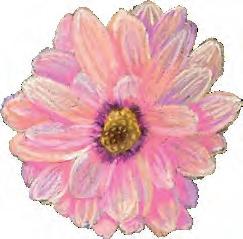

CHAPTER 1 DIVIDER
8 Swimming / Evan Curb / Digital Photography
CHAPTER 1 POETRY
11 Where Sky Meets Stone / Isabel Yang / Free Verse

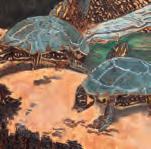
15 The Chemical Formula of “Us” / Evelyn Haggstrom / Free Verse
18 Polyester Princesses / Sophia Oh / Free Verse
25 Freshman Year / Isabel Yang / Free Verse
CHAPTER 1 FICTION
12 The Old Man and the Forgotten God / Lucas Karagosian / Flash Fiction
20 The Chemist / Saanvi Gaddam / Flash Fiction
CHAPTER 1 NONFICTION
16 The Cacao Seed Girl / Camille Becker / Memoir
23 My Journey to Uhuru Peak / Eleanor Fisher / Memoir
27 Highway 20 Ride / Molly Schnyder / Memoir
CHAPTER 1 ART
10 Hooves Among Monuments / Sadie Griffin / Drawing
13 Turtle Tales / Jack Hall / Mixed Media
14 Two Goats / Evy Linker / Mixed Media
17 Bubbles in the Garden / Stella Burke / Mixed Media
19 Dianthus / Sophia Oh / Colored Pencil Drawing
21 Voodoo / Nathan Niles / Drawing
22 Orange Tree / Sadie Griffin / Mixed Media Collage
24 Gooses / Jackie Rao / Pencil Drawing
26 The Beyond / Alison Archibald / Oil Pastel




CHAPTER 2 DIVIDER
28 Golden Harmony / Reilly Desai / Oil Pastel on Black Cloth Paper
CHAPTER 2 POETRY
31 sidewalk cracks / Jackie Rao / Free Verse
34 micah 1:8 / Athena Woodward / Free Verse
39 The Aquarium / Sophia Oh / Free Verse
45 Solular Discord / Samora Elam / Free Verse
CHAPTER 2 FICTION
33 The Family’s Disappearance / Thomas Warlick / Flash Fiction
40 Fall / Lucy House / Flash Fiction
48 The Path / Clark Fan / Flash Fiction
CHAPTER 2 NONFICTION
37 So Frippin’ Easy / Wallace Roberts / Memoir
42 My Father’s Restaurant / Leslie Osorio / Memoir
47 The Forgotten Girls / Alana Duffy / Nonfiction
CHAPTER 2 ART
30 Signal / Evelyn Haggstrom / Photography
32 Fire Alarm / Lila Connor / Painting
35 The Illumination of Time / Jack Benonis / Photography
36 Gone Fishin’ / Molly Martin / Oil Pastel on Photo
38 Tactile Color / Nathan Niles / Mixed Media
41 Cornfield / Lila Highsmith / Oil Pastel
43 Sicilian Street / Vivian Randall / Painting
44 Personal Growth / Evelyn Haggstrom / Mixed Media
46 Leif / Sophia Oh / Colored Pencil Drawing
49 Oriental Occidental / Kathryn Wu / Oil Painting

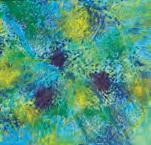
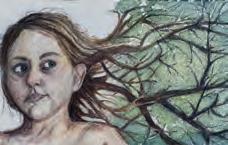

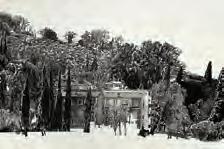



CHAPTER 3 DIVIDER
64 Daughter of Pearl / Kathryn Wu / Pen & Inkv
CHAPTER 3 POETRY
54 Wandering Through London Streets / Nathan Obeng / Free Verse
58 Santa Maria Sopra Minerva / Kathryn Wu / Free Verse
61 all i have are the echoes in my sleep / Jackie Rao / Villanelle
64 Chai Inside a Mug / Divija Rao / Free Verse
68 how to fall in love / Athena Woodward / Free Verse
CHAPTER 3 FICTION
52 Cracks / Lynn Zhao / Flash Fiction
63 Fate / Arshia Jalalia / Flash Fiction
67 Paradise / Jenna Chebaro / Flash Fiction
CHAPTER 3 NONFICTION
57 everyone was home / Athena Woodward / Memoir
70 Adversity, Triumph, and Rest: The Seeds of Individuality / Carson Clutter / Memoir
CHAPTER 3 ART
53 The Gourd / Jesse Kim / Drawing
55 Sutton / Sloan Ellison / Acrylic Painting
56 Babysitter / Kathryn Wu / Acrylic Painting
59 The Door / Lila Connor / Painting
60 Las Oraciones / Leslie Osorio / Photography
62 Spoleto / Kathryn Wu / Pen & Ink
65 Splatter / Sadie Griffin / Painting
66 Energy / Alison Archibald / Oil Pastel on Black Cloth Paper
69 Heritage / Natalia Gomez / Mixed Media
71 Jellyfish / Cade Baldecchi / Silk Painting



“into a mirage of bubbles”
CHAPTER 4 DIVIDER
72 Fruit Bowl / Hannah Blackhall / Colored Pencil Drawing
CHAPTER 4 POETRY
75 The Universe is Wavy / Evelyn Haggstrom / Free Verse
78 Ode to My Curls / Sophia Smith / Free Verse
83 a confession to my eyes / Samora Elam / Closed Form
86 Easter Sunday / Elena Lapuente / Free Verse
CHAPTER 4 FICTION
77 Radical Acceptance / Sloane Hobart / Postmodernism Short Story
91 September the Third / Margaret Piasecki / Flash Fiction
CHAPTER 4 NONFICTION
80 Breaking Out and Figuring It Out / Nishanth Gaddam / Memoir
84 Playing It My Way / Jessie Adams / Memoir
89 The Green Within / Catherine Roberts / Memoir
92 Embracing the Paradox / Hannah Hurden / Memoir
CHAPTER 4 ART
74 My Life in Colors / Robert Comly / Mixed Media Collage
76 Wrightsville Sunset / Reynolds Burns / Acrylic Painting
79 Idolize / Wesley Seagraves / Colored Pencil Drawing
81 Breaking News! / Lewawit Alemu / Mixed Media
82 Chromatic Soul: The Many Threads of My Father’s Spirit / Peyton Samii / Mixed Media
85 Gummy Galore / Lily Lund / Oil Pastel
87 Secretary Bird / Cordelia Kim / Mixed Media
88 Sonder / Emma Grace Coble / Pen & Ink & Watercolor
90 Reflected Memories / Jack Benonis / Linoprint
93 My Golden Girl / Isabel Yang / Oil Painting
*Chapter Divider quotations by lead layout editors; cover and supporting page quotations from Geraldine Connolly’s poem, “The Summer I Was Sixteen.”
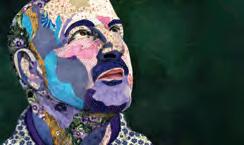
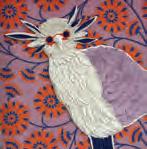
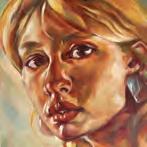

“
We skipped rope to the scorching slides watermelon juice
giggles echoing, cool
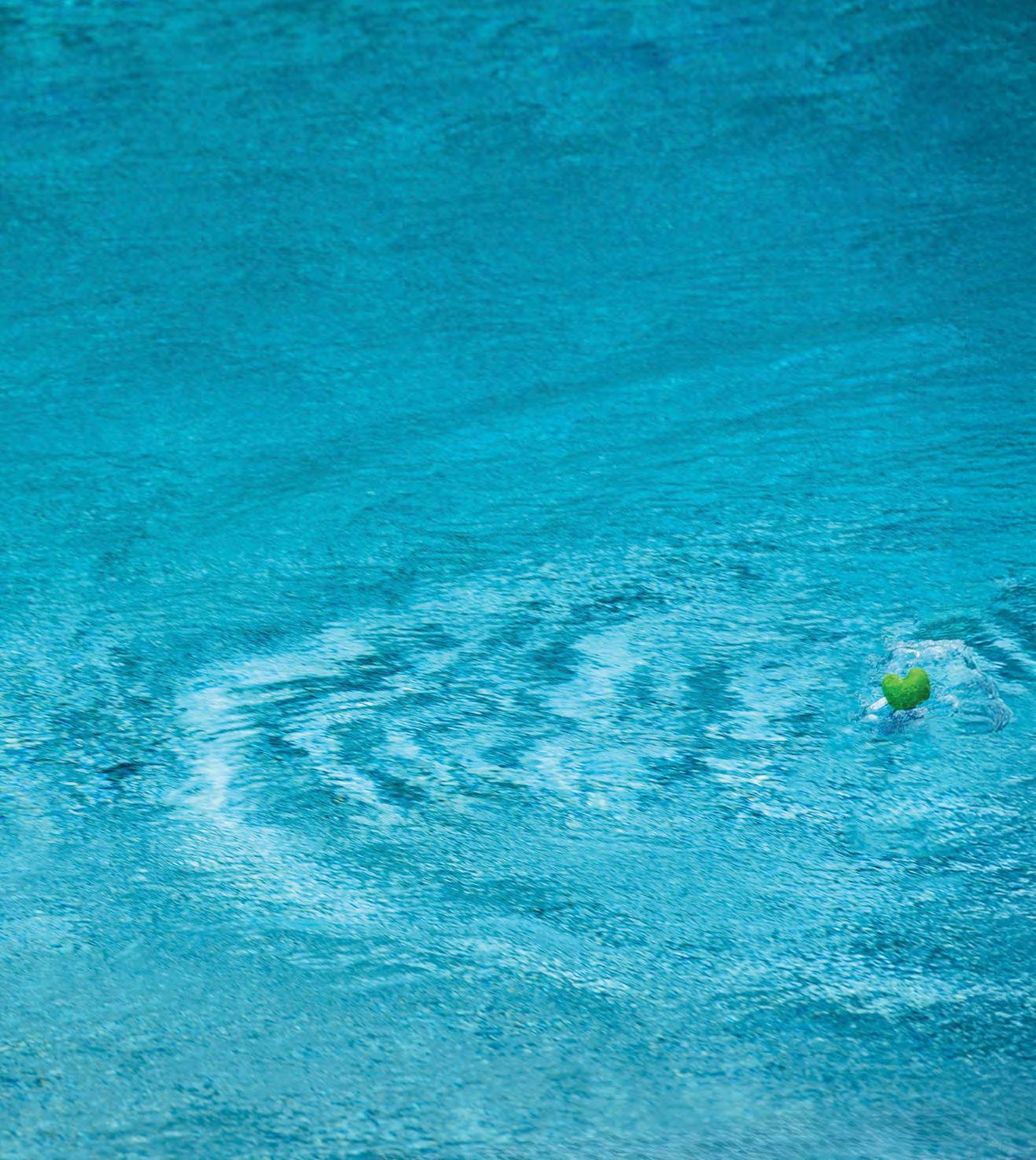
our chins as we Beachwood June... in
” dribbling down bathed
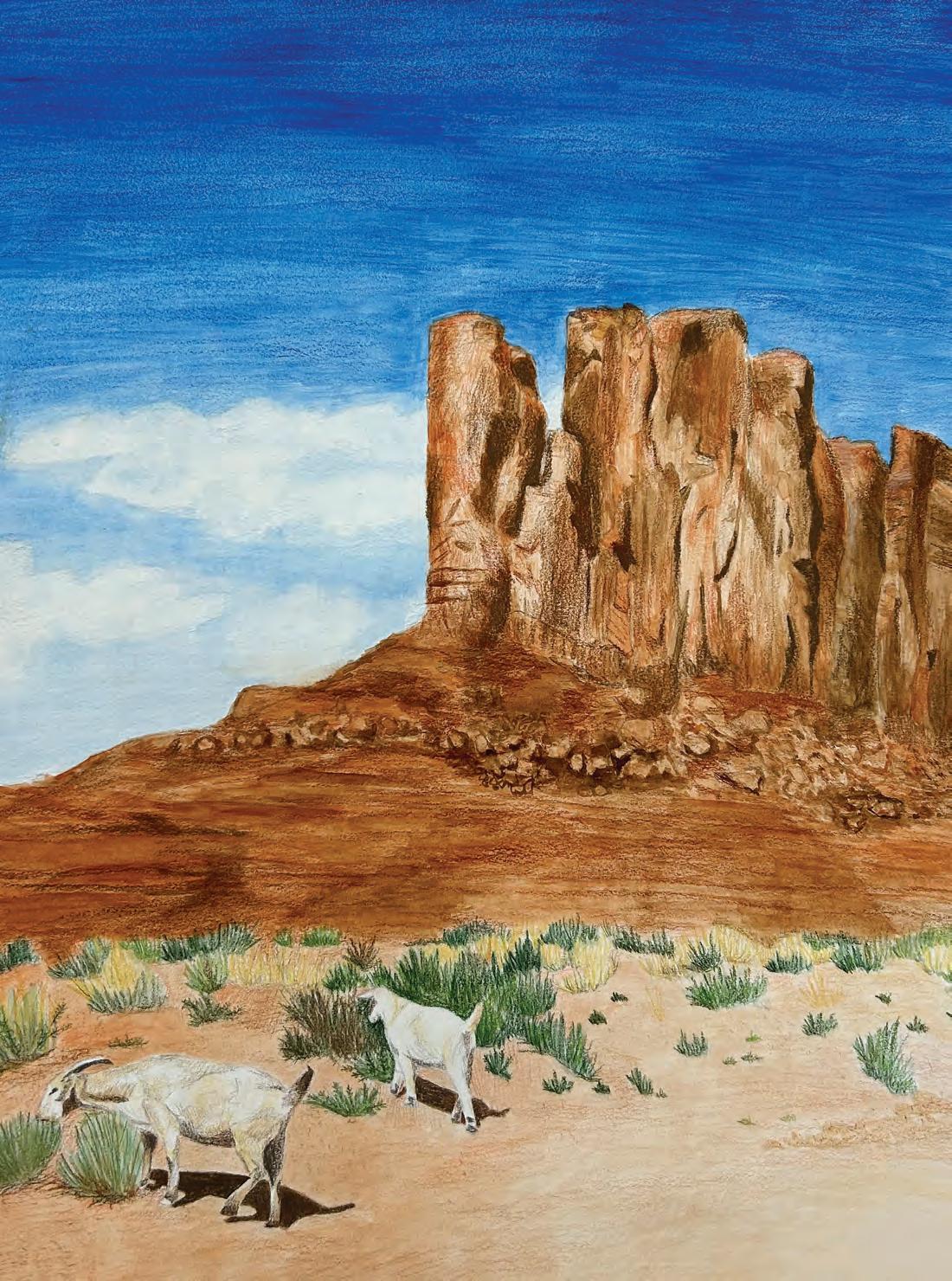

skyIsabel Yang
we drive over Marble Canyon at sunset windows down eyes wide watching streaks of pink infuse a baby blue sky like a pastel watercolor wash. it tastes honey sweet in our mouths—
flying past towering mesas sloping to graze both sides of the highway. jagged ridges and valleys glow violet in slanted sunlight—these risen bedrocks are silent giants monuments stories.
and suddenly a swift glimpse of the earth split open! gaping fissure like nature’s mouth stretched long! sandstone walls plummeting deep for a kiss of cool: the Little Colorado River.
dust whips past us in the rush of Arizona air. we bask in it— feel it soften our city-sculpted minds turn mellow like the coming dusk at last.




hunned for many years, the old man sat on his porch, in his rocking chair, reading his leatherbound book with brittle, yellowed pages in an ancient language only he understood. This was practically all he had done for twenty years. The people of the small town, not too far from Khaybar, considered the man insane. He was, in fact, mentally competent, and few realized his lack of social presence resulted from his deep thoughts from the book he read. Despite their dislike of him, all were curious about the old man’s reading; they did not care about the book’s contents, only how it could captivate him for twenty years. Even when he left his house to buy groceries, it was clear that his mind was elsewhere.
The book was titled “Al’iilah Alhaqiqiu Alwahid” (The One True God). It was a holy book, completely forgotten by the entire world—other than the old man who found it many years ago, half buried under the sand—that spoke of an almost forgotten god, the only god the old man believed in, Nafsia. This god was said to have few powers compared to the other numerous gods of the ancient and modern world. Despite this surprising absence of divine power, the book said Nafsia was and is “The One True God” because of the god’s psychic capabilities. Most gods were considered to be omniscient, and Nafsia was no different. The book suggested Nafsia knew everything that could ever possibly happen everywhere throughout all universes at all times.
The townspeople went about their






Lucas Karagosian
business, mainly farming, cooking, weaving, and selling the items they made. There was no electricity, let alone internet. The town was truly disconnected from the outside world, peacefully untouched by time or fate—until it couldn’t be.
The Egyptians said people die twice, first when they take their final breath, and second when their name is spoken for the last time. For gods, death is different. We die only when we are truly forgotten by all beings, across all worlds. There is a human question: Is it worse to know how you will die, or when you will die?
As Nafsia, I knew both.
I saw it coming before the dawn of time. I knew I’d be gone from the minds of humans long before the species died out. I could have changed the outcome, but I wanted the eternal peace of being forgotten. That’s why, on that beautiful sunny day, I did not interfere with the asteroid hurtling towards Earth, towards the quaint little town.
When the asteroid impacted the ground, I watched as the entire town was obliterated, and fresh storm clouds spilled rain over the town’s ashes. Everything was instantly incinerated, the buildings, the farmland, the livestock, the people, the old man, the book, my book; I felt my essence disintegrating steadily. Anything that was ever there at one point in time was no more. I scanned the scene in my final moments, half-hoping the book might lie among the sand, untouched, ready to be read once more. But I knew it wasn’t. I knew it was forever gone. I was forever gone. . .

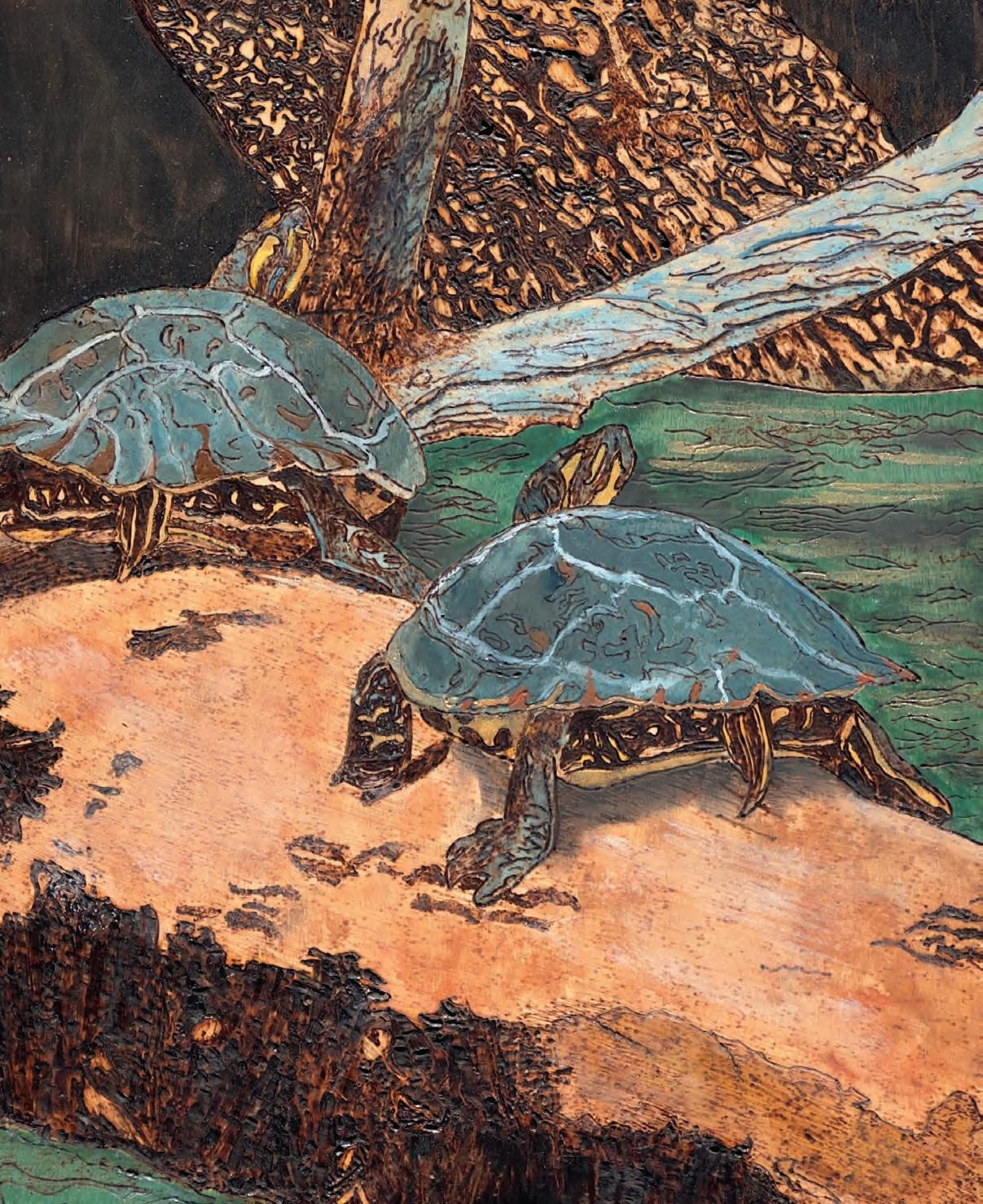
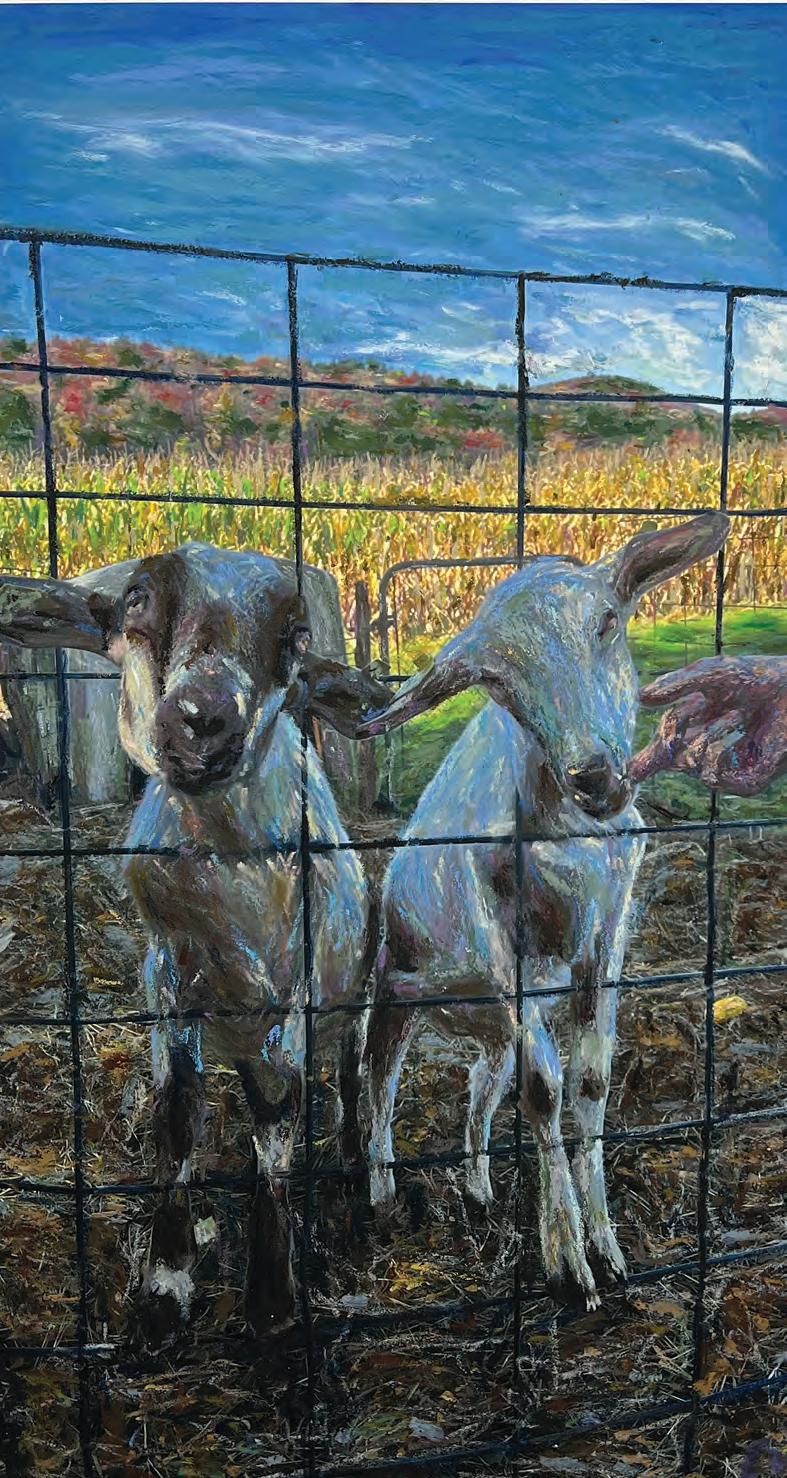
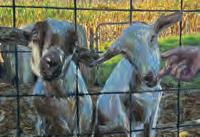
You’re soft like
Evelyn Haggstrom
Keratinous filaments from the epidermis of felis catus
You smell like
Linalool (C10H18O) and linalyl acetate (C12H20O2)
You would taste like
Hexacarbon dodecahydrogen hexoxide
You make me
Flex the muscles on the sides of my mouth and contract muscles around the corner of my eyes
I love the way
The light bounces off your irises and into the photoreceptors in my retinas
You make my
Heart palpitations increase from 90 bpm to 120 bpm
I want to spend
n: A measure of a change in physical quantity or magnitude used to quantify the duration of events
With you
I see you for
Approximately 2880 seconds per rotation of the earth
You sit
Approximately 2.1336 meters away from me
It would take
Approximately 1.8912 seconds for me to walk over to you (2.1136 meters/1.1176 meters-per-second average human walking speed)
And yet I remain
With a time-invariant position
In my seat
Sneaking glances over at you in Science Class.
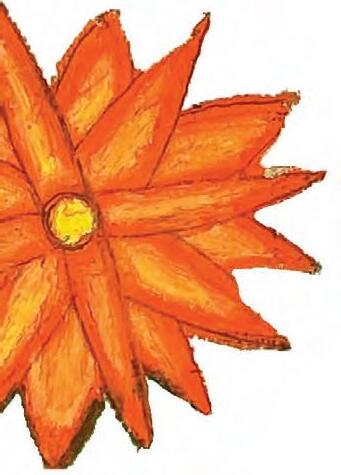
Camille Becker
Miles inland in the Southeastern part of Brasil, a stretching mountain range hides Coaraci, a town of sixteen thousand people located far away from any other city.
Two years ago, my family discovered Coaraci by visiting our cousin, a local. At the time, fifteen-yearold me couldn’t have felt more out of place. Unlike my prior trips to Brasil, I was now an insecure teenage girl, self-conscious of my obviously-American black tennis skirt and my even-more-American accent that could only speak broken Portuguese phrases. I spent the whole trip trying to avoid judgemental looks, hiding either in my room or out on my cousins’ cacao farm, where they harvested cacao seeds to be later made into chocolate.
This past summer I went back. With two years of Portuguese classes, higher-level Spanish classes, and a study abroad trip to Spain under my belt, I was determined to fully experience Coaraci by actually immersing myself, so I asked my cousin if I could stay—without my parents. I was confident my new self would immediately feel accepted. However, upon arrival people still stared at me as if I had the word “foreigner” tattooed across my forehead. That night, at a get-together with neighbors, the conversation quickly shifted to my American accent. A strange sound to them, my accent led to them nicknaming me estrangeira Suddenly, locking myself in my room, again, felt very appealing.


my cousin, she suggested I try more than just picking cacao seeds on a remote farm, so I signed up for a class to learn about cultivating chocolate from cacao seeds. Now, as the class loomed ahead, I hoped my Portuglese (Portuguese-English) skills would keep me solid unlike the ground up cacao nibs I was about to deal with.
As I entered the factory, I noticed a group of local teenagers lurking in the background. I could feel their stares and hear their whispers, and I even caught a few with their phones aimed at me. My cheeks started to flush a burnt red, mirroring the roasted cacao seeds spread out in front of me, and I definitely didn’t feel ‘legal’ as I had days before. But this thought was interrupted by a tap on my shoulder.
For the FIRST time, I felt SEEN in Coaraci.


“Olá, você é americana?” One of the teenagers asked me. Upon my nod of confirmation, she giggled and beckoned her friends to join us. It turns out I was the first American they had ever met, and they excitedly interrogated me, asking if I rode a yellow school bus to school every day and how often I ate McDonald’s. Finally, we struck common ground over our love for Taylor Swift, sharing our mutual interests while mixing the molten chocolate. Before leaving, we all exchanged Instagrams to stay in touch. These newfound friendships had formed despite my Portuglese and my feelings of “otherness,” and I realized what we had in common was most important.
But the next day, I tried anew, joining my cousin on her regular visit to the neighborhood bread stand. My cousin introduced me as her American cousin and I noticed the “bread lady’s” face light up with interest.
“Que legal,” she responded. Cool. She thought my difference was cool. For the first time, I felt seen in Coaraci.
Last winter, when I first discussed this trip with
By the last day of my stay, the news of an American in Coaraci had spread, and the local radio station reached out to my cousin “to borrow the American.” On air, conversation ranged from my American life to my interests in Brasilian culture, and my familiarity with acarajé and the Bahian soccer team, which shocked them. But most of all, I shocked myself by realizing how, like the chocolate I learned to make, I had developed into a richer and more curious version of myself than the nervous cacao seed girl I had been two years before.
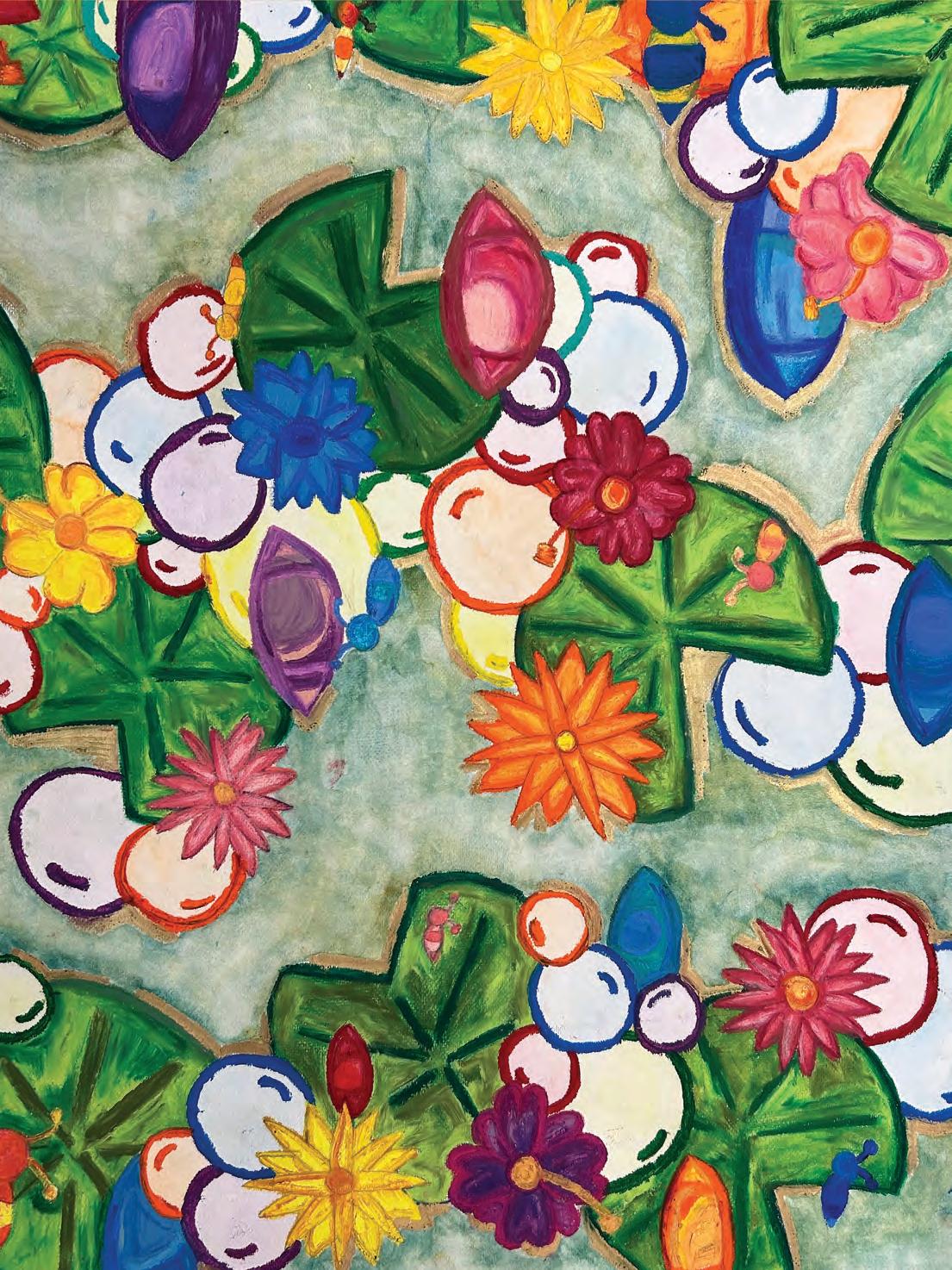

Sophia Oh


We were princesses, swathed in polyester gowns itchy against our skin and chipped jewels encircling our necks
We were royal in glittering gel heels, rulers of dolls and stuffed teddy bears alike; loyal subjects who bore witness to the sharpest of cutting-edge creations
They beheld the dull clacking of wooden fruits and clinking of miniature metal dishes as swishing, sparkling skirts fashioned gastronomical masterpieces Would Princess Glimmershine enjoy some boiled cake topped with mushrooms?
We were bold and carefree and wholeheartedly unapologetic, tacky plastic tiaras entangled in our hair as sparkly as our bangles and nearly half as bright as our smiles
It’s been a few years since I last wore a crown or dined on mushrooms from a pastel plate, but I’ll forever remember the days of scratchy fabric and plushie kingdoms and polyester princesses.


Saanvi Gaddam
Acluster of shoes scuffled as they passed, their hushed whispers along with them. I moved away from the door, facing the screen blurred with millions of unknown faces. My eyes scanned the capitalized fire-red words at the top: ‘DEATH TOLL OF Z-VIRUS AT ONE BILLION.’ They moved down to focus on her, my mother.
My mind transports me to five years ago. Five years ago, there was no virus, no General, no Agent 4571. Five years ago, she was alive. The memories manifest in my head before I can stop them. I see her blonde hair, see her watching the spidery hand of the robot concocting chocolate cookies while I was upstairs in my lab mixing bubbling chemicals, unaware of what was to come.
“Cookies are done!” my mom yelled over the whirs of the machinery.
I quickly grabbed my report card and raced to the kitchen. “100% in chemistry!” I proudly presented to her. I remember her face lighting up, I remember the wrinkles of stress disappearing and her picking me up and spinning me around.
I remember I was going to be a chemist.
I was jolted back to reality as the warm memories
fizzled into the dark, cold room.
The General began briefing us, the army: “We received new intel showing the Creator hiding in an abandoned warehouse.”
The Creator designed the virus and is the only one to hold the cure, hence the manhunt.
“Gear up, people!” someone yelled.
I drift along the the crowd of bodies cloaked in black, dutifully reaching for a duffel bag filled with guns, before a rough hand pulls me out of the pack.
“Agent 4571, you are apprehending the suspect.”
“Yes sir,” I respond.
The General moves in front and opens the door, I carefully step in as I hear the door slam shut behind me. I move towards the center of the pitch-black room.
Without warning, the building lights up with hundreds of tiny red dots, all focused on my chest. The General steps forward, his voice cold and authoritative.
“Surrender,” he directs towards me, without a hint of emotion.
I reach into my pocket and retrieve a vial, the pale green liquid swirling around.
The dots disappear as the camouflaged soldiers instantaneously move away, but no one can outrun my virus.
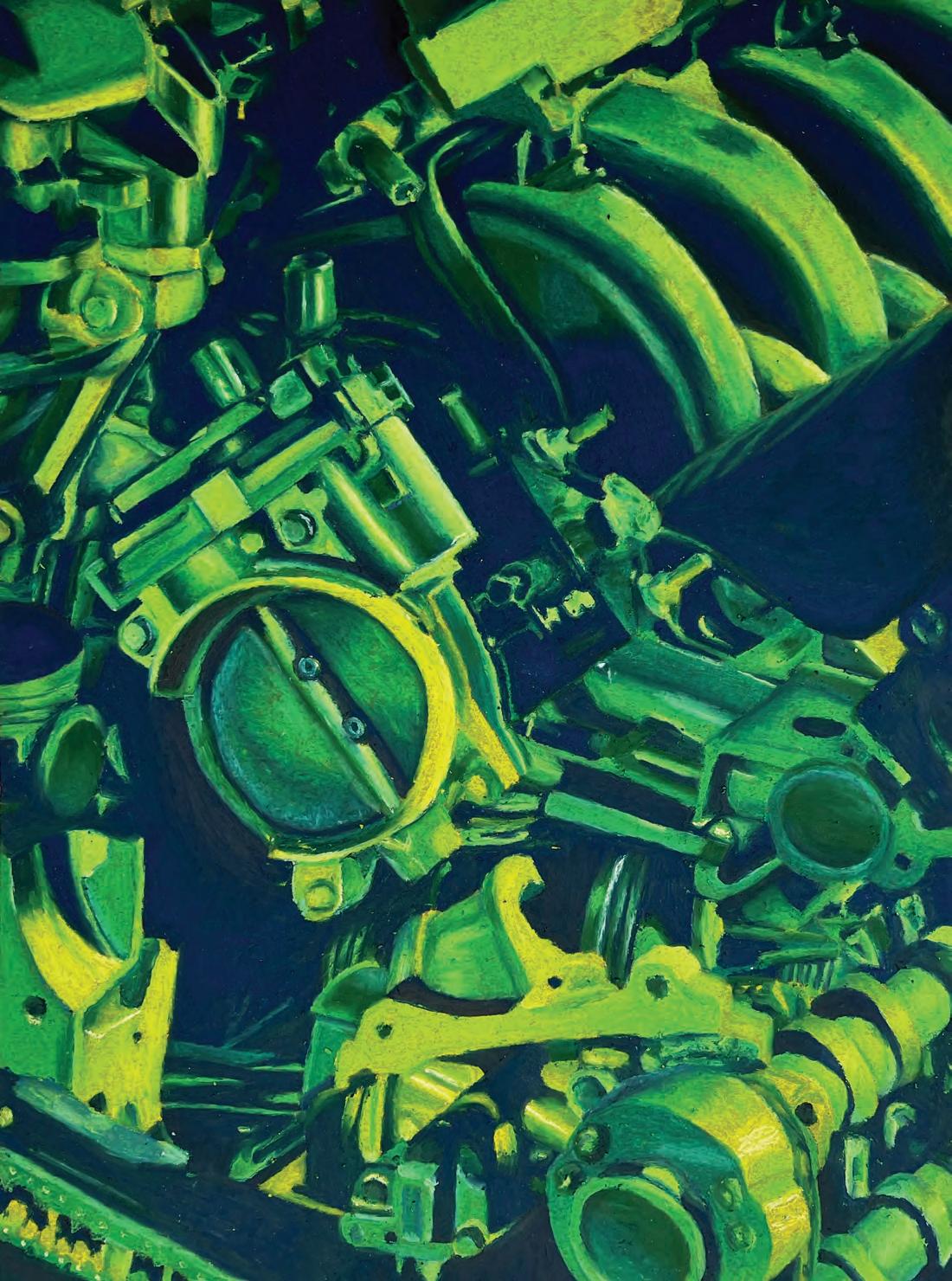
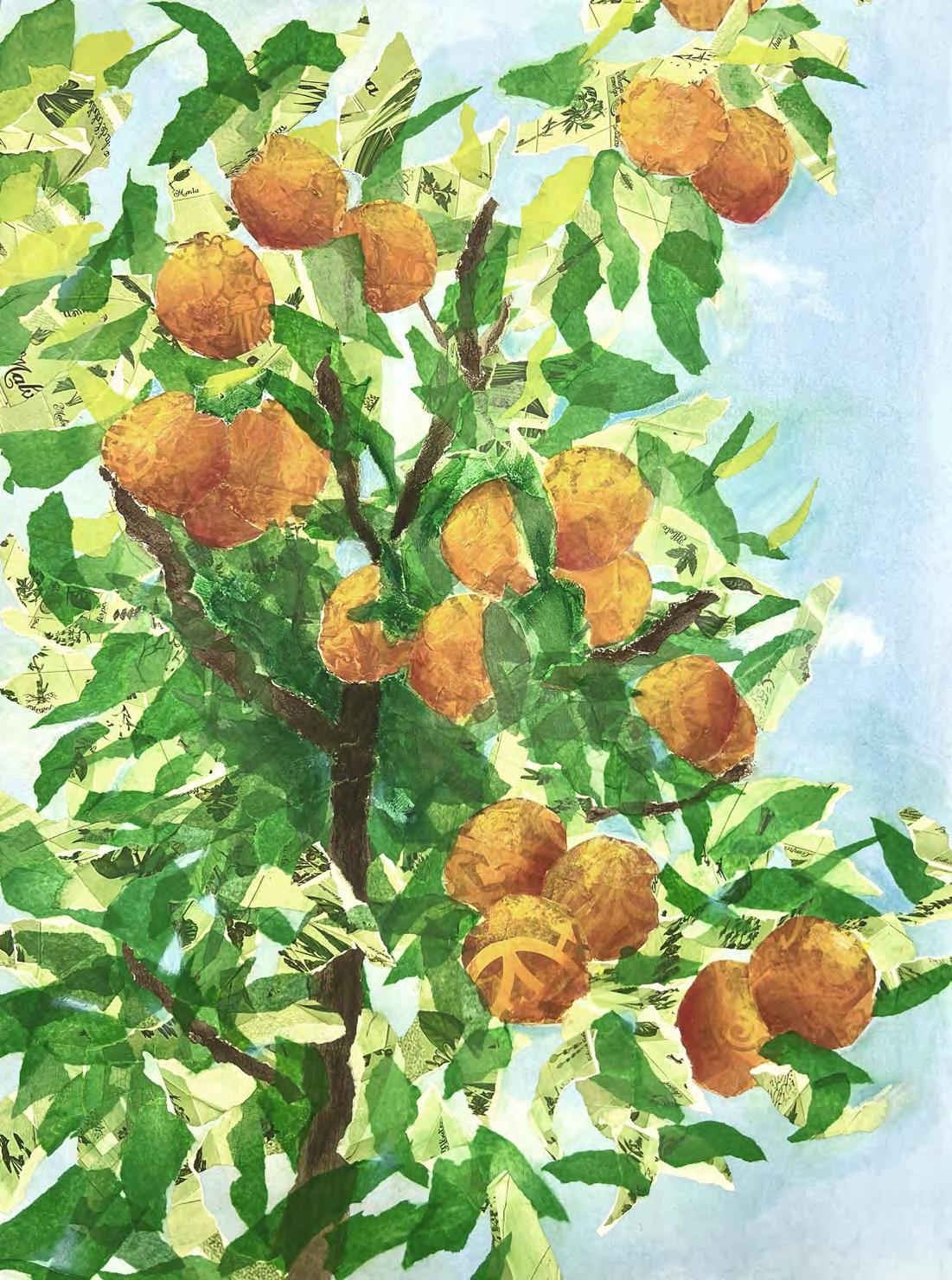
Eleanor Fisher
I crawled out of my tent at Shira Cave campsite, just 6,741 feet below the peak of Mt. Kilimanjaro. A cup of green tea in hand and my bedhead still booming, I forced my tired eyes open. My heart stopped.
Before, I had only seen the full image of this monstrous mountain in professional photographs. The slightly curved tip of Mt. Kilimanjaro towered over my campsite, piercing the sky with the faint sign marking my destination: Uhuru Peak. Every acre of land below me was covered by white, fluffy clouds, the kind I imagined jumping on in my childhood.
Yes, I was living my dream, but getting here was the true challenge.
Hiking has always been a huge part of my life. From getting lost in the woodsy North Carolina mountains to summiting Mt. Toubkal in Morocco, I have always found peace and reflection in the sport. The opportunity to climb Mt. Kilimanjaro with a youth travel organization was yet another challenge of my mental strength. But, there was a catch. My parents were requiring me to raise $4,500 dollars to cover the expenses. “That’s a lot of money, El,” my dad said, grinning. “You think you can do it?” He’d never admit it, but he didn’t believe in me.
Doubt circulated. Sophomore year was less than a month away, club soccer practice four nights a week, travel for games nearly every weekend … “I mean … I think I can do it,” I replied. I always believed I could achieve anything I set my mind to, but $4,500 was a lot of money, especially with so little free time. My father’s perceived doubt lit a flame inside me, roaring at me to prove him wrong. So, I formulated a plan.
I created All Things Fun, a backyard-style kids camp, with my best friend. We shared online fliers and focused on random days off from school and holidays when working parents scrambled for child-care. The camp’s popularity skyrocketed— so much that we capped sessions at 22 kids. I didn’t anticipate
the utter exhaustion from running a kids camp with just two counselors, however. Kids were falling off Razor scooters, tripping on driveway cracks, and getting bonked in the head with basketballs. Every direction I turned, someone needed an ice bag. Absolute chaos. I knew to backout snacks, food, and craft materials from the profit margin, but medical supplies, too?!
The kids’ constant laughter and enthusiasm was quite rewarding, though, and their urgency to come back for camp kept the money flooding in. The temptation to spend it on a new summer dress gnawed at me. However, I was saving up for something much greater than myself, not an Instagramable outfit.
I vividly remember hitting the jackpot: over $4,500 in my savings account after just five camps—I couldn’t believe it. I broke the news to my dad, the excitement springing from my smile. Embracing me with a bear hug, I knew he was proud of me. A wave of relief rushed over me. I hadn’t failed. Now, my focus turned to Kilimanjaro.
Five months later, it was 1:00 a.m. and I was trekking up the mountain under a pitch black sky speckled with flashlights ahead of me. We ascended slowly with fatigued steps, stopping briefly every hour. Emerging from the darkness, the sun peeked over the horizon, finally in sight. The sky transitioned from navy to pink, peach, orange, red, yellow, and finally to a blue as bright as the future: Congratulations! You are now at Uhuru Peak, Tanzania.
The $4,500 I saved meant more than just proving my dad wrong. It allowed me to appreciate the journey even more, and the summit became much more rewarding. My hard work brought me to Tanzania, fueled my motivation, and carried me up Kili.
And as I touched the sign at Kili’s peak, I thought, I earned this.
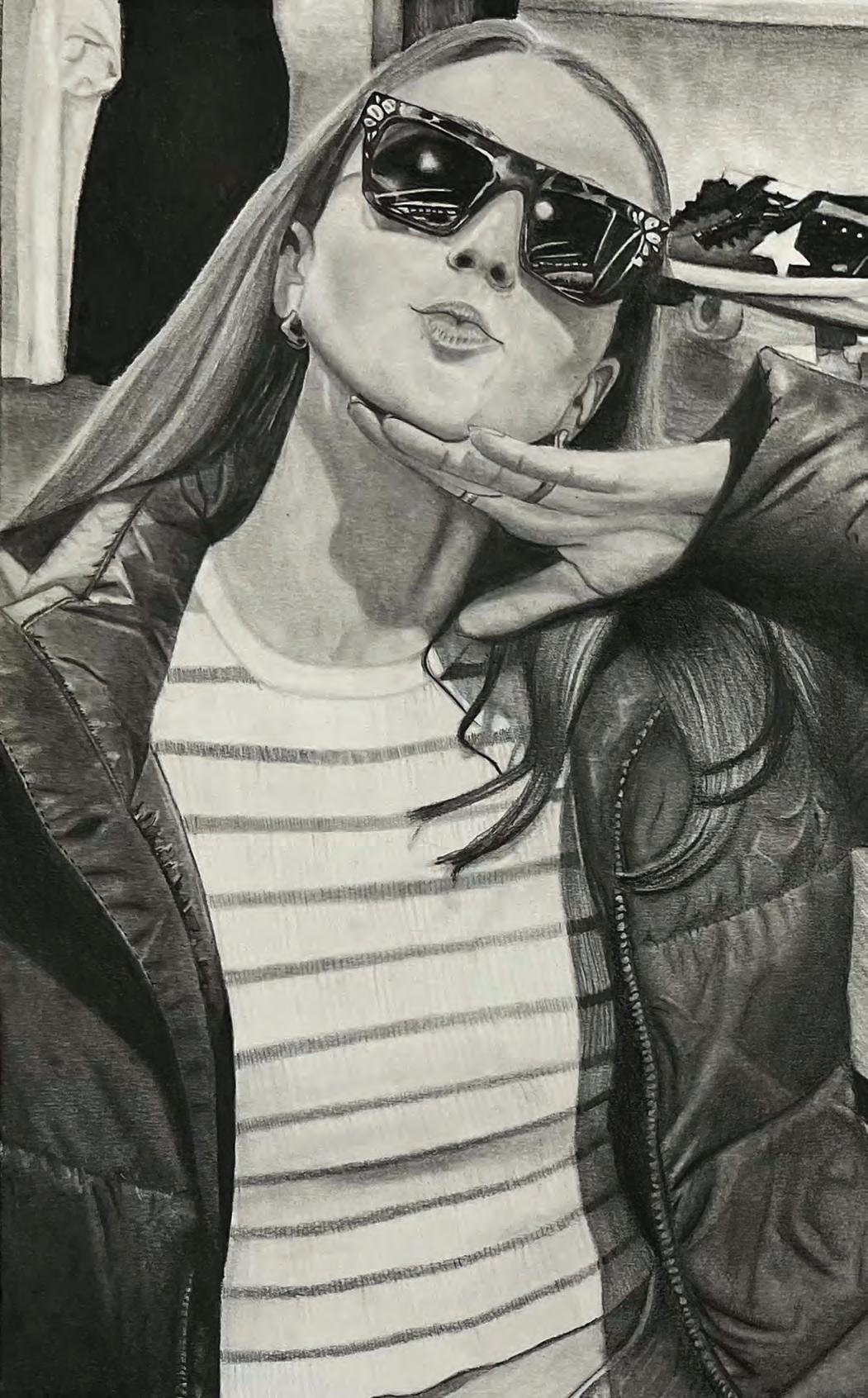



so she leapt into high school’s waiting embrace donning rose-gold framed glasses and a grin new classmates new teachers, new start new her and she soaked it all up, wanting to breathe it be it
it felt like dropping into cool water on a muggy summer’s day, an iced lemonade a black coffee at seven a.m., it felt like lights in new york city, it felt like shedding old skin

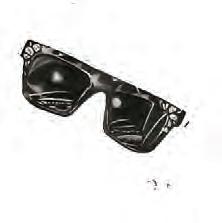
still acne-covered, using cracked lipstick as blush saying nice-to-meet-yous in physics, still held worlds and more at her fingertips, still too starry-eyed to worry or care or judge or think think think
still too early to recognize this was freedom
Molly Schnyder
Exhausted, I sit at my desk in my bedroom, puzzled over a math problem. It was almost 10 pm, and I wished I could be an elementary student again when going to bed before a particular hour was enforced. As I sulk in confusion, I glance up to my right and see a picture of my parents and me on their wedding day. I was five years old at the time, but I do not know any different. I have grown up with them by my side since I was four years old, and spending quality time together as a family is very important to us. One of our favorite ways to do this is by spending time together at the beach. No matter who was driving or what activities we were doing, country music was always a consensus among the crowd. When I reflect on these trips now that we have all grown, “Highway 20 Ride” by Zac Brown Band immediately comes to mind.
The song’s chorus, beginning with “So I’ll drive /
As much as I look to my parents for guidance and support, they are not always perfect and will not always have it right. They admit when they are wrong instead of prolonging the situation to make it right with those they love. They have shown me how to give grace to those around me, and I can give them that same grace in return. I have learned that if there are people who are not worth losing, giving them grace keeps them around in the long run. Everyone makes mistakes along the ride, and by offering grace, memories made with those who are important to you will continue to hold a warm place in your heart. The most important thing I have learned from my parents is never to go to bed with an unresolved fight, especially with someone you love. My parents continue to exemplify how consistent hard work pays off and gracious, unconditional love, qualities that I have
“I have learned that if there are people who are not worth losing, giving them grace keeps them around in the long run”
And I think about my life,” reminds me of a roadmap for getting older and holding onto those important to you that you meet along the way. I’ve always looked up to my parents in many ways. They work hard to provide for our family and make sacrifices without being asked for those they love. They show me how nothing in life is handed to them and appreciate the privileges that we do have and what they have worked hard for. They remind me that my best is all they will ever ask for because my best will open more doors in life than a test score or GPA. They set high expectations for me, but they have these expectations because I am more than capable of achieving them.
As the song begins with “A day would not be wasted on this drive,” I am also reminded how it is my parents’ first time along the ride and being parents.
admired about them since the day my little five-yearold, flower girl self watched them say “I do,” and our ride together became the drive of a lifetime.
Each time I look at the picture of my parents and me on their wedding day, I am flooded with fond memories of our time together and the many more we have to come. As I have gotten older, the beach trips we took when I was younger happen far and few between. Spending hours on the beach making sand castles with my mom and boogie boarding with my dad are almost a decade-old memories. As I reflect on my time spent with my parents, I hope that when they “drive and the years go flying by / I hope you smile if I ever cross your mind / It was a pleasure of my life and I cherished every time / And my whole world it begins and ends with you / On that Highway 20 ride.”
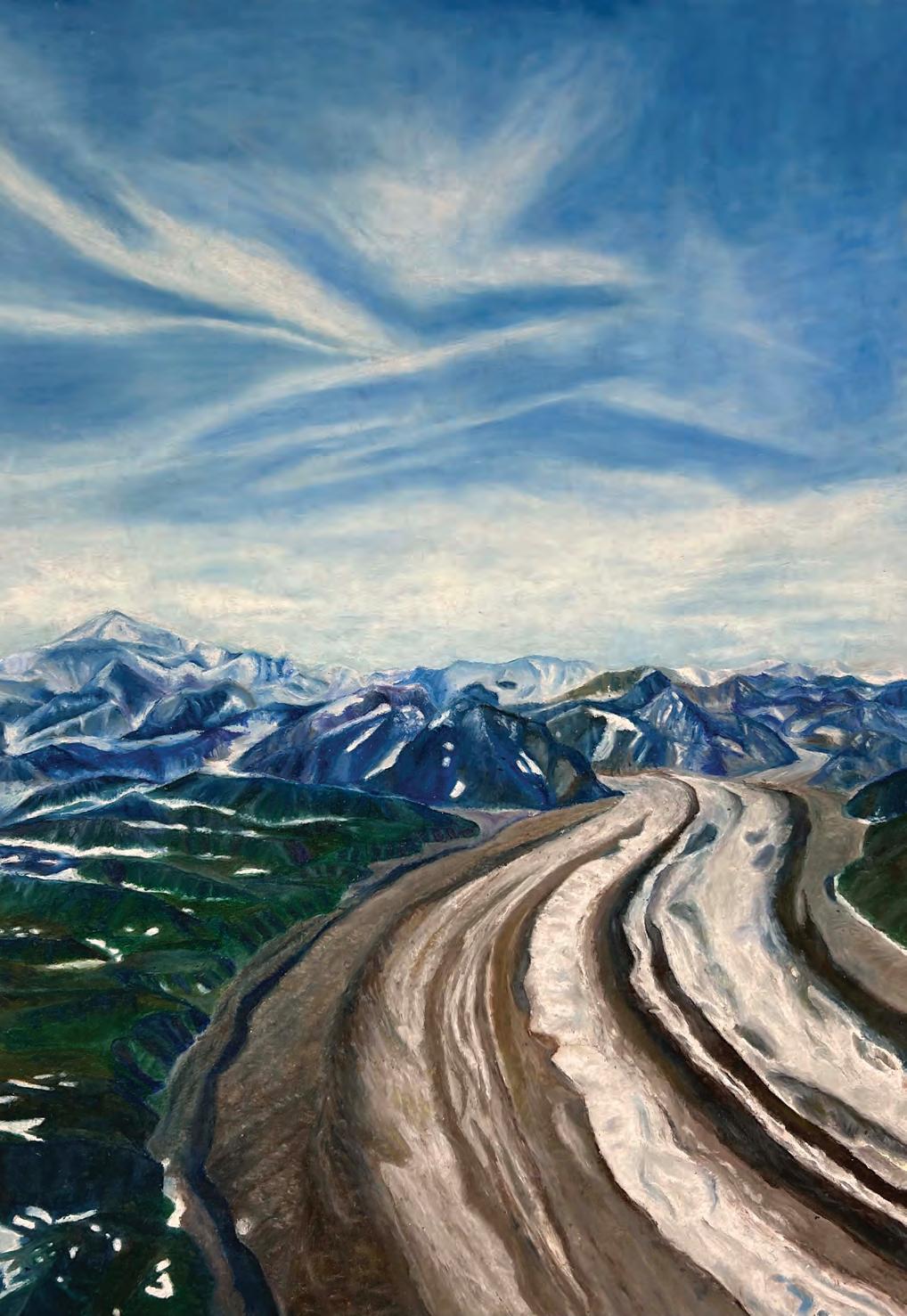

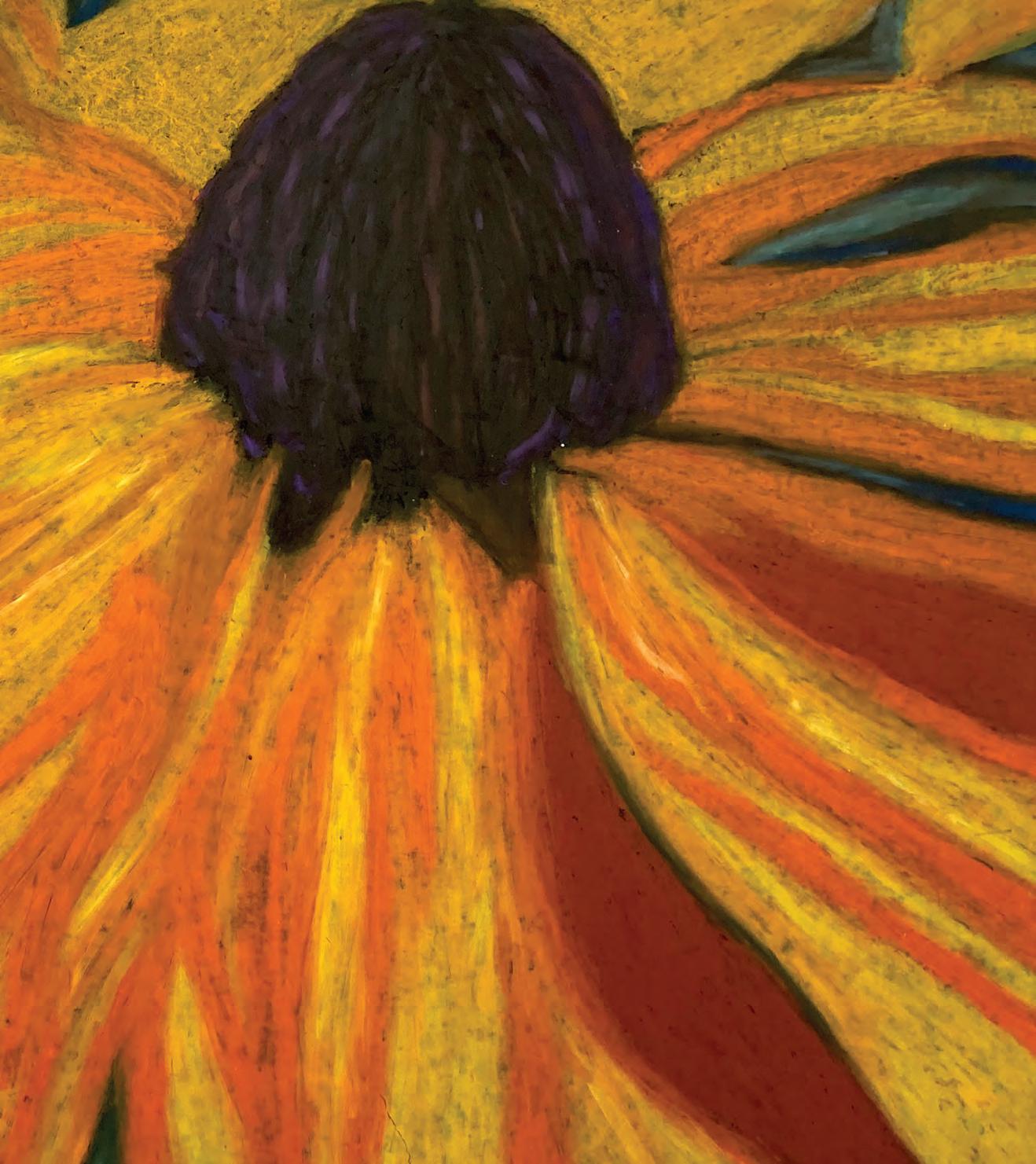
huddled together beneath the
sipping warm apple cider, nibbling cinnamon donuts, Friday Night
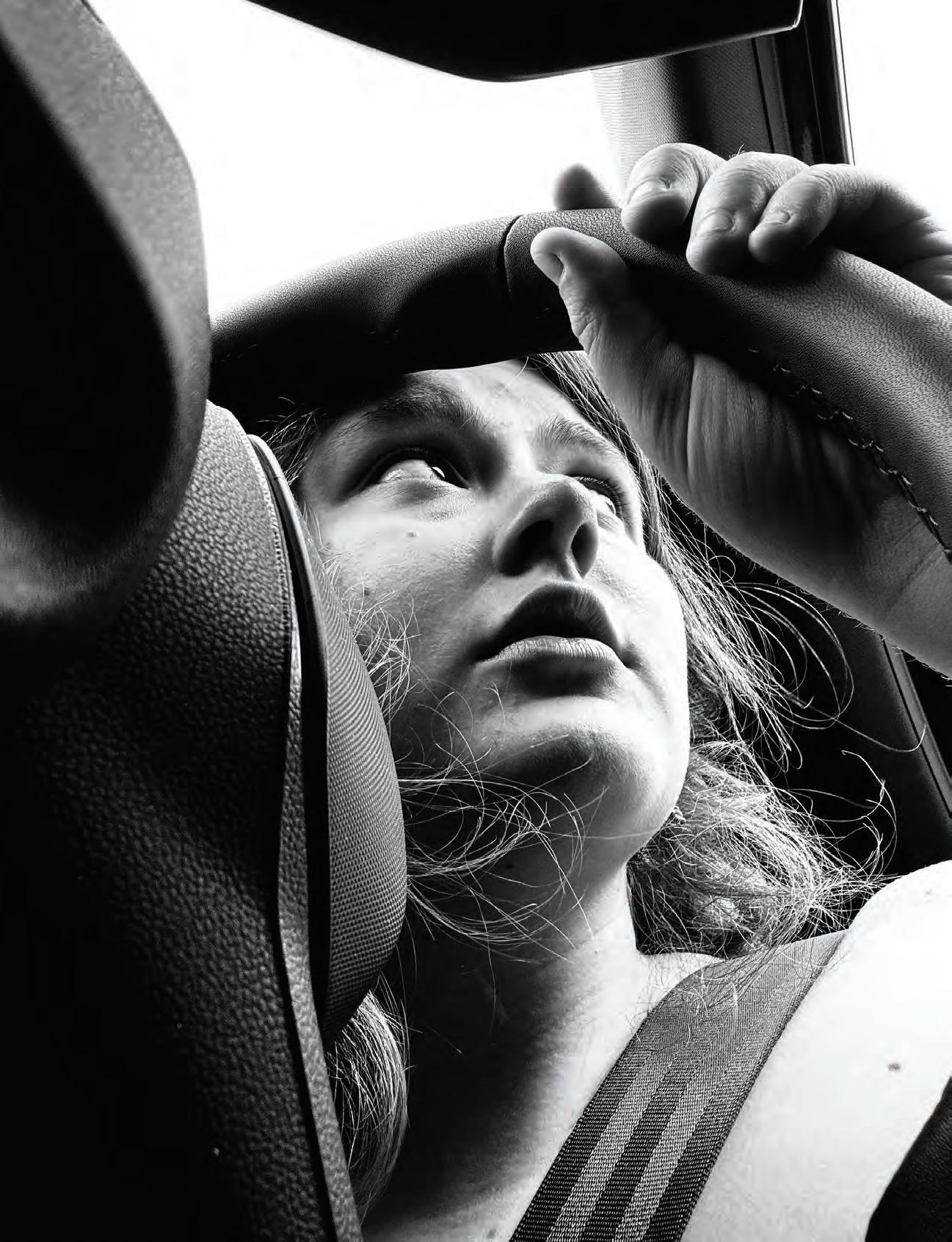
Jackie Rao

do you remember our neighborhood street? the one cocooned by the woods?
our house at the end of the cul-de-sac a castle at the top of the hill when we used to sprint down the driveway to the street where everyone was our friend we had bigger worries than school a time before every laugh we shared had a gaping hole and felt like a lie
our bikes and scooters flew us far away to other planets and if we fell on the pavement or the barbed wire in the woods nicked our legs we would bleed starlight for a kiss on our marred knees was all we needed to feel okay those kisses staining our skin with scars still bright today
do you still remember our plan? climb down the ravine beside that neighborhood street then race to the stream trickling in those woods to cross the fallen tree and reach the other bank
the summer rain would soak our skin our bare feet scampering on the warm concrete laughter as sweet as the soft ice cream eaten when we returned home
they didn’t watch us, they didn’t control us they didn’t know where we were or where we were going you and i, we were on top of the world
but dinner always called the sun always set and my memories now fall through the sidewalk cracks

Thomas Warlick
The boy watched his brother disappear into the dense fog, and he had an eerie feeling that he would never see him again.
Carson woke up in a sweat after his dream of his brother startled him awake. The smell of bacon cooking on the pan entered his nostrils, so he knew that his mother was busy in the kitchen.
He hoped his brother (who had inherited his golden blonde hair from his biological mother) was also awake, but as he turned to look instead he saw a note on the pillow and an empty bed. The letter didn’t mean much; his brother often went hunting in the morning and would always let them know if he was leaving.
As Carson came to his senses he looked around the room, but nothing stood out as strange. His brother’s many animal heads decorated the walls like trophies. The centerpiece was the colossal buck that Carson, his brother, and father had killed the year before.
One day, his father left to find an even larger buck in the forest; he never returned. This, however, didn’t trouble Carson much because his father wasn’t a very attentive parent; on the other hand, his younger brother, Dan, had always loved him.
As Carson grew older he continued to despise his father even more after his departure. By contrast, Dan’s affection for his father surged after he disappeared.
As Carson stood up, removing the wool blankets from his bare body, he felt the cold air cover him like the blankets he had just shrugged off. He dressed
himself and went over to look at the note Dan had left. But it was not a message to let him know he had gone hunting. It said, “Brother, I know you have your reasons to hate our father, but I still love him. I’ve gone to try and find him. Please don’t look for me. This is something I have to do.”
As Carson read the letter, anger boiled up inside him. He crumpled the paper into a ball and threw it into the fireplace, which only had a few burning embers from the previous night’s fire. He turned and stomped out of the room. He went to speak to his mother about his brother’s note and found her in the kitchen, wearning an apron covered in the blood of an animal she had just butchered. As the smell of bacon continued to waft around the cabin, he asked what she had killed. Turning to face him, her long brown hair pulled back behind her head, she said, “Wild boar.”
Carson sat at the table and waited for his mother to serve the boar, feeling anxious to eat a good meal so he could be ready to go out to find his brother. His mother handed him his plate. After chewing for a moment, he felt something foreign in between his teeth; it was a bit of hair. Perhaps his mother had rushed through the skinning of the boar to provide Carson’s breakfast.
He removed the hair from his mouth. However, the hair he found in his food wasn’t brown like the boars in the woods.
This hair was golden blonde.

when i remember, i see the curve of his back hunched over a table of tools glasses balance precariously on the tip of his nose i see myself hovering in the doorframe, pink nightgown spilling past my ankles and gracing the floor, a silent confession of my wonder
breathlessly, i watched him as we played mexican train or dominoes or cards or he launched into a rare story, leaving a trace of him for the rest of us to uncover a mystery to me— the father of my father, an immovable force his footsteps shook the fairytale homes in my head yet after every booming stomp, i was quick to scurry in tow
i chased the scent of bourbon and campfire smoke the way he spoke with a kindness i thought impossible for someone i saw as powerful as a God, maybe He Himself flannels entangled him, a sewing-pattern of hymns it seemed nearly sacrilegious to see him without one mimicry, flattery, fear—i poked my bottom lip out in concentration, too
after he is gone, i find i fear him less and understand him more all the words i could not say, questions i could not ask i know now i can find them all buried in those piles of sawdust
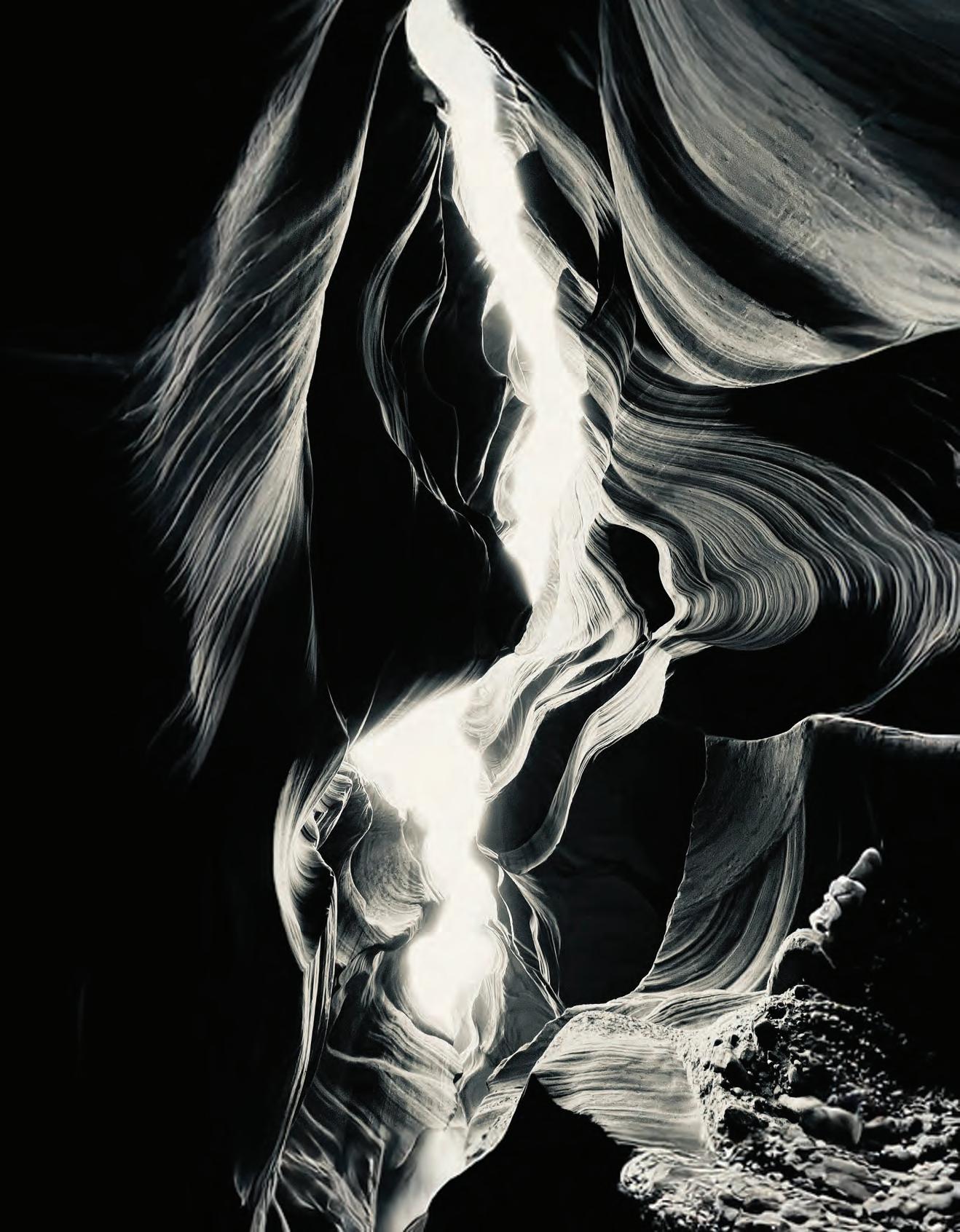
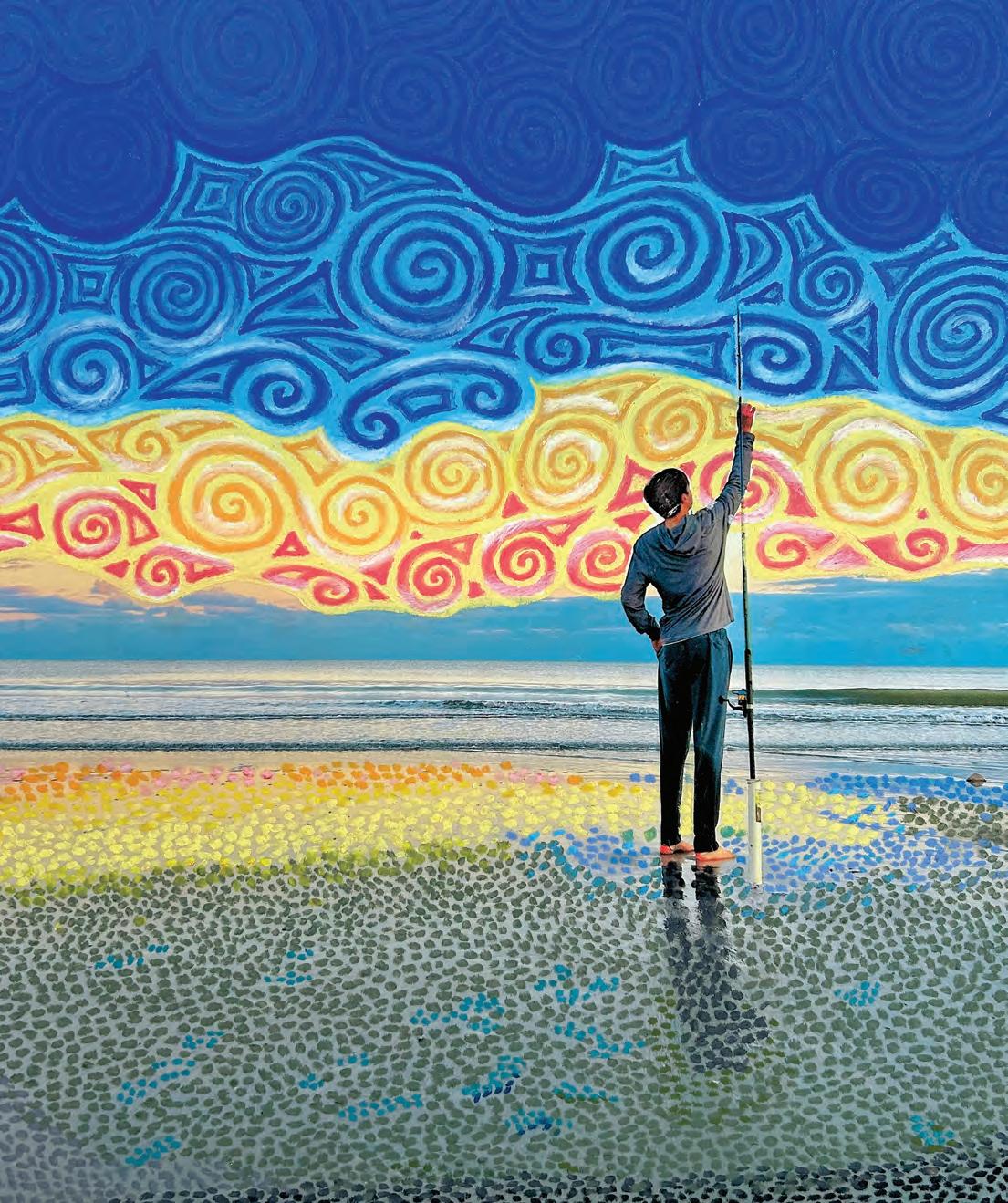
Wallace Roberts

I wake up, smile, and roll out of bed as smells of bagels and coffee permeate through the kitchen. Since we are at the beach, the morning does not start before 11:00 a.m. In the summer, I would rush to eat, get dressed, and prepare for a long day in the sun. Instead, I eat breakfast and sit in the hammock on the porch, unlike some families that don’t eat anything in the morning on Thanksgiving.
After lounging on the hammock, my cousins and I decided to go to the spring tide and spend our previous night’s bingo winnings. Even though it’s cold and windy, golf carting seems the most logical way to get there. Imagining a golf cart ride, one might picture tunes blasting, wind whipping past, and waving at others who pass by. Unfortunately, we are not in bathing suits driving to the beach but in sweatshirts with a blanket drawn across our legs. The golf cart struggles to reach 15 mph, but you can still hear the wind as you drive without the music.
After arriving at the spring tide, I walk straight to the snacks. To me, the best beach snack is sunflower seeds. They are perfect in every situation. Sitting at the beach makes you bored, so most either do something or eat something. Sunflower seeds satisfy both needs. Getting the seed out is an activity and a reward.
Around 2:00, the annual Thanksgiving fishing tournament starts. We rig up our rods, preparing bait and the boat for the journey ahead. Instead, we grab the dusty fishing rods from the cobweb-covered cabinet and head to the fishing ponds on the golf course. Since the fishing tournament is a yearly event, one would think it’s smoothly run, but no. People who had scheduled tee times were not informed that they would be fishing throughout the course.
After an hour of fishing and no bites, someone across the pond finally hooks one. The little boy frantically reels his monster fish. At the bank, the fish starts making a high-pitched croaking noise. Immediately, the dad rushes over and grabs the rod from the kid, telling him to stay back and be careful.
A baby alligator hangs from the end of the rod, still making a loud noise.
As the dad tries to cut the baby free, the massive mama alligator hurls herself his way. Luckily, without problems, he could cut the baby loose, and after, we moved to another pond, hoping for a bite.
We return to the house around 3:00, and the adults cook Thanksgiving dinner. Meanwhile, they dragged the fire pit out on the driveway. We start the fire as you would any normal fire, with logs and a newspaper. The trick to having the biggest, hottest fire at the beach is palm fronds. The second they hit the flame, they light up to create immense warmth.
On the fire, my dad puts a metal wire fence on the hot coals to heat it. We set up a massive bag of oysters to be cooked. After rigging the fence for stability, oysters go on the grill, then small, clean towels (soaked in salt water to increase the briny flavor) blanket the shellfish. To eat the oyster, gardening gloves provide good protection, and a headlamp contributes direct light.
Thanksgiving weekend is always a good time to watch football and play games with family. The most competitive match is cornhole and bottle bash; The Roberts versus the Williams. We play games for hours. Plenty of smack talk comes from my uncle, whether he plays games or watches football. Instead of crowding around the TV inside, we bring it outside to add to the fun. Twenty feet of extension cord later, we prepare to cheer for our teams.
Around the time the sun sets, we sit down to eat. Even though some of us are sitting on plastic chairs and using paper towels as napkins, it’s still Thanksgiving. Spending time with family represents one Thanksgiving tradition that looks the same no matter the family. It does not matter if we celebrate in Charlotte or Fripp Island.
Holidays look different in each family, but families come together. The beach is special for my family because it’s so frippin’ easy.
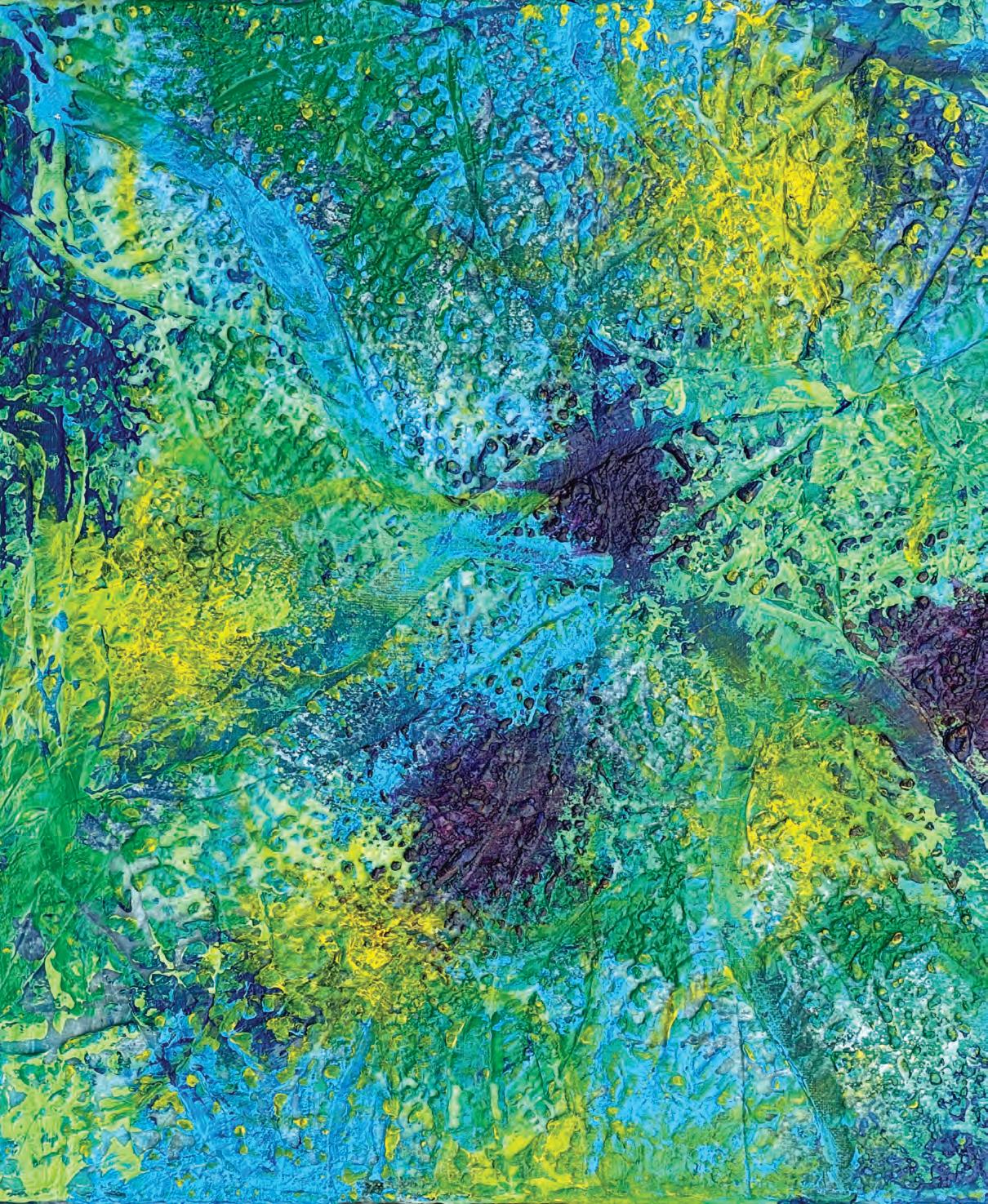
Sophia Oh

afternoon sunlight filters in through the front door, bathing the foyer in washes of ochre and gold
near the staircase, luminescent beams concentrate into a rainbow reflection that trembles on the surface of the abandoned aquarium
in a past life, the vacant, murky box housed teams of glistening fish, swishing and swaying translucent fins in time to tiny beating hearts
banana, lemon, poseidon, paprika, a cacophony of vibrant colors, gaping mouths, and bulging eyes from guppies and goldfish to catfish and bettas
blurry visages marred by tiny fingertips and cheeks pressed flush to glass
silent enchanters of childlike wonder, received by adoring coos and beaming faces
all was peaceful, happy until the day banana fell victim to the grim reaper
i still remember the way his face paled, his body floating with unnatural buoyancy
the gentle cupping of his carcass, water straining past curved fingertips accompanied by the echoes of mourning wails
from then on, the tank was never the same
latte was next, then minnie, and paprika
three fish, two fish, one fish, no fish
fins flailed helplessly as gasping mouths warbled through poorly filtered water and final breaths
before we knew it, the tank was nothing but an empty shell haunted by the ghosts of creatures come and gone
months later, it remains the same— stagnant gray water, desolate, pebbled bottom, boxy frame.
only now, i think to myself, it is less of a scar and more a relic.


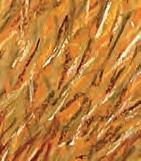
Lucy House
I sit back against the old oak tree. The branches twist around the base, as if they had stopped their attempt to reach me. Its thick exterior and high reaching top are a product of the many years it had sat growing atop the hill.
The leaves, scattered around the grass beside me, have begun to change color with the chill breeze that brushes my cheeks and makes my breath visible in the morning.
It is the beginning of fall that is so great, before the weather got too cold, and school got too hard, and before the chill reminds me of everything I worked so hard to forget.
The sunset illuminates the sky with a yellowish glow, casting off of the few clouds that remain at the end of a long day. Yet I can’t help but feel as if something’s missing, which is strange considering the perfection I’m staring at.
Shaking my head, I stand and begin to walk to the warm comfort of home, the warmth that would fill me. But something pulls my gaze back—back to the base of the tree. Where I sat the bark had been worn, worn from years of watching sunsets and reading in
the warmth of long summer days. The tree and I had grown together, leaving our imprints on each other, but that wasn’t it. A nearly identical patch lay next to the worn bark, because someone else had grown alongside the tree and me. But there is no use thinking about it, no good in trying to change what can’t be undone. I leave the tree behind me, walking back to the forgetful warmth that lies inside my house.
Creeping through the squeaky door, I realized that it was too late. The chill had taken all of my summer work away, and the memories came flooding back. Now, even in the false heat of the house, the imprinted corner of our sofa had not seen his heat. The kitchen was clean. Empty of the flour and laughter that once lovingly cluttered the marble countertops. His bed empty, his school bag empty, me empty.
Yet my mind is full. Full of images of the fall, and how the leaves from the early autumn that covered the ground escaped under the weight of him, with the wind he brought down. Full of images of the oak.
Who knew that the very tree that had raised us would strip us of everything? That it would leave a cold, unfillable void in the pit of my stomach.

Leslie Osorio
No matter how many people I meet, my father’s restaurant remains my best friend. Its sizzling grill cooks every meal I eat. It dresses up in banners and balloons every year for my birthday. It supervised me as I learned how to put a car in reverse in its parking lot. It concealed me in the corners of its dining room as I visibly struggled with my math homework. I repay its generosity by spending every free hour I have working there as a waitress, hoping to showcase its charm to customers. Its constant, comforting presence has been a steadfast fixture in my life for almost a decade.
I can hardly remember a time without it.
Before its actualization, the restaurant was a catering business, delivering trompo al pastor to outdoor parties every weekend. My father would bring my brother and me to every event. It was at one of these events that the idea for the restaurant was born.
As my brother played with his DS in the back of my father’s truck, I sat in the front to be closer to the cool refuge of air conditioning. I watched closely as my father set up his equipment and my mother prepared a table of toppings.
When he pulled out a large stack of business cards, I swung the door open and rushed to his side. His calloused hands engulfed mine as he delicately handed the cards to me, entrusting me with their dispersion. I nodded fervently and got to work. I weaved in between tables, pitching my father’s business to anybody who would listen. I handed the cards to cooing older women, drunken party-goers, and interested potential clients.
When I returned to my father’s side, he thanked me for being such a proactive business partner. With a pleased smile, I crawled back into the solace of his old truck.
I slowly woke up to the soft murmurs of my
parents, who were deep in conversation. I glanced at my brother, who was sound asleep with his mouth wide open and hair in disarray. As I stifled a laugh at his disheveled appearance, snippets of my parents’ conversation caught my attention. My father wanted to open up a restaurant.
My mother’s voice quivered as she faintly asked around a million questions. My father, in a steady and resolved tone, seemed to have an answer for every single one. I knew that in her heart she had made her decision the second my father had proposed the idea.
“I’ll help you, too,” I muttered. Through my sleepy haze, I could have sworn I saw a faint smile on my father’s face. At my mother’s gentle instruction, I drifted back to sleep, lulled by the rhythmic thumping of his machinery in the cargo bed.
That declaration led me to spending countless hours translating key documents, choosing the most appealing paint colors, and shakily moving in furniture. We traded in hour-long car rides plagued with motion sickness for a ten-minute drive, the pressure of finding new customers for the ease of having regulars, and the limitations of only serving tacos for a full Mexican menu. Now seventeen years old, I can say the sleepless nights and stressful days were worth it.
As I walk past the freshly painted sign that reads Señor Taco Mexican Grill, I gently run my hands alongside the aging exterior walls and reach for the large glass door. Its familiar chime greets me as I walk in. I wait for the neon blue lights of the open sign to slowly blink awake before I move further.
Following the smell of grilled meat and the clinking of kitchen utensils, I walk behind the counter and find my father preparing to open for the day.
“¿Estás listo para abrir?”
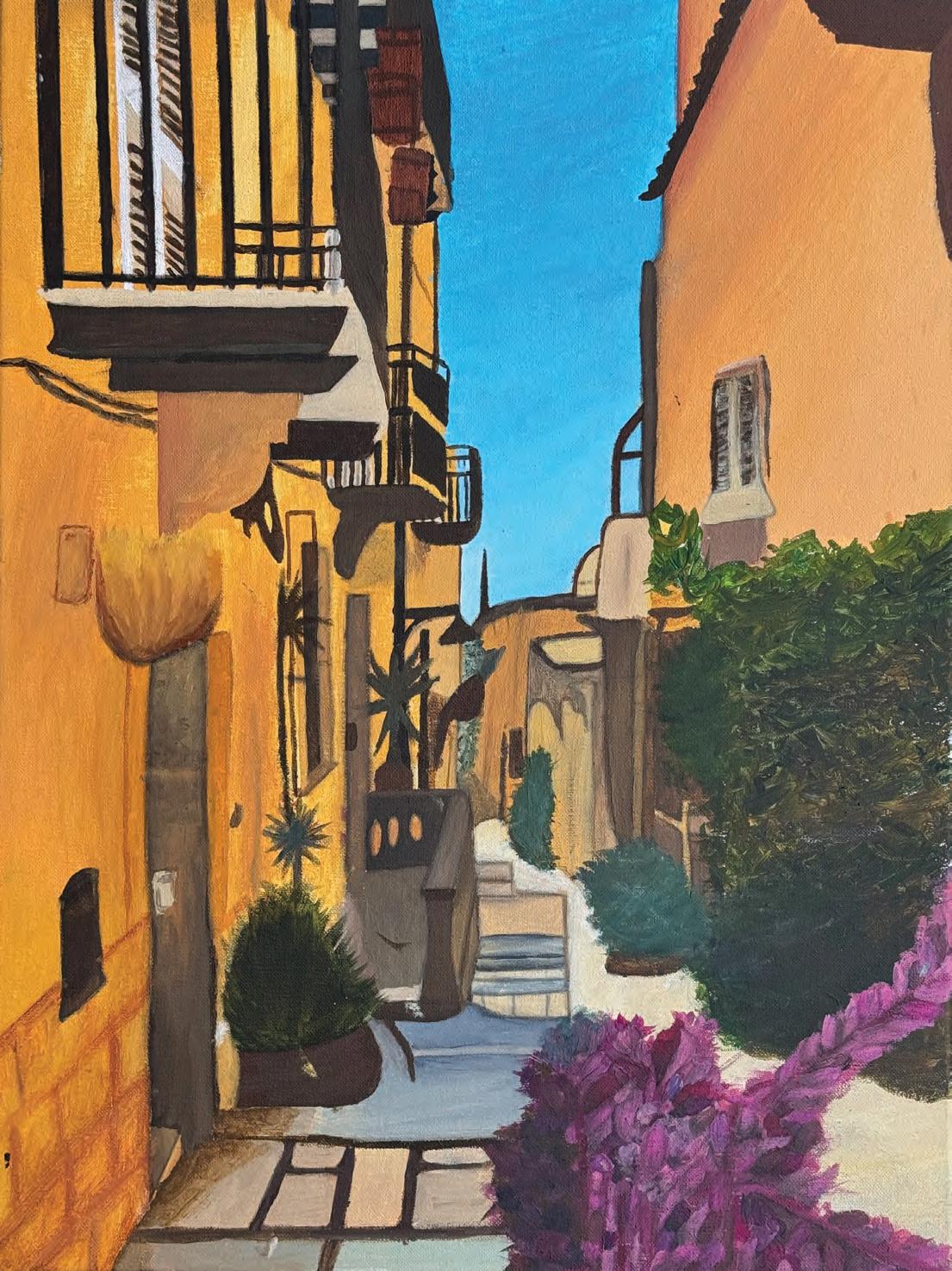
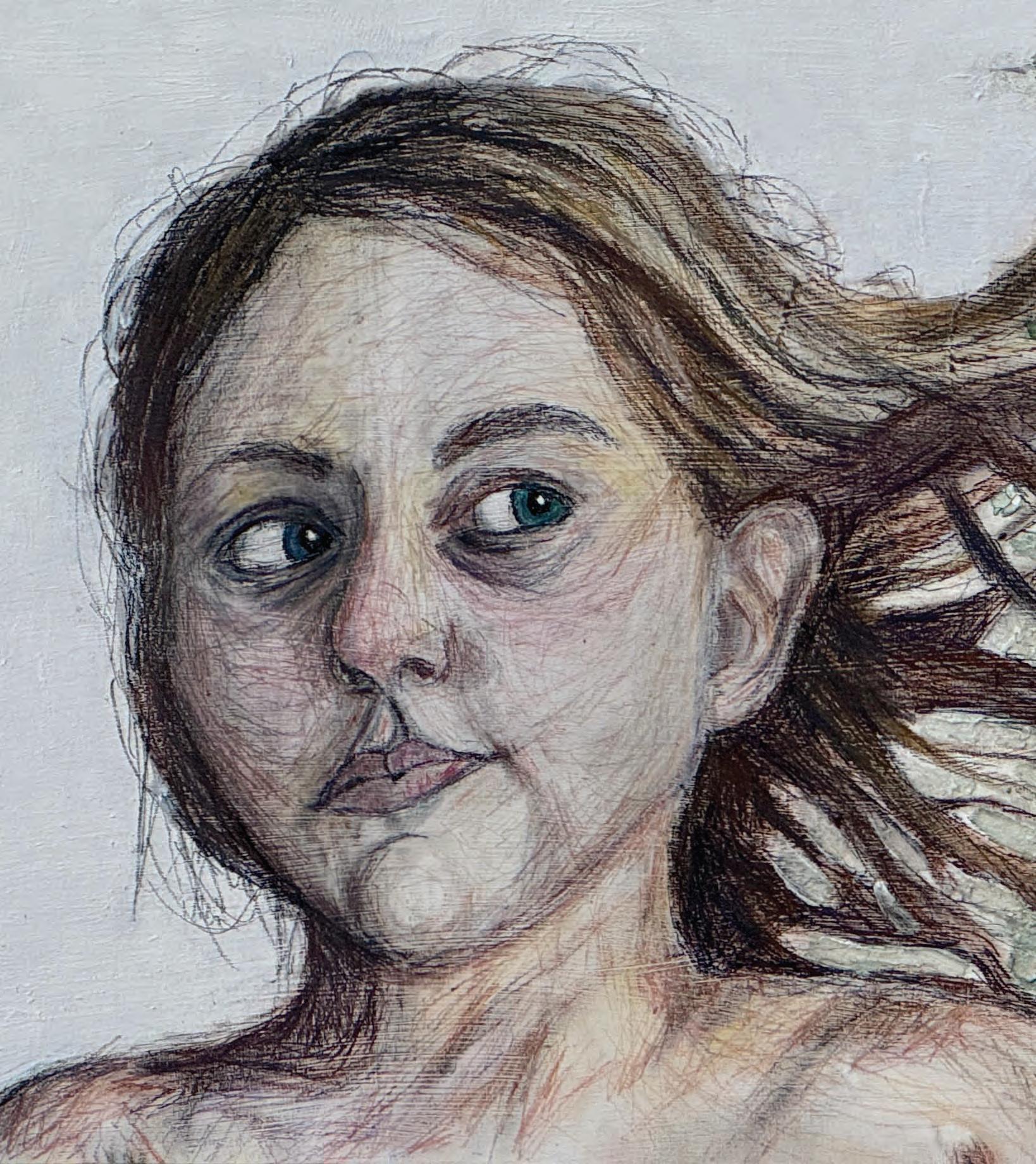
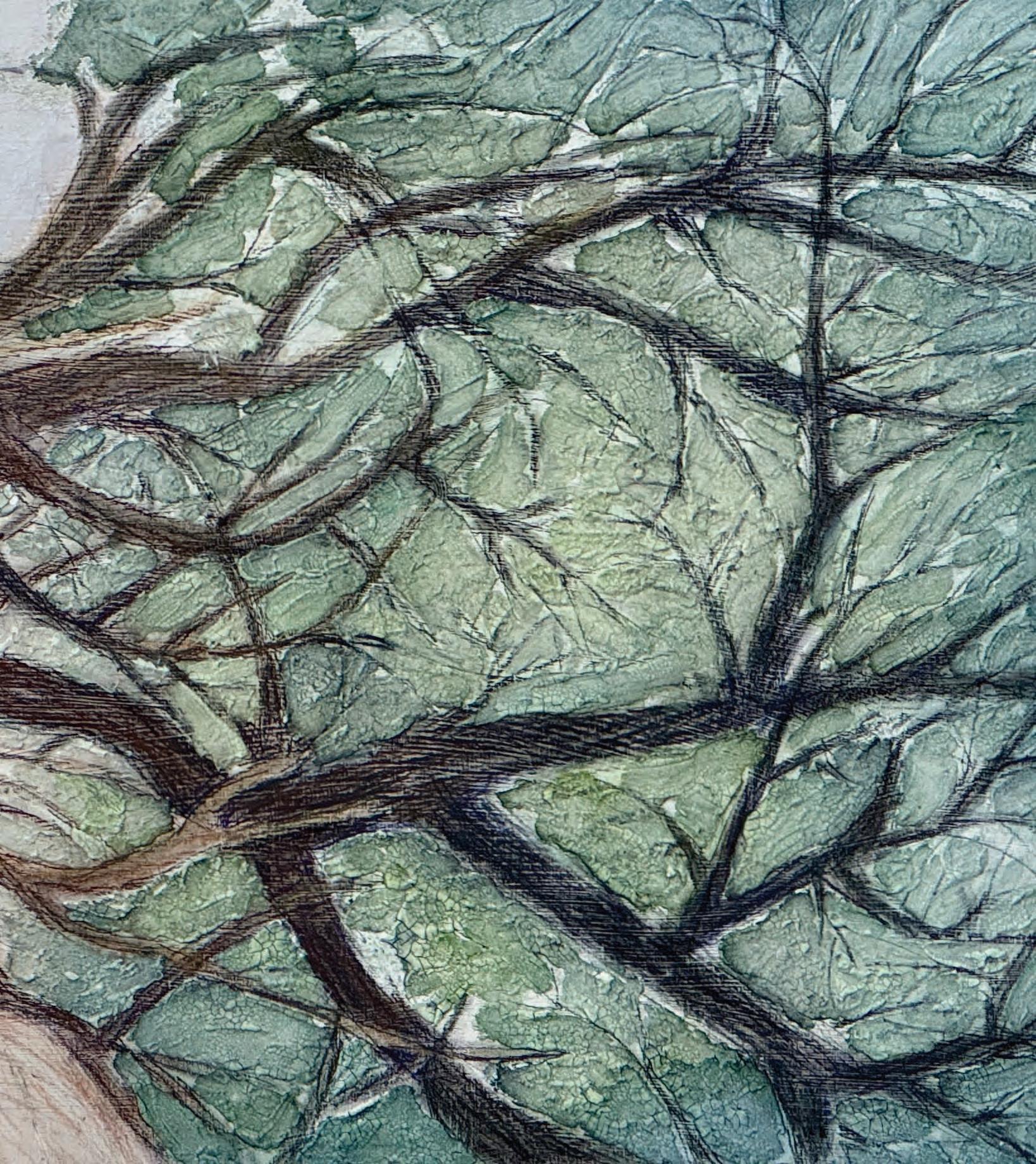
Samora Elam
winter is on my tongue, its frost-adorned fingertips freeze over my mind only delicate, yet indifferent words are coming out of me
summer is in my spirit, my heart is begging to beat faster to somehow ignore the words coming out of me it’s not true it’s not true it’s not true it’s not true
autumn is in my eyes, their almost-black hue changes to brown alongside the leaves. since the summer no longer blinds them they can see my eyes for what they really are rather than some bottomless pit of apathy
spring is in my ears; they overflow with puffy petals who wither when they feel the anxiety of my heartbeat pounding within them their pink and yellow hues distracting the world from the words coming out of me
the seasons change in my mind, the hormones and chemicals shifting as the months go by. take it easy on me near the end of the month— i am a woman.
take it easy on me in winter— my seasonal depression encompasses me.
take it easy on me in summer— im dreading spending it alone with the bees and honey.
take it easy on me in autumn— im dreading the arrival of winter.
take it easy on me in spring— im dreading the lonely two months ahead of me.
winter is on my tongue, summer is in my spirit, autumn is in my eyes, spring is in my ears, yet why can i not be satisfied with the lack of peace and silence?
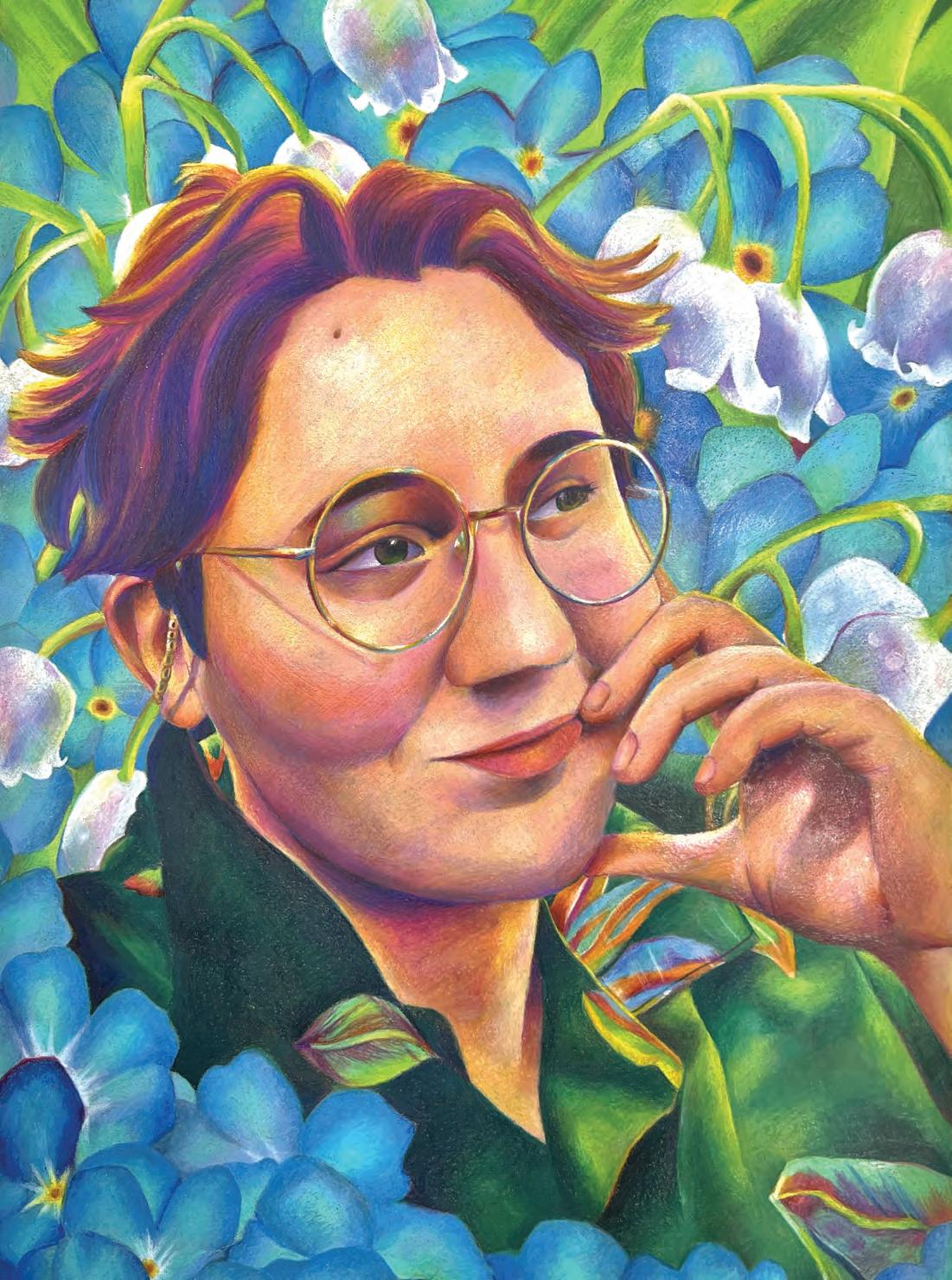

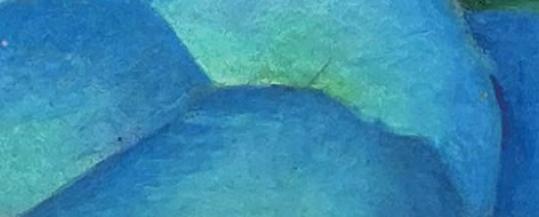
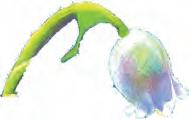
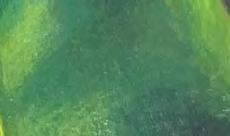
One of three. In my introductory class to engineering, I was one of three girls in a class of 28. Civil engineering was slightly better; I was one of five girls, the highest number in any of my high school STEM classes. In Fab Academy and AP Physics, I was one of two.
Being a minority became normal.
For my sophomore history final, I researched and designed a memorial for The Lost Girls of Sudan, a group of (essentially) children who endured, survived, and now stand in opposition to crimes against their humanity. Unfortunately, they are also quickly becoming the “Forgotten Girls of Sudan.” If I could change any course of history, I would make the story of these brave young women known.
Eighty-nine undocumented Sudanese girls came to the USA as part of a refugee resettlement program. In Sudan, they saw sights no person, let alone child, should see. The Lost Girls of Sudan were forced to leave their homes and families and lost their childhood. And if that wasn’t enough, they were forced to raise children in a country that normalized rape, abuse, and other atrocities.
While the USA generously provided a refugee resettlement program to Sudanese children, the program’s policy was somewhat doomed, due to a Sudanese culture that favored boys over girls. Women were prohibited from living on their own whereas the refugee boys were placed into communal living situations, organized into minor groups, and had their names, ages, and years of arrival at camps recorded. Girls were placed with families or distant relatives where records were frequently lost and supervision curtailed. Foster families viewed the girls as economic commodities, using the younger girls for domestic labor and the older ones as brides for sale. They were forced to marry substantially older men, many of
whom were abusive, and were denied education and documentation. Thus, when the State Department and United Nations began Sudanese refugee resettlement in the 2000s, the majority of the girls weren’t in any registry, or the few girls who were suddenly disappeared, often hidden or kidnapped to be sold.
The USA’s flawed policies abandoned thousands of Sudanese girls in need of resettlement. Only 89 sought refuge in the USA, compared to the 3,600 boys.
It’s foolish to ignore the positive impact the USA had on the Sudanese children. Almost 4,000 children were heroically given a safer, more stable life. But it’s also foolish to ignore the inherent gender discrimination in societies worldwide. My girlfriend in AP Physics and I joke that we “prove the stereotype right;” we were convinced we had the lowest grades in our class and attributed it to our intelligence.
We were very wrong. Not only were we the only two students in the class to go to our teacher for extra help, but there were multiple male students with lower grades. Our difference is not our intelligence; it’s just our biology.
The Sudanese girls weren’t disqualified for resettlement because they were less intelligent. They were physically placed in different locations than the boys by other people, thus making them ineligible for USA resettlement requirements. The Lost Girls of Sudan showed me that I am not dumb. I am not less qualified nor less intelligent; I just have a different chromosome.
Throughout history, a single chromosomal difference has relegated women to positions of inferiority. Until it is acceptable for a STEM class or the Supreme Court to have only women present, the fight for equality is not over. You cannot solve a problem with the same logic that created it. Men and women are essential to success.
Clark Fan
They rolled along the cobble-strewn path, moving sluggishly in the night. Sparkling crystals of frost glistened along the edges, like shards of glass under the pale moonlight. Behind it were two thin paths, carving a long ‘s’ along the rugged road. Through the stillness, the only noise was the groaning and creaking of the wooden carriage.
The sky hung heavy, and the trees swallowed the moonlight. They rolled into the dark forest. The familiar sounds of nature were silenced by the black. Each gnarled tree loomed like a skeletal figure with twisted branches clawing at them. Silence.
A lantern was ignited, and it glowed in the carriage, a dim sun in a darkening void, casting eerie shadows along the trees. They pressed on.
Minutes passed. The leaves rustled softly.
Wolves erupted from the undergrowth, bolting in the opposite direction. Snow scattered everywhere. But their gleaming eyes never turned towards the carriage.
Snow fell, silently, steady, blanketing the ground in eerie calm.
Then, the ground rumbled—faint at first, growing louder, growing closer. From further down the road, a herd of elk burst forth, thundering towards them. Their hooves pounded the frozen ground, a relentless war drum, with each blow shaking the carriage.
Several large boxes tumbled off its side, their thuds swallowed by the roar of hooves. As the carriage slowly moved ahead, they were lost in the snow.
With its dim, yellow, flickering lantern, the carriage pushed ahead. They took a shallow turn and came to a stop. Ahead, bodies littered the ground. Wolves. elk. and birds. As if swept aside by a merciless hand, their forms drained like withered leaves and half-buried in snow. The man stepped off the carriage, his footsteps echoing in the dark, as he kneeled beside a wolf. It lay
twisted and broken, its once lively fur soaked with dark blood that pooled beneath it, staining the snow. Each animal was frozen in their final attempt at escape.
A low, almost imperceptible whisper broke the silence. The man quickly stood up. The trees vibrated and danced in the wind. Flakes of snow tumbled from the sky, settling over the ground and blanketing the lifeless animals.
The ghostly whisper intensified, eerily reverberating through the forest. His grip on the lantern slowly relaxed, and it fell from his fingers, crashing to the ground. The flames erupted only for a second, before diminishing in the cold snow.
He stood motionless, his gaze fixated on something unseen in the trees. Then, as if caught in invisible strings, he was jerked forward. His steps were deliberate and unnatural, like a puppet guided by a puppeteer.
Soon, the blackness swallowed him whole.
The carriage stood silent.
Minutes passed.
In the carriage, a light flickered to life.
A girl emerged from the cart, her face illuminated by the glow of the lantern. Her curious face peered into the darkness. She called out softly.
Silence.
Elegantly, she stepped out onto the cold cobblestone. Her bright red dress stood out in the dark, glimmering like a flame. Among the shadows of the trees, she was a single drop of blood.
The girl slowly crept towards the bodies, halting beside the broken lantern. Her cry was cut short.
A blur of motion sliced through the air, and in an instant, she vanished, devoured by the darkness. A faint scream echoed in the dark. Only the snow in her place danced on the ground.
Once more, silence crept throughout.
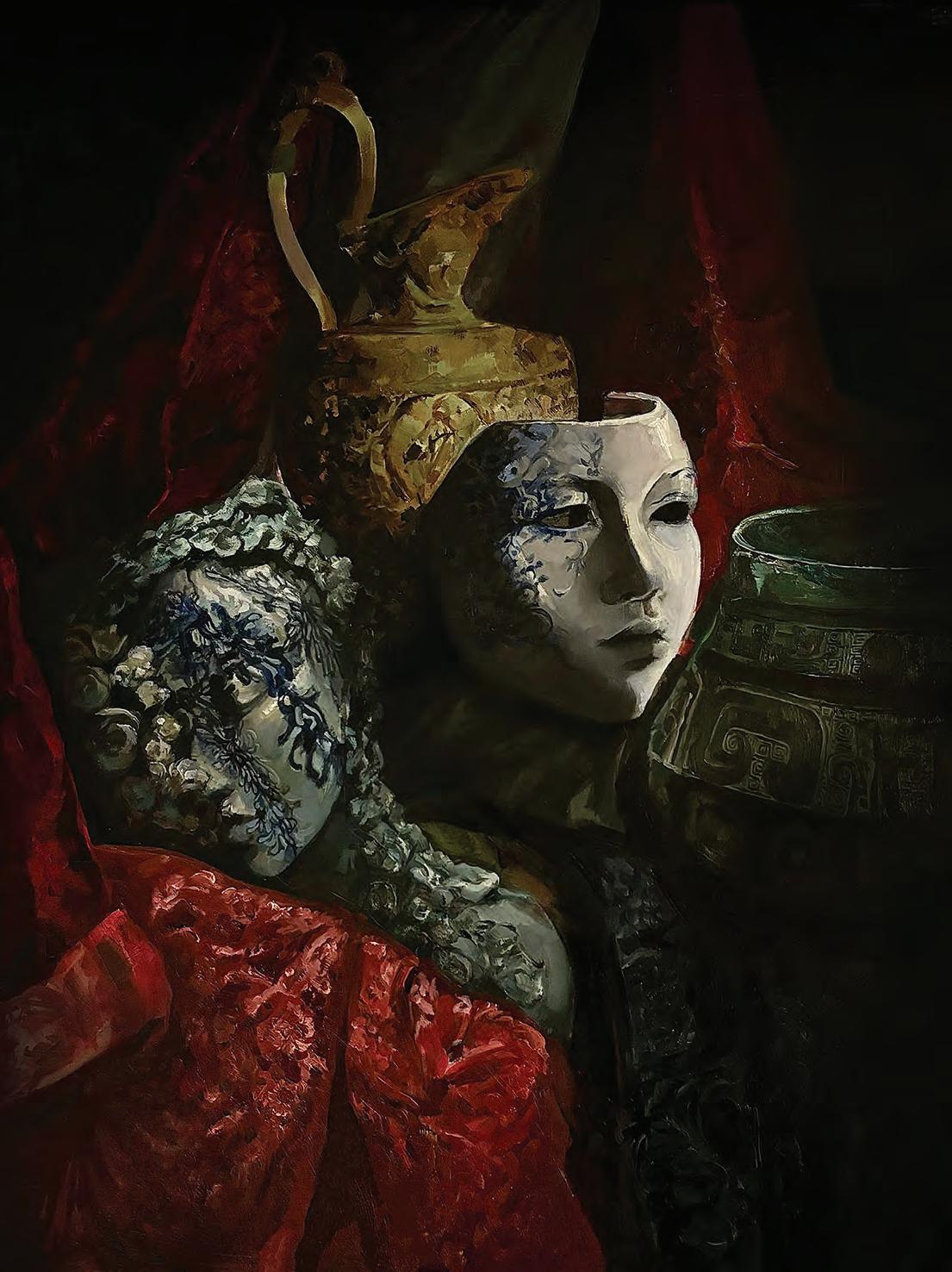
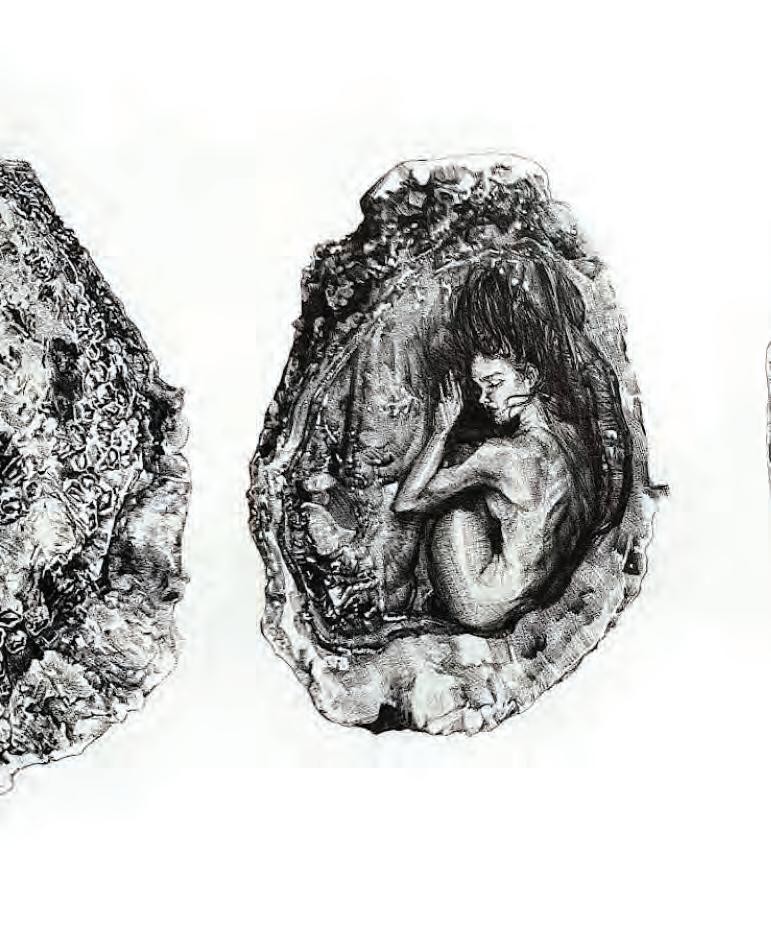
“We fold
become into ourselves, pensive,
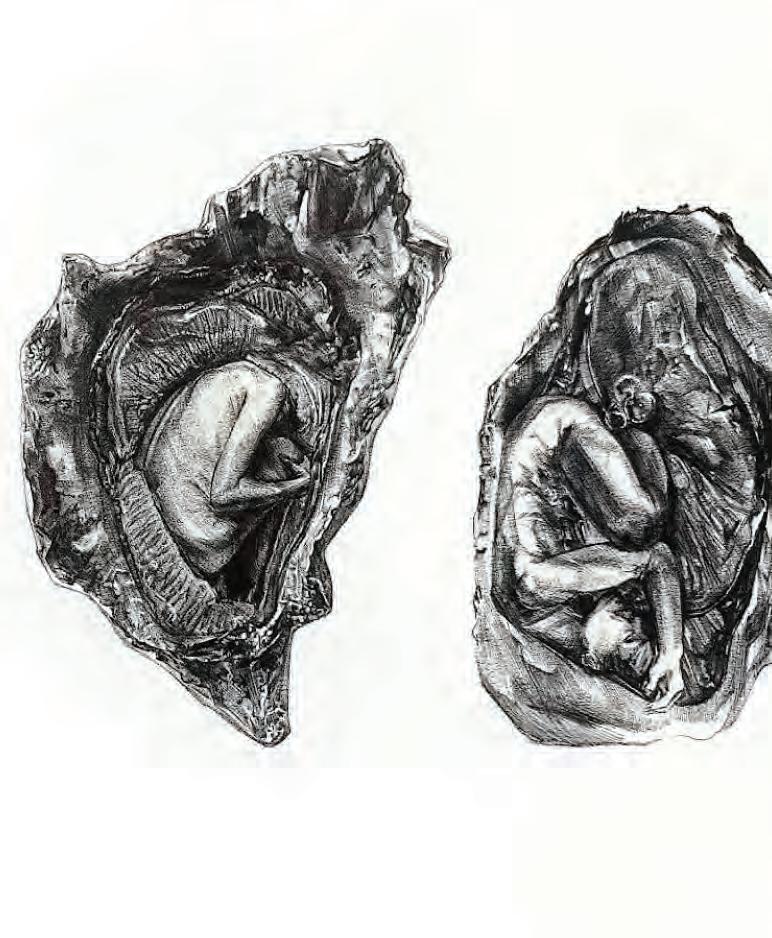
” warmth
and wait for the of spring...
“Eurydice!”
Lynn Zhao
Orpheus lunged forward, desperately flailing his arms in an attempt to grab her hand. He missed, collapsing with grief to the ground. Trembling, hands shaking, body cold. Alone and without his wife, who now remained in the Underworld.
He failed Hades’ test mere steps away from the exit of Hell, and his musical heart’s cracking echoed beyond even the realm of the gods as the fissures in his heart grew into valleys.
As a heart breaks, so does the world.
Orpheus, alone. His wife, gone.
No wonder the Grand Canyon cuts so deep.

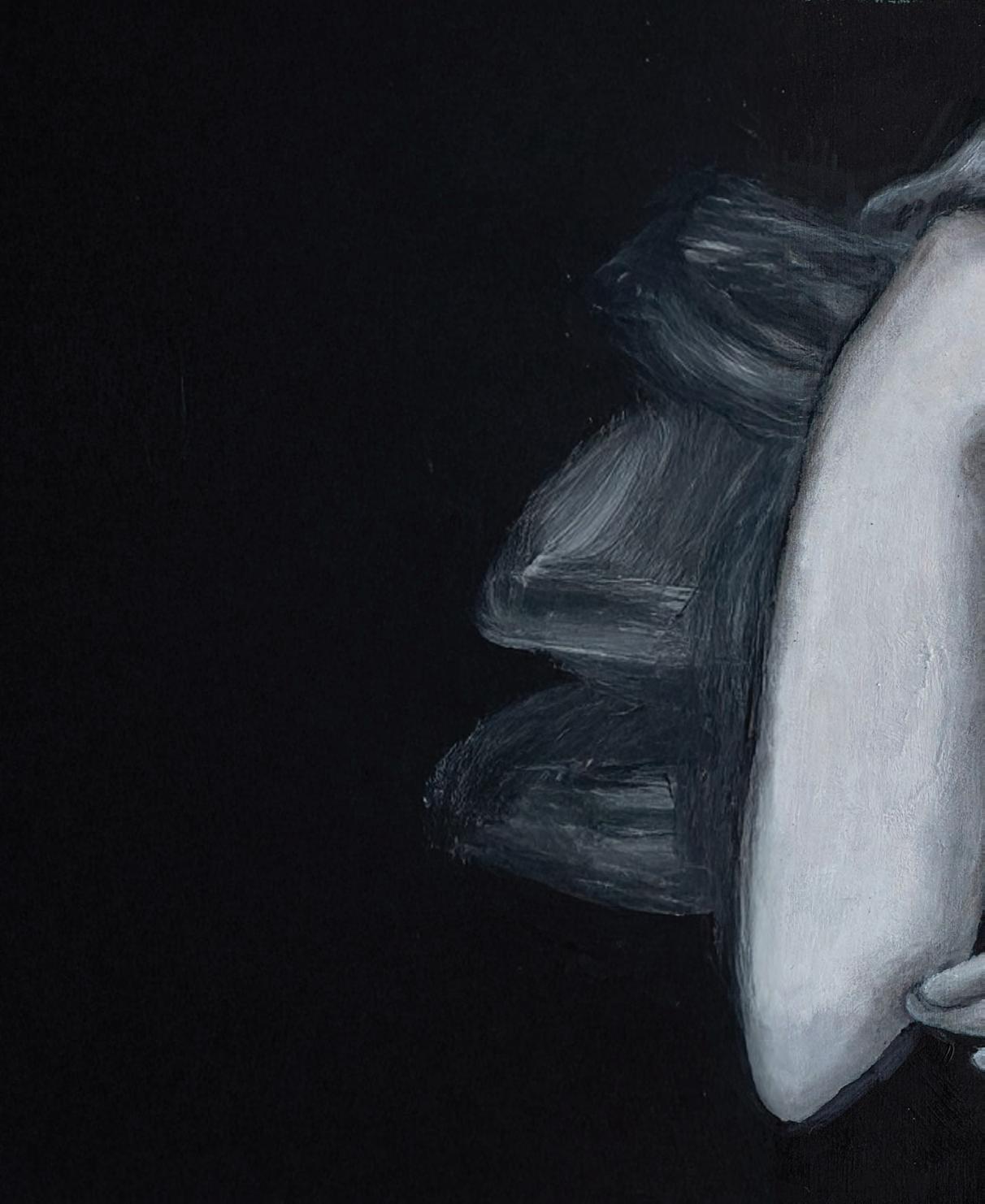
I wander through the frozen streets of Piccadilly, having read TheMarriage of Heaven and Hell in this endless night illuminated by the moon. I see in the claustrophobic city, giant stacks of metal rods covered by plastic tarp, the telling signs of another fruitless building in progress.
Smoke and snow coat the air, the asthmatic nine-year-old girl’s death, not rectified by the government’s empty promises and apologies.
Blake takes me back to his city, and makes me understand, reciting cries of chimney sweepers, songs of lambs and tigers, and of a time when factories will forever cease the steady hum we still hear. He tells me stories of Heaven and Hell, where spirits reside, innocent and irate. Amidst the ringing of St. James’s Church bells, he asks me who I am.


Athena Woodward
You are five years old, and everyone is home. The smell of your mother’s cooking wafts into the upstairs room that you and your brothers have transformed into your Guitar Hero recording studio. You chase each other in circles around the couch, whine, kick, slap, and cry out, “Mom! He hit me!,” just to see the look of terror on your brother’s face. Giggling with glee, you tear down the carpeted stairs to the dining room, climbing onto one of the soft leather chairs and crossing your legs. You heap pasta and meatballs onto your plate, listening to the endless stream of chatter from your family. Word of an upcoming election finally sparks a descent into your imagination. Looking down at your plate, you picture knights on horseback and maidens in distress all soaking in your pasta sauce. Your mother will command you to stop playing with your food and scold you for being so impolite. You whine and whimper, crying, and run away from the table. Right now, you focus on the carpet under your cheek as you lie weeping on the floor of your bedroom, not the impending, inevitable passage of time about to sweep you off your feet.
You are twelve years old, and everyone is home.
You bury your head in books under the dinner table and drown yourself in the details of better, more interesting worlds. Your brothers seem distant to you, like older giants who drive too fast and eat too much. Surrounding yourself with books helps drown out the insults flung at you at school—in the pages, you hide between sentences and scurry to duck behind paragraphs. You don’t stop and wonder how much longer everyone will be home.
You are now eighteen years old, and it feels like nobody is home. The holes in the walls you wrestled against with your brothers have been patched over, and nobody barges into your room when you’re on the phone just to annoy you. There will never be another morning when you all trudge downstairs together and groggily fight over the last waffle, or secretly nudge each other under the mahogany table. You find the remnants of these moments scattered across the floor of your mind—in this corner, a giggle from your mother as your brothers dance in front of the television—or pasted onto the ceiling, a family picture in front of the fireplace where you are nestled between your brother’s legs.
Nobody is home.
Skyward, as such empyrean ceilings compel, renders visible a fresco of palette sun, Vibrant in natural ambience in lieu of presumptuous human interference.
Statuettes shroud the piece, ecclesiastical, as they champion from whence Their devotion, superseding mighty pillars on which they exist, had begun.
Under firmament, it’s as if they are the foundation, the divine hand undone Raising and maintaining the ceiling on which depicts their reverence.
They stand poignantly still, doused as if in ichor, the lifeblood for penance, Of gods, and fittingly, they stand in homage in the name of one.
The amalgamation of it all, the gold, the vibrant, the marbleized, Serves as a testament to an overarching faith that fills a certain cavity,
One transcending mere mortality and human triviality, it has been realized. This crisis of nihilism, reclaiming that cavity, a certain travesty
Where even still, the balance was never meant to be level, albeit harmonized. As it is, and always will be, the human who brings it gravity.

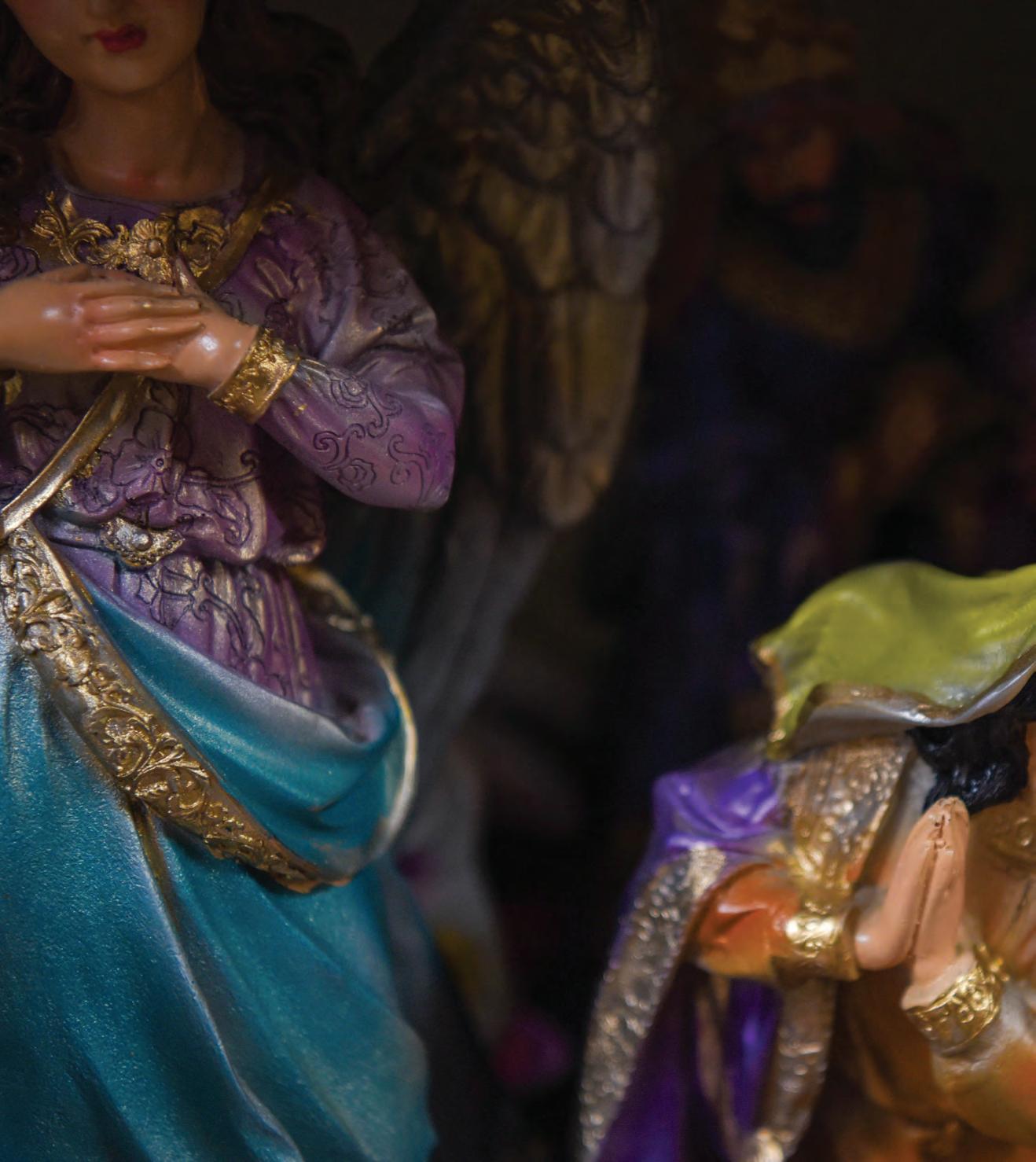
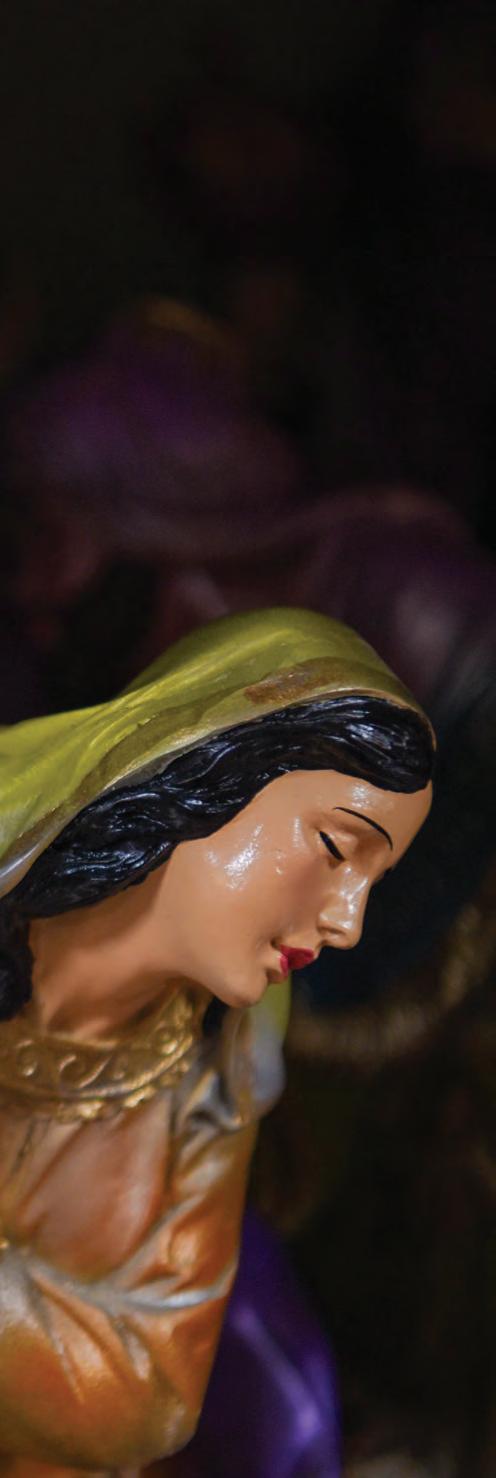

Jackie Rao
in my
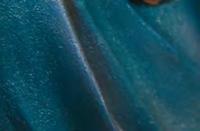
i do not think i can say goodbye so in the night we soar to the stars for in my dreams you cannot die
love turns to loss with my eyes never dry moments bleed and leave me with scars
i do not think i can say goodbye
an eternal sleep calls you to the sky but i must awaken and leave you to mars for in my dreams you cannot die

my memories chase your shadow up high so i reach to trap those fireflies in jars i do not think i can say goodbye
your ghostly whispers sung by a butterfly or the smoky clouds of some lazy cigars for in my dreams you cannot die
your embrace six feet beneath where i cry a stone marks your life now gone from ours i do not think i can say goodbye for in my dreams you cannot die
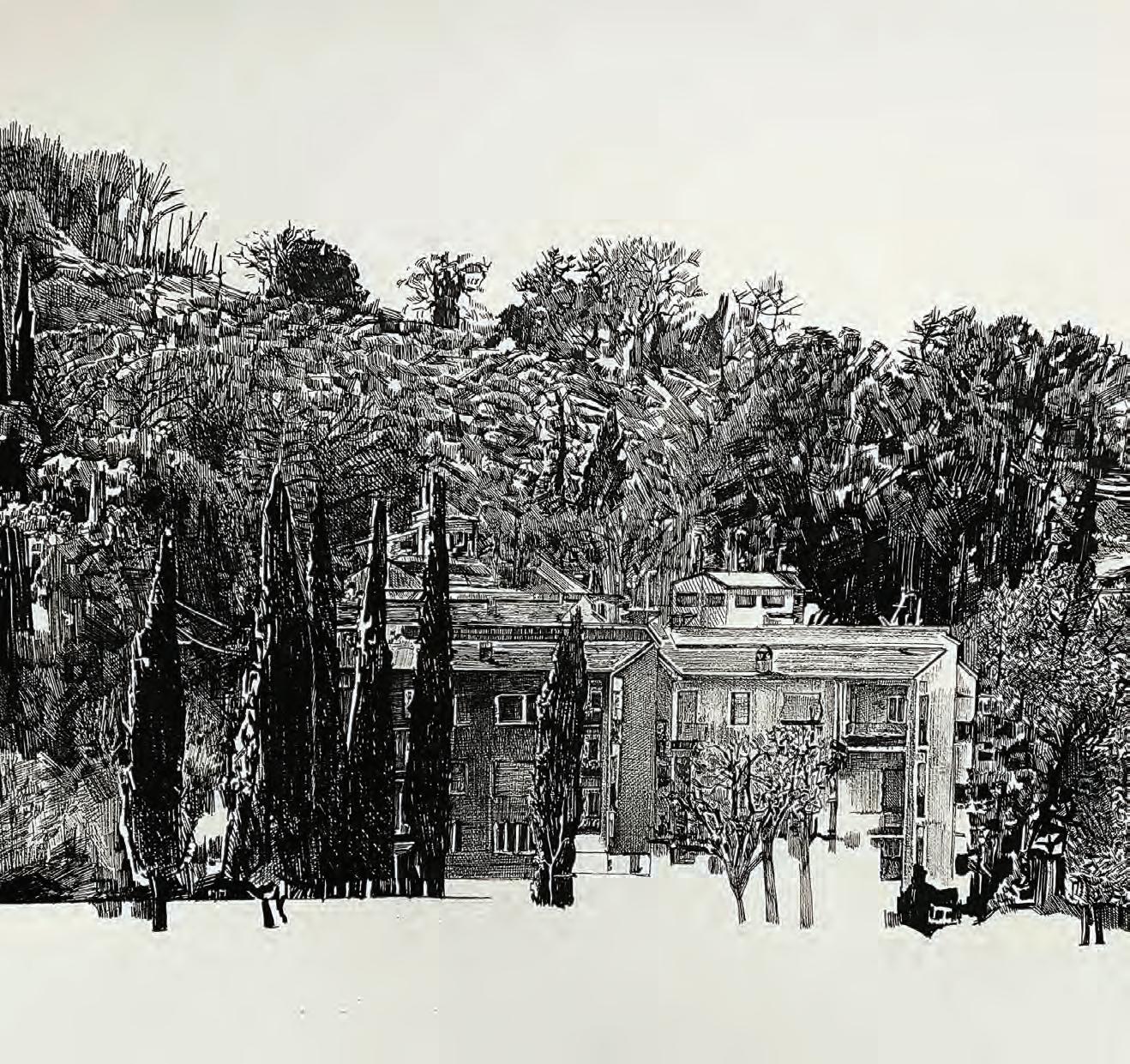

Crease. Fold. Drop. Crease. Fold. Drop. Crease. Fold. Drop. Every piece of clothing sank into my carry-on, my heart following it.
I didn’t need to take a shower that morning. My father’s five words, “book three tickets for Houston,” jolted me awake like the steaming water spewing out of the showerhead.
My mom came from work early that day. Entering her room, she witnessed my dad’s comically fruitless attempts at packing a suitcase. Charging cords were put on the bed while clothes carpeted the floor. With my mother’s entrance, my parents’ partnership turned calm into chaos. They were ready in half an hour, their efficiency a silent testament to years of unspoken understanding.
Not a word was uttered in the car. My dry lips clung together, and opening them to speak was as much a mental exertion as it was a physical one. Meanwhile, rain slammed against the car doors. As we neared the airport, sheets of rain hit the runway, a one-way road from Hell: planes landed, but none took off.
Our flight to Houston should have taken off at 9:30 p.m. Fate, however, kept us staring at our phones until midnight. During that time, I made a few calls to my friends. I told them about our sudden trip, and why we were going. Many asked to speak to my father. “Thank you, thank you, I appreciate it,” he uttered.
We arrived at my grandmother’s house at 2:00 a.m. The fatigue of our flight left my family trotting like zombies into the doorway.
Grandmother’s feeble smile momentarily shook off the coat of despair that weighed me down. That despair entered my heart as I lie on my bed, the house’s uncanny gloom staring me down like a valley’s echo.
The next morning, I found a suit coat, khakis, and a tie on the floor of my room. I’m no stranger to wearing ties, but this tie, this black, checkered boa constrictor, it choked me to tears. A torrent of tears stained my buttondown, their salt searing a bleeding wound. I continued dresssing.
I soon found myself amid stones. Gray, carved stones everywhere. I imagined being a bird, looking down on myself. To the bird, the dark stones must look like bullet holes, I thought, bullets that narrowly miss my own body. It’s all a game. It’s all a game. Every one of us exists somewhere on this bullseye of life. The player, the allseeing eye, Fate—Fate raises its gun, takes aim, and fires.
My father, the oldest of four brothers, took the corner farthest from me. One by one, my three uncles gripped the edge of their own corner, their fingers digging into the wood of the coffin. Together, eight hands of four sons lifted the mass of wood and flesh, taking it to the heavens before putting it beneath their feet.
Those same hands clawed at the soil, flinging fists of dirt onto the wooden overcoat, their tears watering the fresh mound. When the stone, the rough, rigid, ashen tombstone gripped the soil, never to leave again, I understood that Fate laid its finger on my grandfather’s life.
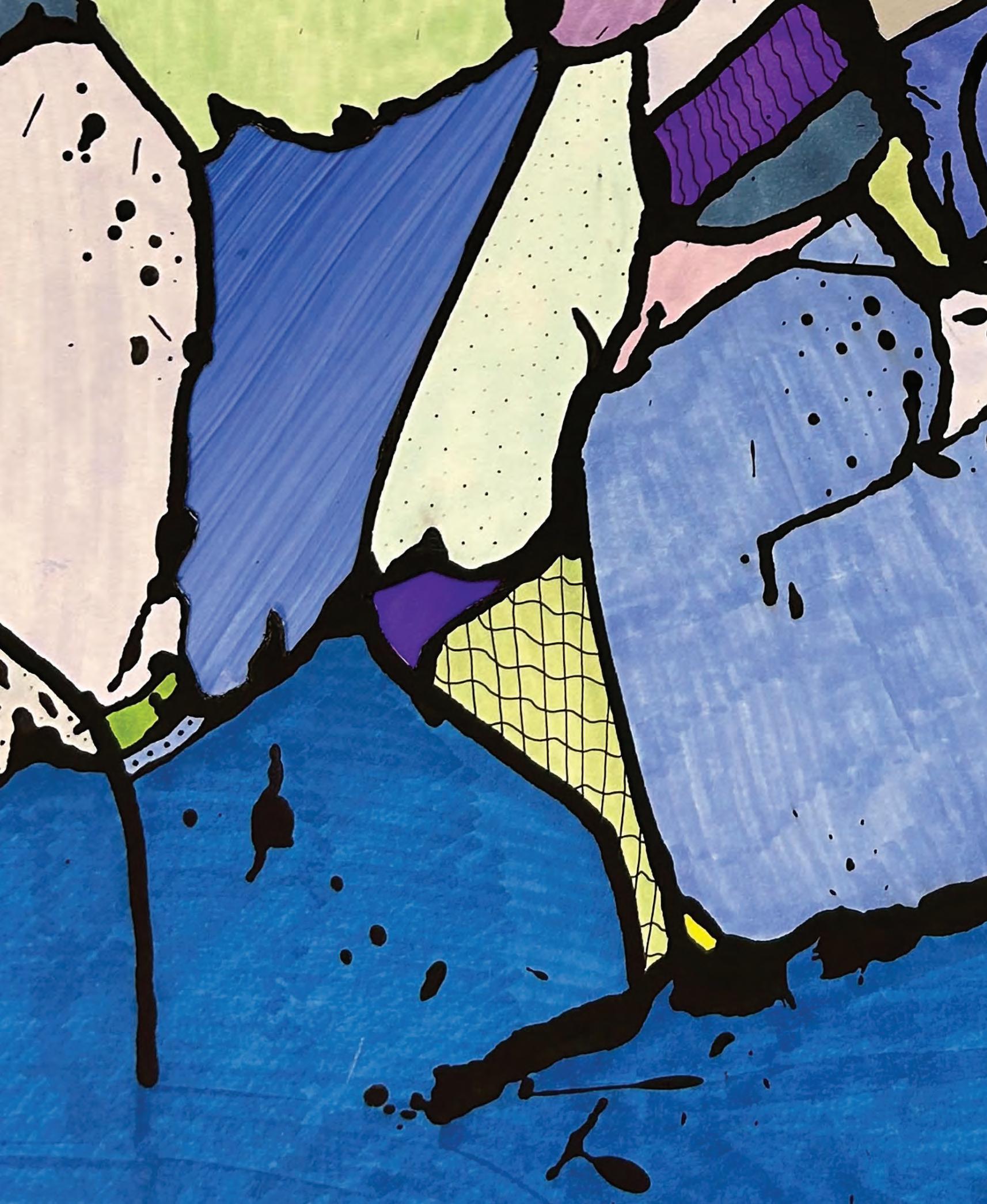

Divija Rao

Your hollow interior Holds all of my burden. Your pillars keep me grounded, like a weight on a balloon, like a staple holding a stack of papers.
But you accidently slip and fall. Shatter into tiny pieces. My contents spill out onto the surface,
And I am met with deep deep fear.
What to do now?
I don’t have a mold, Nothingtoguidemeinthe right direction I am plunged into a deep sea of uncertainty
But in this sea I find liberty It requires no mold, no guide Its waves crash left and right up and down with no fee
So when you fall and shatter and my contents lay on the floor I spread my wings and fly like the papers that roam free with no staple and the balloon that floats free with no weight
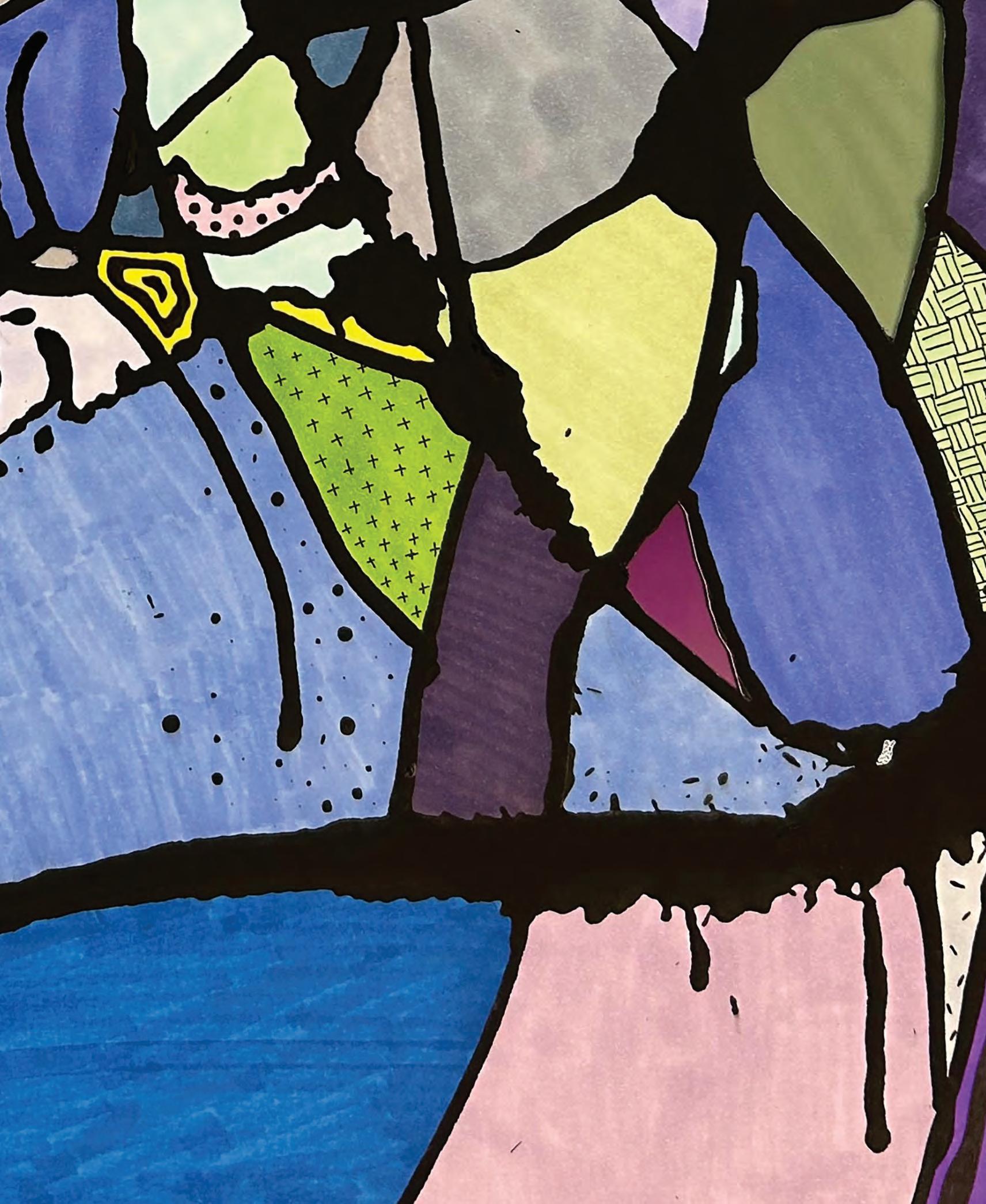
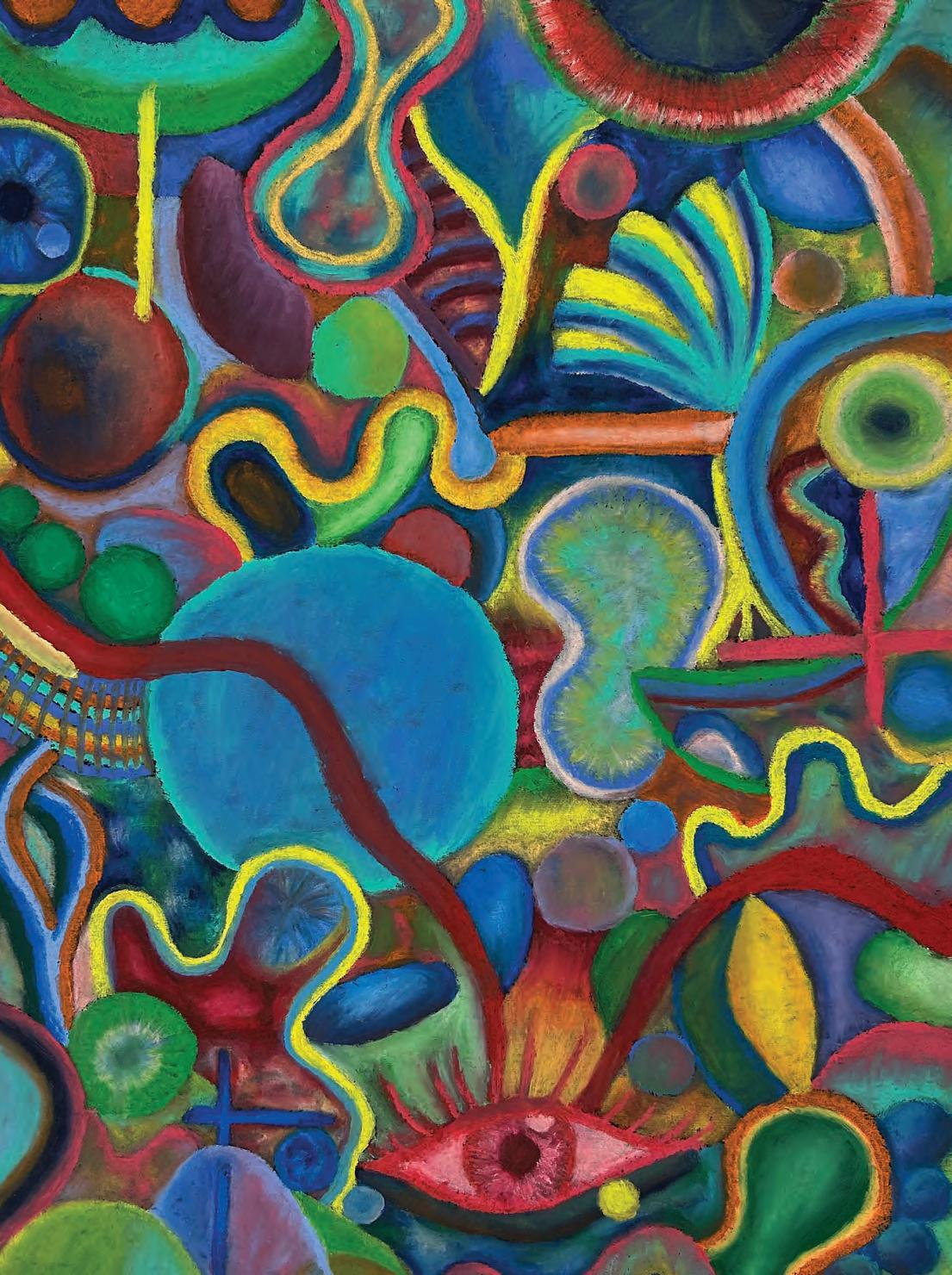
Nicole’s eyes spoke the language of glossiness, an infestation of tears refusing to abandon her.
Birds and Things had just opened up shop. Her apron flutters rhythmically, her watch ticks a waltz. The cages, poised between shelves, contain hummingbirds.
Nicole scans the store’s catalog, recites every deftly drawn species:
Saw-billed hermit. Stellula. Calliope.
The usual customers file in at daybreak. Bloodshot eyes, lattes, swaths of breakfast galore.
Glaucis. Violetear. Bird-of-paradise.
The dawn gives way a tad, glints of light careening from the window and missing Nicole. As though locked in the rhythm of a perpetual stroll, she taps her fingers.
Bird-of-paradise.
Paradise.
Nicole trains her gaze straight ahead, counts each slipping second. Her first customer, an older gentleman, approaches.
The supplier wheeled in their newest bird a day ago. Bird-of-paradise. First of its kind in the state. A singularity. One could mistake it for an orchid if not for the curvature of its wings, trapped in a whiplash of birdsong. The burnt orange screamed.
“Ma’am, ah, I’m in a hurry. You there?”
“Yes, I apologize.”
“All good. It’s early, don’t mean to be a bother. How’s your morning?”
Her focus returns to the wings. Wings evade their fates, they shed. Weakening from the inside in a quiet implosion, the opposite of dynamite.
Nicole could blink and her eyelids would hallucinate to keep their sight a second without would collapse into a dream.
“Living the dream, sir.”
It taunted her.
“Ma’am?”
“Hmm?”
“My kids, they’d like a Bird-of-paradise. You familiar?”
“Sure.” She stares back with longing. “What reason?”
He shrugs. “The name, mostly. Youngsters, you know how they are.”
“Can I interest you in any other birds?”
Eyebrows furrowing, he falters. “Why?”
She focuses on the golden wings, and as though blind, she sees red. Everything she cannot have, in an unassuming passerine. A chokehold of desperation halts her breath.
“We have wonderful, ah,” she curses to herself, “sawbilled hermits.”
“Birds-of-paradise. Please.”
“Out of stock, sir.”
He opens his mouth, notices a labeled cage, and closes it. “You lying to me?”
Her turn to stutter. “N no, sir. My mistake. I’ll prepare it.”
He nods.
Hoisting the cage to the back, afforded only moments of hesitation, her hands separate from her mind.
Pet the scalp, avoid the neck. A wonder, truly. She cannot let this bird leave.
She plucks, feather one, feather two. The bird settles with a compliant trill. “We haven’t all day, lady.”
She could do without college. She could do without an internship. Both had lost their appeal—she found herself fluent instead in scornful glares and spare change.
She grasps at the remnants of the adrenaline, the spite, every achievement that faded before her eyes. She could not sacrifice this bird.
Fluorescent lights catch these wings in a waterless refraction. Wind collects them. With every pluck, the bird releases a steady rattle. “You giving it a shot or something?”
Hope is the thing with feathers...
Nicole continues, pondering where these feathers could reside. A vanity, perhaps.
...that perches in the soul.
The tremoring bird croaks now, unnerved. Its shiver becomes instinctive, as sentient as itself. “I have work, ma’am. What are you doing back there?”
And sings the tune without the words, Humming, she harmonizes with the cries. She discards the tweezers. The pluck turns to a yank; the feathers torn from the shaking wings. She lets this bird-of-paradise descend.
”That bird dying or something? Lady, stop!”
And never stops at all.
A handful of feathers. Two. A biology major and class topper—such potential, they said—she visualizes the pain receptors with ease. Transmitters, adrenaline, every nerve firing towards paradise.
And sweetest in the gale…why, this is not poetic. She refuses to let it become so.
The pile of feathers coalesce into a being of sorts. Yells emerge from a line of customers.
Almost featherless, its reddened eyes shine. Now it would understand.
The volume of its cries dares to rise. The bird must not be loved.
Nicole clutches its throat. She’d abandoned her life for birds. It could never understand, it deserved to do the same.
Hope is featherless. Hope begs for flight. Hope yearns eternally for paradise. This act is a favor.
She tallies the seconds between its staggered breaths. One one-thousand, two one-thousand…Sixty one-thousand.
The plea is diminishing—giving way to a last rattle of sensation—giving way to any sort of sound—giving way to sight as the eyes close.
Nicole puts gloves on, douses them in soap, contorts her face into apology. She approaches the register.
“I’m afraid it’s injured, sir.”
If hope is a thing with feathers, then why can’t I fly?
Athena Woodward
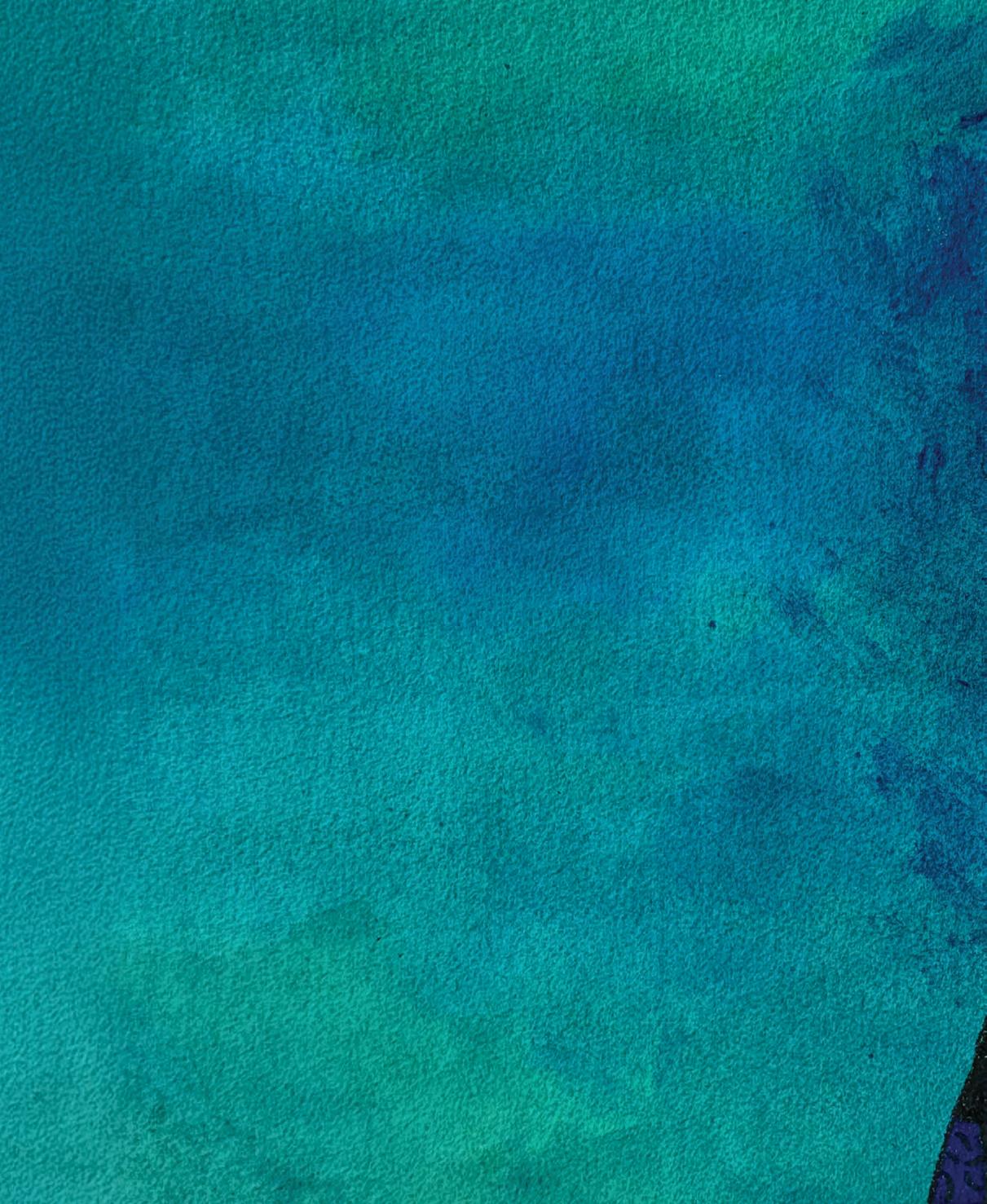
1. blow the dust off of your old children’s books and stare at the words so long they leave an imprint on your mind.
2. wonder if we ever listened to the lessons at the end, or if we all fell asleep too soon. wonder if a story having no lesson makes it any less important. decide that every story has meaning
3. go out to get the mail and feel the grass slither in between your toes. realize the earth is beneath your feet and the sky is above your head and you are everything in between.
4. savor the painful sting of the asphalt on your feet as a reminder that we are beautiful because we are breakable
5. meet a boy in the heat of may and spend nights dancing in the refrigerator light. blow dandelion fur and wish to know him forever, to tattoo his smile into the cracks of your soul and brand his laugh onto your skin forever.
6. memorize the mind numbing ache of saying goodbye, realize there is beauty in absence
7. light a candle, clean your room. wipe down the counters of your mind and evict the ghosts in your closet, even as they continue to leer and snicker.
8. think the devil would pale at what they have said to you. sweep the tears away and dust off the pain. get a new pillowcase, the old one knew too much
9. look in the mirror and see yourself at five. refuse to pinch her perfect pink skin or prod her delicate body. when you speak it is kind and careful, not callous and cruel.
10. you wonder at what point you were taught to hate what you saw. kiss her little forehead and apologize for not loving her enough
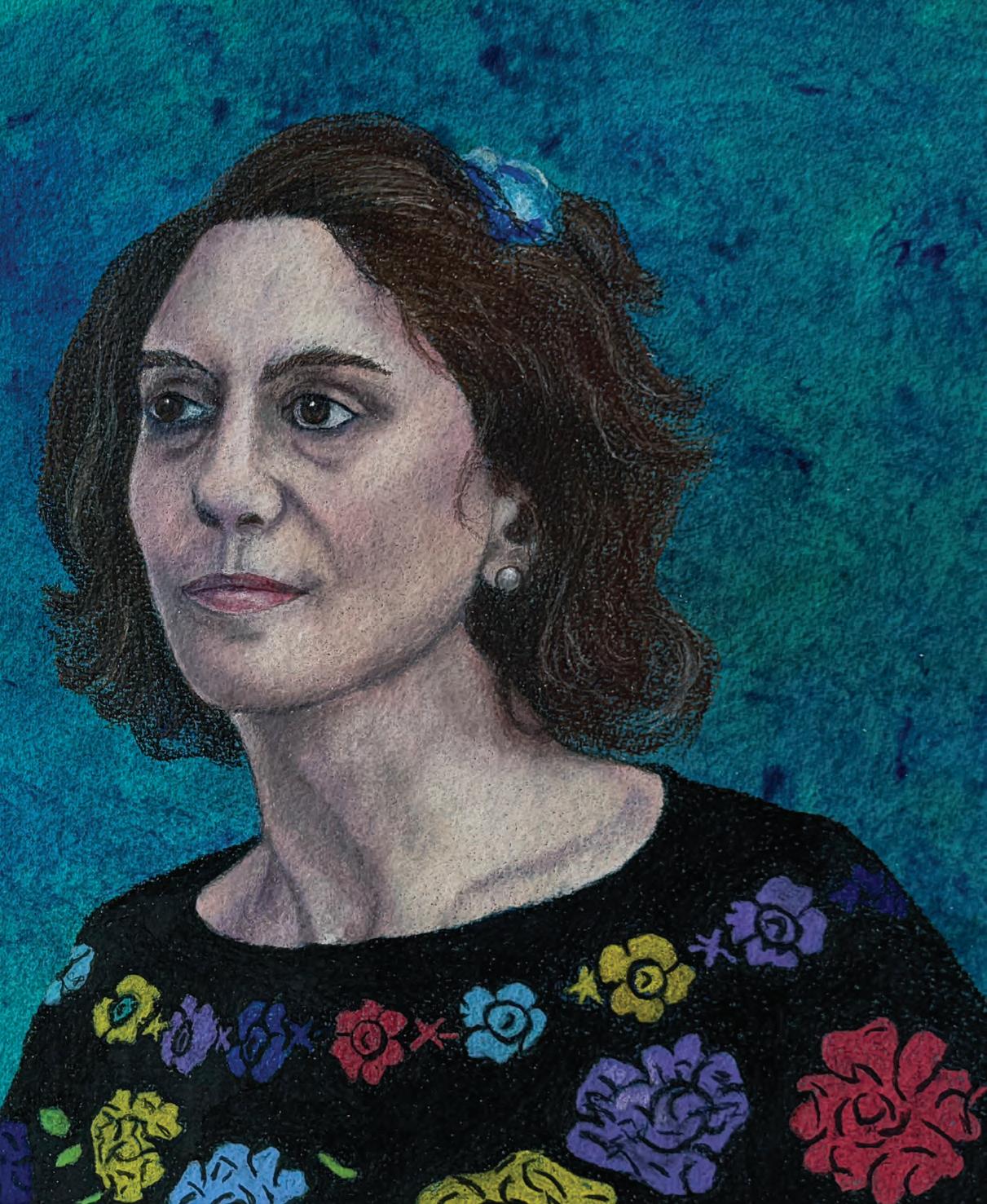
Carson Clutter
The inevitable Lake Norman summer storm is a violent, thundering, hurricane-like experience. The wind whips up white-capped waves that tear at the shoreline, and the wind ravages the trees. By night, the storms subside, nature recovers, and I watch the simple beauty of the lake: the ducks swimming home, the spiders stringing new webs, the fish jumping out of the water, their splashes casting perfect ripples that distort the moon’s perfect reflection on the water. The polarity of nature between rest and ravage creates a balance between peace and ease and hardship and pain. Life is boring without adversity to triumph but miserable without times of peace. Adversity, triumph, and rest promote growth and individuality, shaping our unique world.
I noticed the smooth water between two mangrovegilded islands in the Florida Everglades outside Islamorada. The vegetation protected the water from the everglade winds, letting it rest. As we cast our bait to the edge of the mangroves where the tarpon waited for prey, I observed the sharks, fish, and jellyfish prancing through the clear water. I saw bald eagles, seagulls, and osprey land on the treetops. I noticed that some of the once lush plants had turned silver. Curious, I asked our guide why so many plants had died on so many islands. I learned that the slow-growing mangroves perished during Hurricane Irma in 2017 and are still struggling to recover. Irma destroyed the vegetation in the Keys and ruined the fishing industry. However, the fish rebounded substantially when the island was still closed to tourists during the last months of recovery. The storm disrupted the typical breeding and feeding patterns and halted fishing, allowing nature to restore equilibrium. While the short period of pain caused devastating destruction to the islands and ecosystem at the moment, in the long term, it acted more like a cleansing, allowing nature to restore balance and reconstruct the ecosystem.
forest fires in the West, violent but necessary forces of nature that disrupt and reset. I hiked through a burned forest in New Mexico three years ago. A few months before I hiked, lightning storms caused small fires that quickly blazed the forest. The black, charred trees reached into the sky, contrasting the barren orange soil of the forest floor. Without live tree roots, the soil was susceptible to erosion, and small winding canyons twisted through the ground. The burn had devastated the forest, but the destruction renewed the soil, returning essential nutrients, and tiny green sprouts poked out of every little crevasse of the dirt. Although the pain of the forest fire destroyed animals’ homes, decimated 100-year-old trees, and scared the forest floor, forest fires are natural events that rejuvenate nature; they give an ecosystem a refresh, a new life.








Hurricanes and fires have that one redeeming quality in common: rebirth. Like hurricanes and fires, Lake Norman’s nighttime storms are incredible. Tree branches are thrown into the lake, boats fall off lifts, and rafts get blown away from docks. When the lightning strikes, its flash brightens the thrashing waves, exposing the whitecapped swells churned by the wind. The storms never last too long, though, usually one or two violent hours. When they subside, an aura of peace rises from the lake. Water drips off the wet leaves, rhythmically plopping into the now serene water. The clouds part and the moon illuminates the lake, making light for the ducks and geese to swim. The fish come to the lake’s surface, where the cool, fresh rainwater comforts them. The nighttime lets nature breathe after a long day and recover following the harsh storm.
Our guide compared hurricanes in the tropics to
A balance between hardship and ease, pain and peace, and stress and rest gives purpose to life. A life without struggle imposes a life of monotony. We must overcome struggles to be reborn better. A consistent cycle of adversity, triumph, and rest catalyzes personal growth. A person is made unique by their life experiences; if no storm interrupts their life, then what has made them unique?


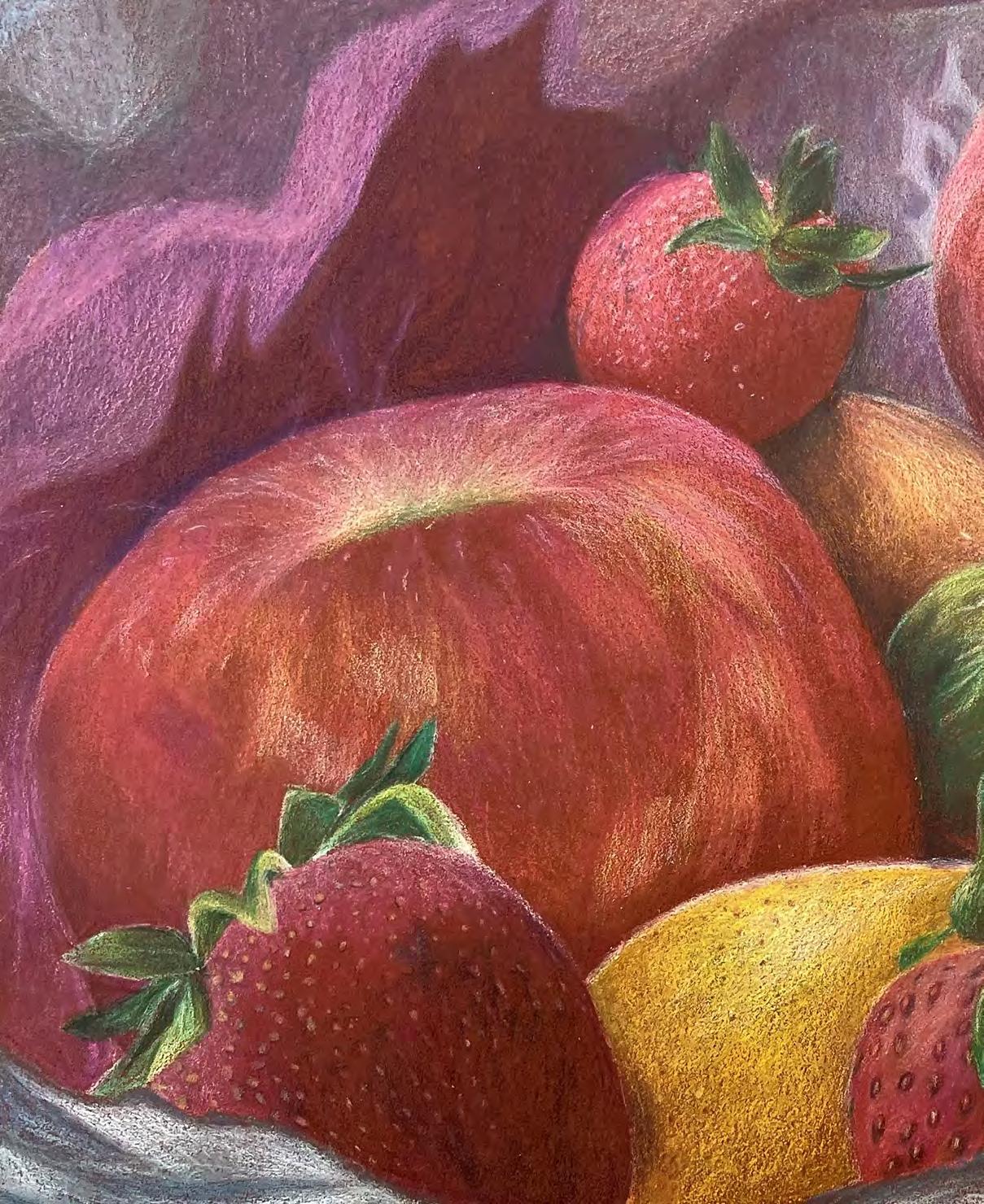

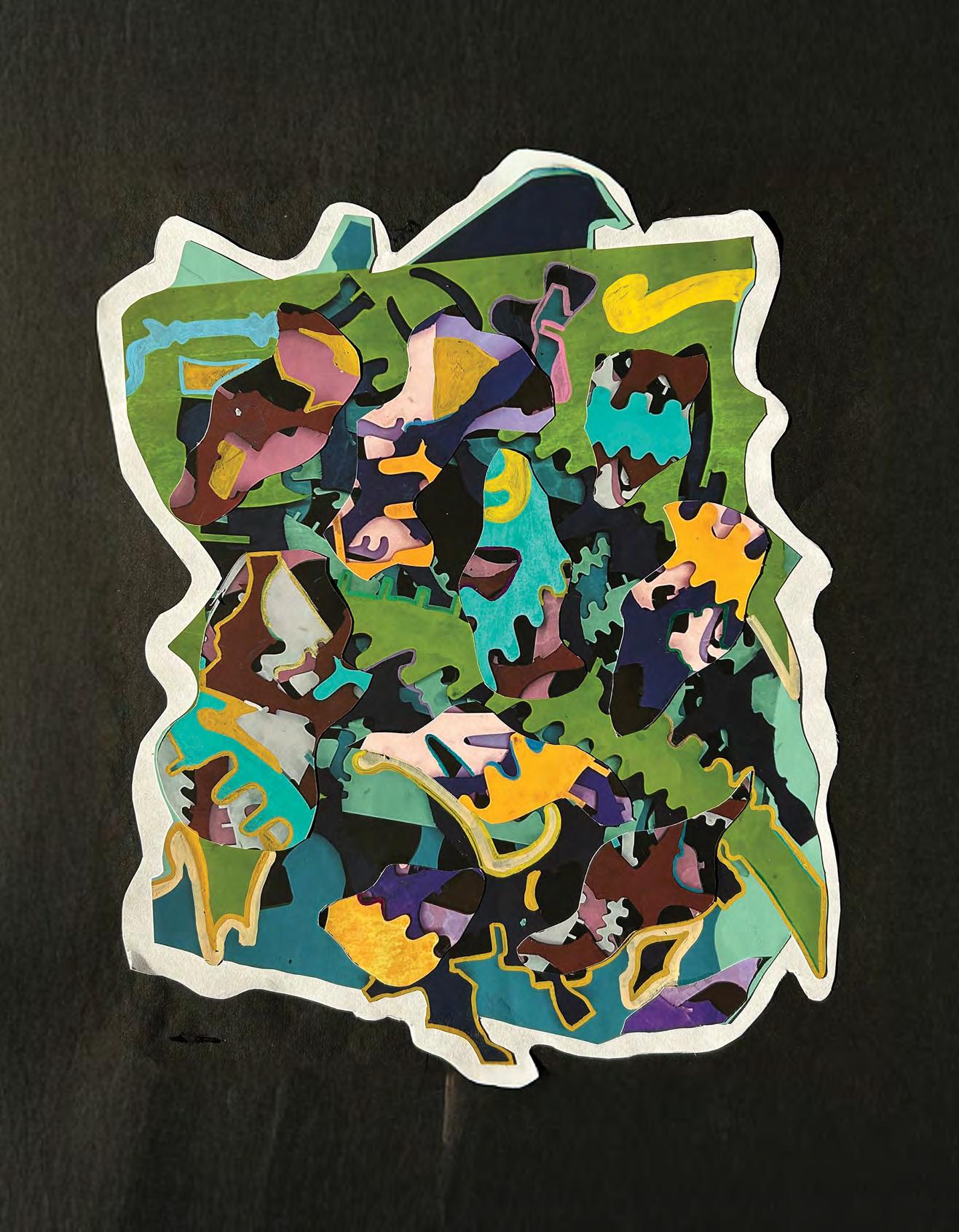
Particles dance back and forth, Violently rush away from each other
Desperately run to one another
Electric, mysterious apparitions they appear and disappear
In the crests, in the valleys.
Existing and non-existing upon planned paths sinusoidal, they are and are not simultaneously.
But variations of wave amplitude and period give us
Peridot and periwinkle, Ochre and vermillion, Major and minor, Piano and forte.
So slight is the difference of all things.
The world is full of angles and lines but is none of them.
We are curves
Circles unwind in sine-wave lines
Radii ratios rotate to sketch Us.
The universe ever expands
It’s why we think it born of fiery upheaval: It grows outward because it was once inward Accelerated forever forward by the dark energy Which comprises most of the cosmos Yet eludes our meager omniscience.
We know not if motion will last forever Or will it slow to stop, And the universe will rewind And recoil
Back from whence it came And big bangs can be undone and redone again an endless cycle
One hundred thousand earths one hundred million new-old planets matter reborn again and again
Life and death feed each other they need each other our sparking consciences are made of star-stuff and filled with vivacious, breathing existence rising, falling Inhaling, exhaling universe.
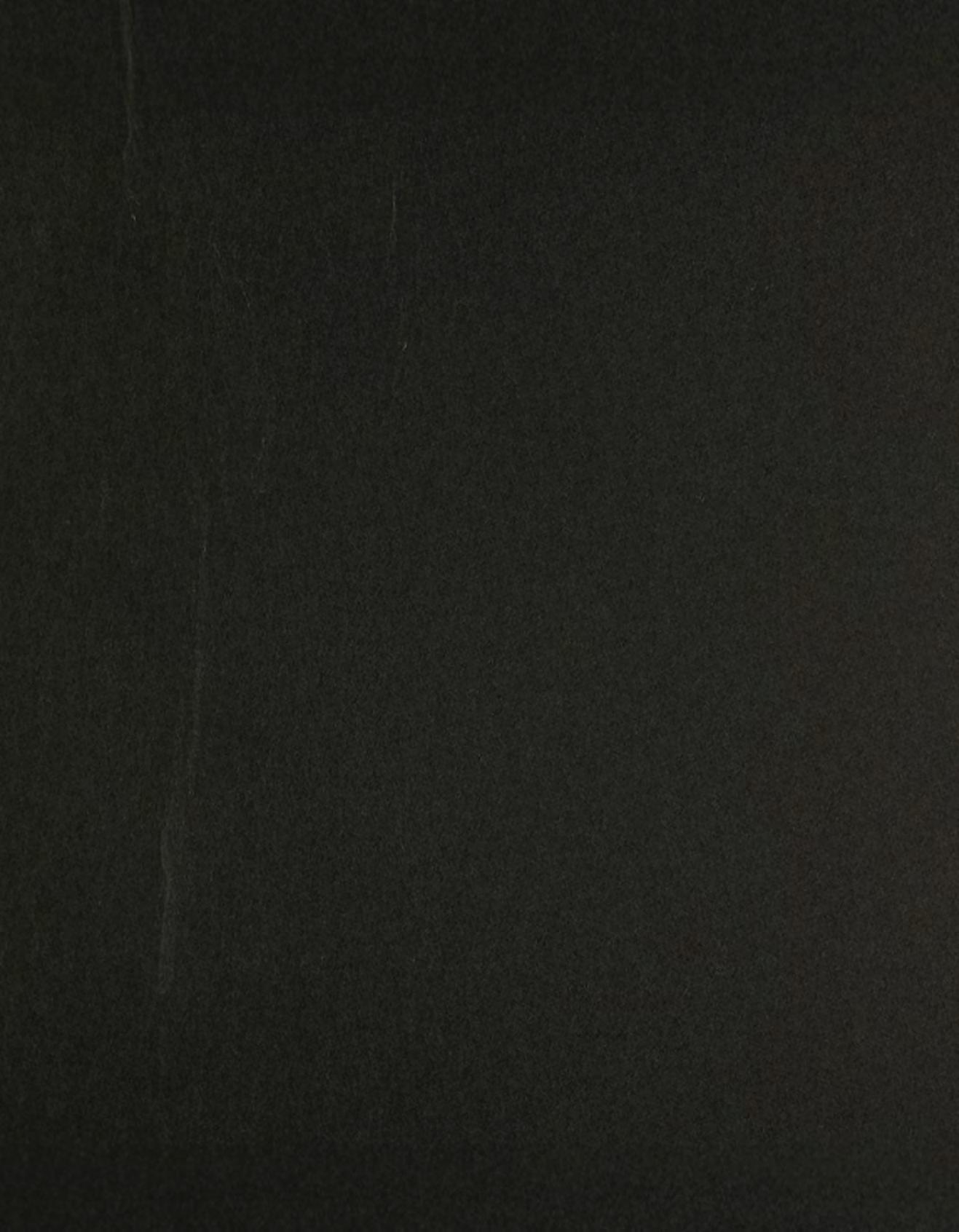
THE IS universe wa v y
Evelyn Haggstrom
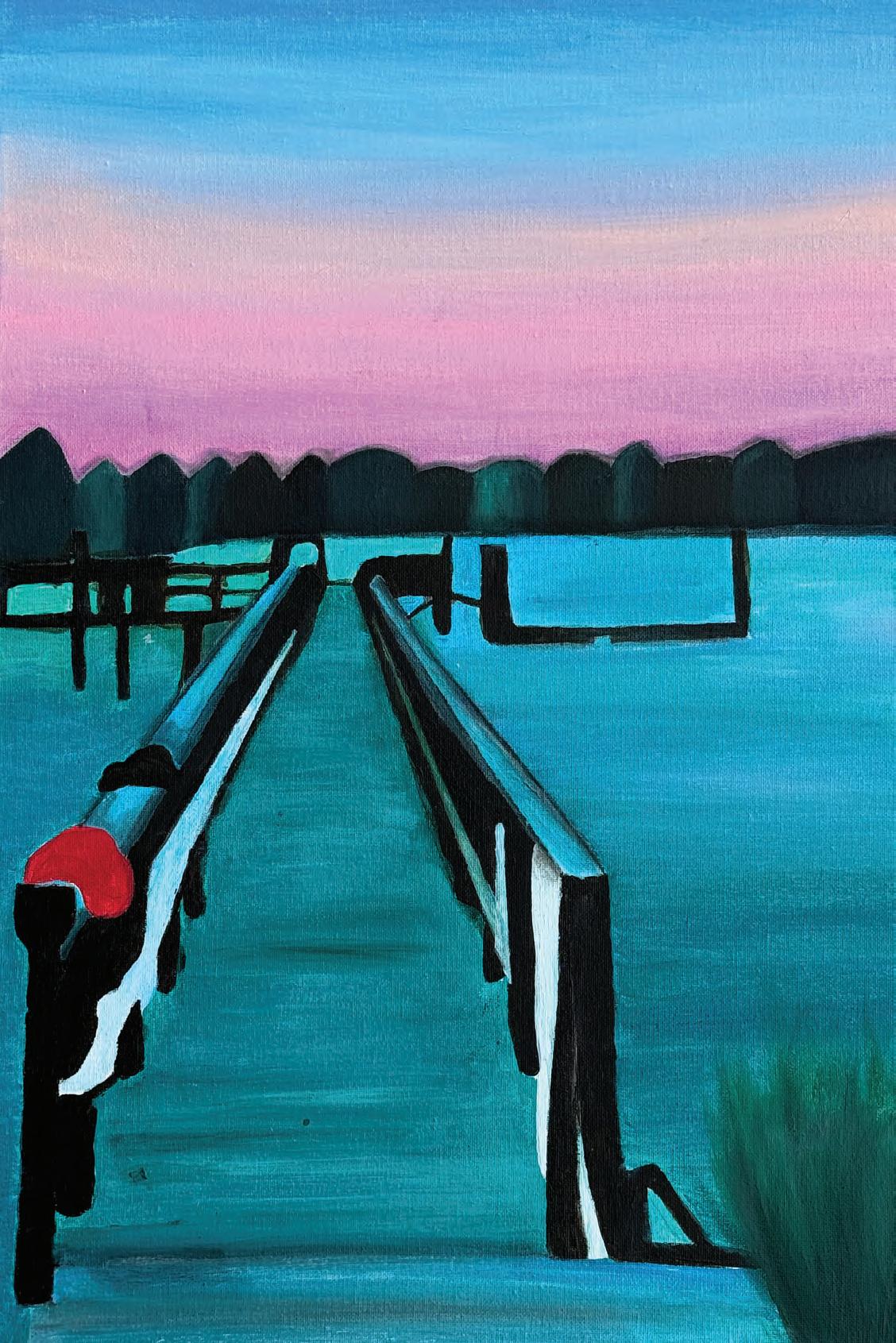


I hate watching the sunrise.
The stunning colors that bring forth a new day never bring me the same satisfaction as they did a few years ago. Standing outside, I stare up at the beauty until the soreness of my neck forces me to pry my eyes away from the glowing light. All the passion and bright light radiating from the sun as it peeks out behind the clouds makes me want to hide in a dark corner and cry. To be standing in the mix of it all by myself creates a sense of loneliness I had not known until now. The impact of the light reminds me you are gone, which is always hard.
I continuously long for the sunrise and to watch the swirling mix of colors bring joy and awe to many people’s faces. I ache for the sunrise, which brings your sweet color to the world for a second every day. The warmth from the sun brings me the closest thing I will get to a hug from you once more, which is all I truly want.
The sunrise reminds me of the dock at the lake, swinging on the porch with you. It was so beautiful I could not stop staring. You saw me squinting from the light, and so I wouldn’t hurt my eyes, you let me wear your sunglasses.
Your sunglasses now sit alone on my bedside table, hidden from the light they once protected me from.
In the dark, you cannot tell what is missing or what is gone, “ignorance is bliss,” they always say. While true, it is only dark for so long until someone turns on a light and a new day begins. The sunrise’s glorious light washes feelings of hurt for leaving without a last word and casts its light on the fact that another day will continue when you’re gone, and I’m still here. The glowing light brings me back to the hospital and the fluorescents of where the final moments of your life were.
those sandals no longer feel the heat of the sun on the sand. The sandals and I are now the only two that share the memory of the hot sand on our annual July night.
The calm yet organized chaos of the lights kept you on earth. Even though, to me, you weren’t there anymore. Pale lips proved it wasn’t you.
On your lips, there was always red lipstick. I always hated red lipstick, the way it used to stain my cheeks and leave a sticky residue. The bright red always reminded me of the creepy clowns from horror movies, which steered me away almost out of fear. Now, that’s one of the only things that brings back this vision of you to me. The vibrant red is something I can only compare to the magnificent red sky the morning before a storm.
Red was your staple color, but specifically for your lipstick, which was usually in your hand for a touch-up. If not in your palm, your lipstick was always nearby, like your presence. Even when not visible or here physically, I can always find you in the glorious sunrise, bringing your life to the world through the dances performed by the colors of the sky.
The breathing tube draped over the bottom row of teeth you were always so insecure about reminded me of a struggle you faced throughout life. You always spoke of your teeth showing your age.



red lipstick.”
You never judged the sunrise for being imperfect, for not being bright enough, or for not being the “right” color. Why criticize the smile that brought light and the hope of a new beginning to many people in dark times that they could previously only find in the sunrise?
Knowing that life was going in and out of you like the flashing red lights from the machine forced me to pull my eyes away. The machines seemed to have all the color and liveliness that you now lacked. You would have liked seeing the colors dance in the dark room; they almost reminded me of a light show in the sky during the Fourth of July.
Every year on the Fourth we went to the beach. The sand burning hot from the sun always made my feet hurt, but I would refuse to bring sandals. Most days, you gave me yours.
Now put away in a dark, cold drawer,
How interesting that the same light was visible when I came to the world you left. How strange that I still have to live with the same sun that brought you the sunrises you so intensely adored, and now they make me spiral into a depression.
The only thing I have left of you is the sunrises, the beautiful bright light the world gets the pleasure of watching every morning. The sunrises come to an end, as all things must. I only wish you came back to me every new day with your warm light that the sunrises share.
But the sunrise is selfish and only allows itself to return once a day. I hate remembering how much I miss you.
I hate watching the sunrise.
Sophia Smith to


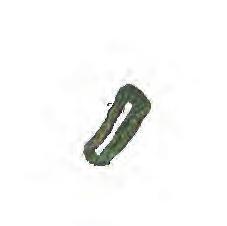

You were always out to get me. You puff out like a bush blooming from my scalp you create ringlets that I can’t brush out no matter how hard I try Why do you hate me? Why do you have to be the reason my 2nd grade nickname was Cindy Lou? Why can’t you calm down for crying out loud? I’ve given up. No cream straightening iron or blow out can save me from your wildness. So you win. I surrender. Be free, have your ringlets, see what I care. I always liked Cindy Lou anyway.

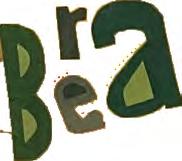

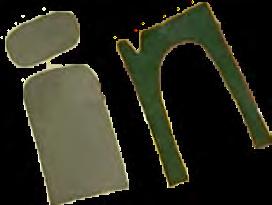
Nishanth Gaddam

People say the inside matters more than the outside. Clearly, they’ve never had acne.
When it arrived with a vengeance, nothing seemed to help. After cleansers, exfoliators, and retinol only made things worse, I was left staring at the mirror in pimply defeat. But instead of giving up, I became obsessed—with understanding what was happening beneath my skin and fixing it.
I dove into the world of Alpha Hydroxy Acids (AHAs), Beta Hydroxy Acids (BHAs), and ceramides, decoding how they worked to exfoliate, rebuild, and restore skin. I timed how long I should leave products in, adjusted how often I used each one, endured purging phases, and simplified my routine to maximize results.
Eventually, I pieced together, through scientific rigor and my crying wallet, a routine that worked.
As my skin started to change, I found joy in the small victories: finding the perfect balance in my routine, noticing fewer pimples, smoother texture, and finally seeing the glow I’d chased for months. Skincare became less about the end result and more about the process—a ritual of experimentation and discovery that brought a strange sense of calm, even on the toughest days.
It became my first experiment in trial and error, teaching me to approach challenges with curiosity and persistence. I have learned that joy comes not just from solving problems but from designing rigorous, creative solutions—allowing me to help friends with custom skincare routines and, crucially, giving my sister one more reason to be jealous!

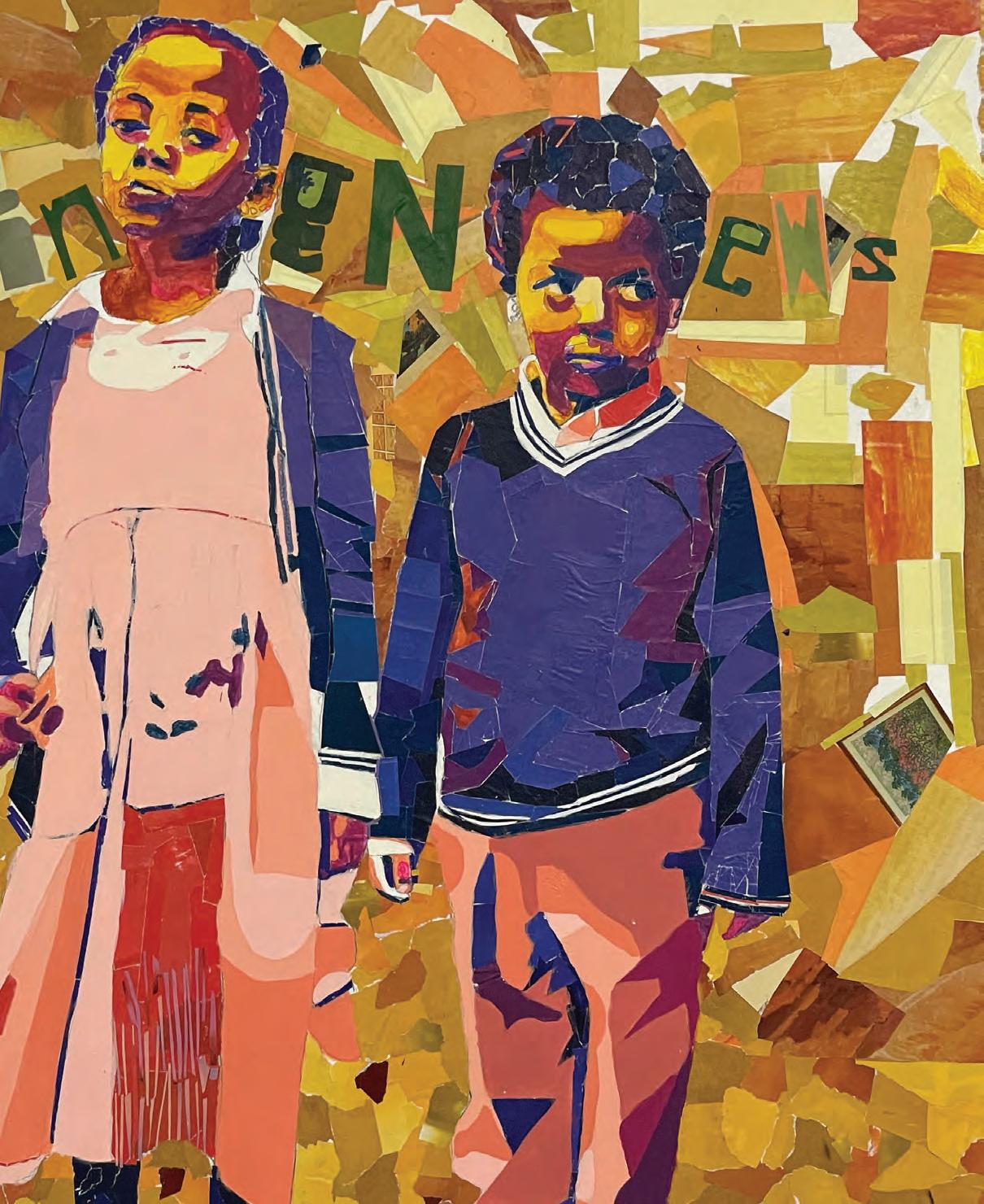
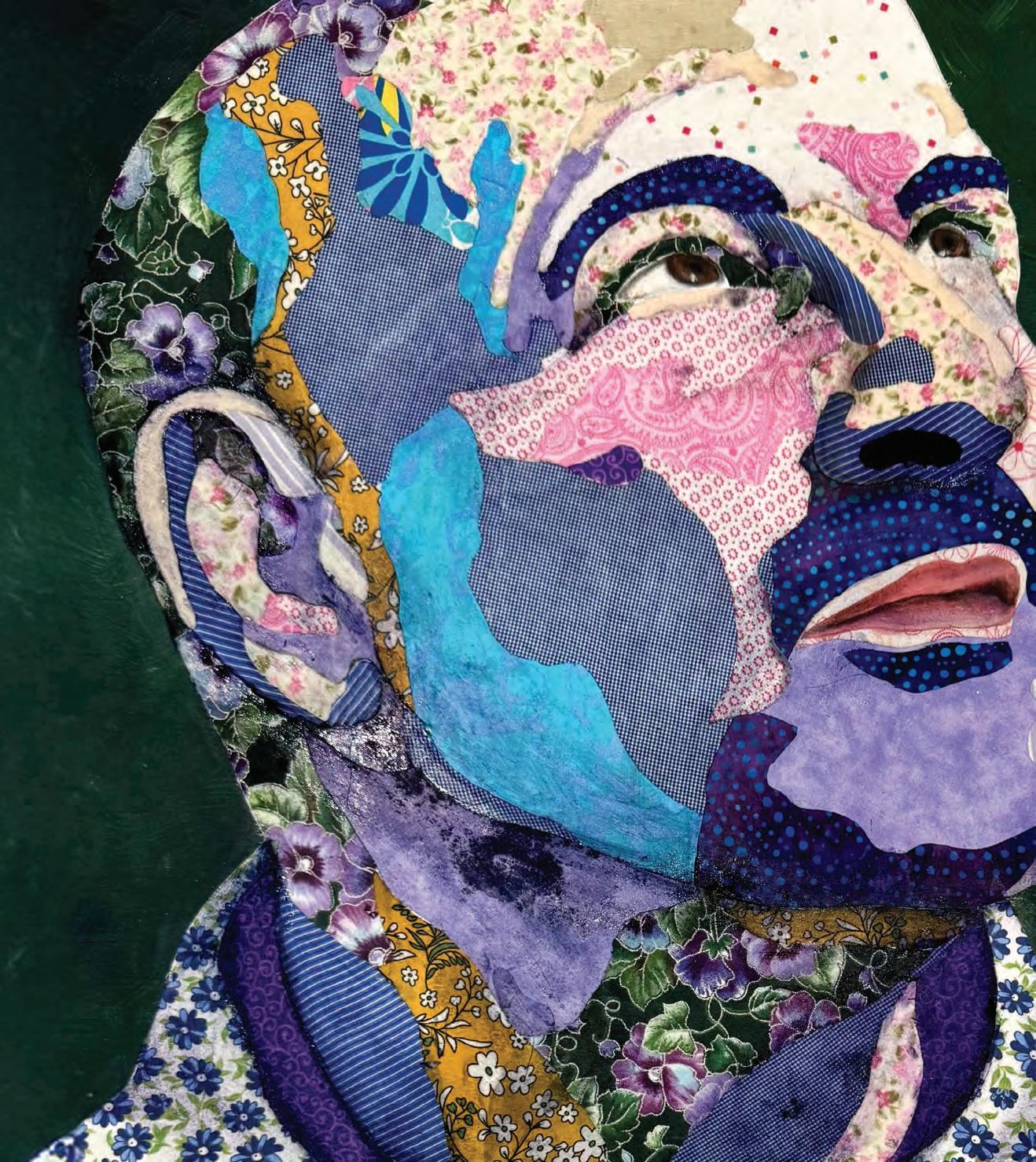
Samora Elam
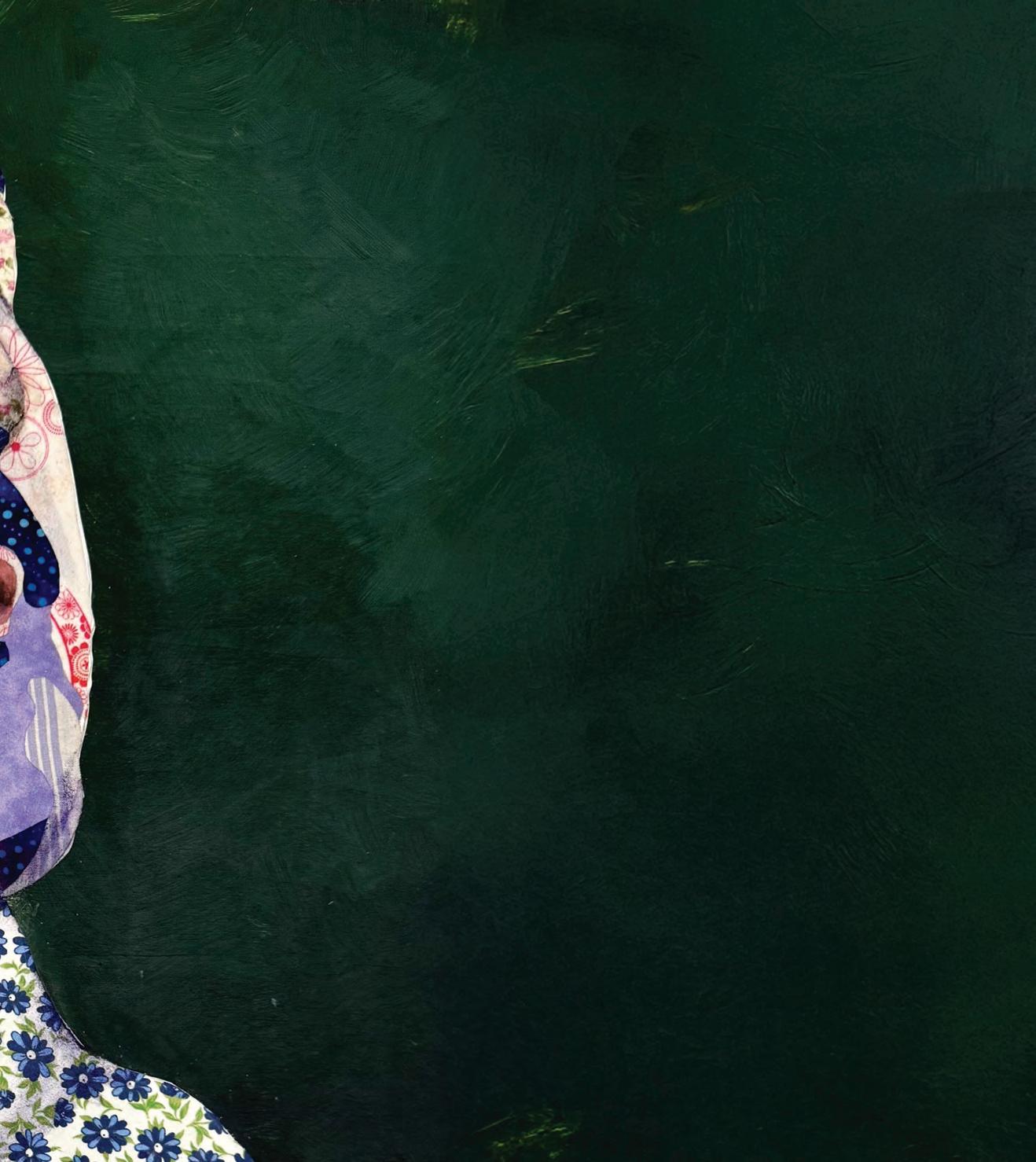
this is a confession in its most vulnerable state. this is a note to someone whose day-to-day tasks are orders given by the mind, yet constantly overlooked and unheeded by the world.
oh my eyes, how i lose sight of all of the liberties you grant. seemingly-transparent black dots lie camouflaged against your dark brown tint that enchants and seduces the world until their praises have reached the utmost degree.
do not let the world demean you simply because of your dirt-colored irises who are free to stare into the searing sun that shines anew, compared to their conniving columbia blue eyes that let us see their insecurities masked by disguises of innocence and adoration.
oh my eyes, you prove the world wrong when they say you can’t, your hazy vision pushing and pushing—until the cries that fall from my lips serve as a reminder that your pants of exhaustion eclipses your attempts to ignore our body’s pleas.
let us take a breath and try to look through— past the stress that make our knees below us buckle under the weight of the society’s coup, their unrealistic standards spreading like a disease, desires of perfection and infallibility poisoning an entire generation.
oh my eyes, how i hope you ascend to the heavens to meet the maker of the blue-eyed demise.
2,135 hours: that’s nearly 89 days of my life I’ve spent playing The Sims 4—my favorite video game. It’s a fact I carry with pride.
The first step in the game is creating a Simself in Create a Sim mode, where players select one aspiration and three traits they deem desirable. The traits I typically select have remained the same since I started playing at age seven. First, I always choose “Outgoing.” These Sims gain powerful moodlets from friendly socialization. Second, “Active.” These Sims tend to be Energized. Third, “Cheerful.” These Sims tend to be Happier than other Sims. After picking each trait, my Sim stares back at me, as a reflection of myself—cheerful, active, and outgoing.
Although my Sims share the same traits, their aspirations vary, yet another similarity to myself.
My “Master Maker” aspiration started in the third grade. This Sim wants to become an expert at Fabrication! Offline, I turned my garage into my lab and posted fliers around my house to hire helpers, a.k.a. my older sister, to retrieve materials for me (as an unpaid internship, of course). During countless hours of creation, I invented solutions to typical problems, like a dog feeder that let me feed my two dachshunds from the couch. My maker phase was so intense that my family never had extra boxes around.
My “Fabulously Wealthy” aspiration followed with the creation of my uber-successful slime business. This Sim wants to get rich and have a successful career! I transformed my lab into my slime kitchen and created a plethora of recipes. I even plastered custom logo stickers onto every slime I sold. I earned $600, essentially six figures to my eleven-year-old self.
My “World-Famous Celebrity” aspiration began after my




Jessie Adams
parents banned slime. This Sim wants to become illustriously famous! Using my well-earned slime profits, I bought editing software to enable the creation of my new YouTube channel. Each week, I would plan, film, and edit a new video to stay creative. Ironically, similar to my $600 from slime, I gained 600 subscribers!
While each aspiration fizzled out as I grew older, pieces of my Simself remained. My passion for innovation, “the hustle,” and seeking inspiration has driven every facet of my life as a busy and involved high schooler—one who can no longer spend many hours playing video games each week.
Those many hours have been replaced with new ways to maintain my passions. On Tuesdays, I lead my B’nai B’rith Youth Organization, BBYO, chapter programs at the Charlotte JCC as their N’siah (president), keeping my innovative side flourishing. Other days, I hustle to be the best at what I do. During my early years on the varsity cheerleading team, I dreamt of being captain. As a dedicated (and loud!) leader on the football field, I finally hold that honor. I also love brightening hungry customers’ days with a smile and a perfectly blended milkshake at my job. Finally, I inspire and teach others as a founder of the Jewish Culture Club at my school.
Throughout my many aspirations in life, I’m still just like my Simselves. Whatever the storylines of my life are, I hold steady with those same core traits: cheerful, active, and outgoing. 2,135 hours later, The Sims 4 remains an occasional hobby for me. In one game, I am a fisherman with seven children; in the next, I am a divorced astronaut. And although each Sim is unique, they are all coded with a smidge of my own traits and passions, a product of a girl with wonder and her first laptop.
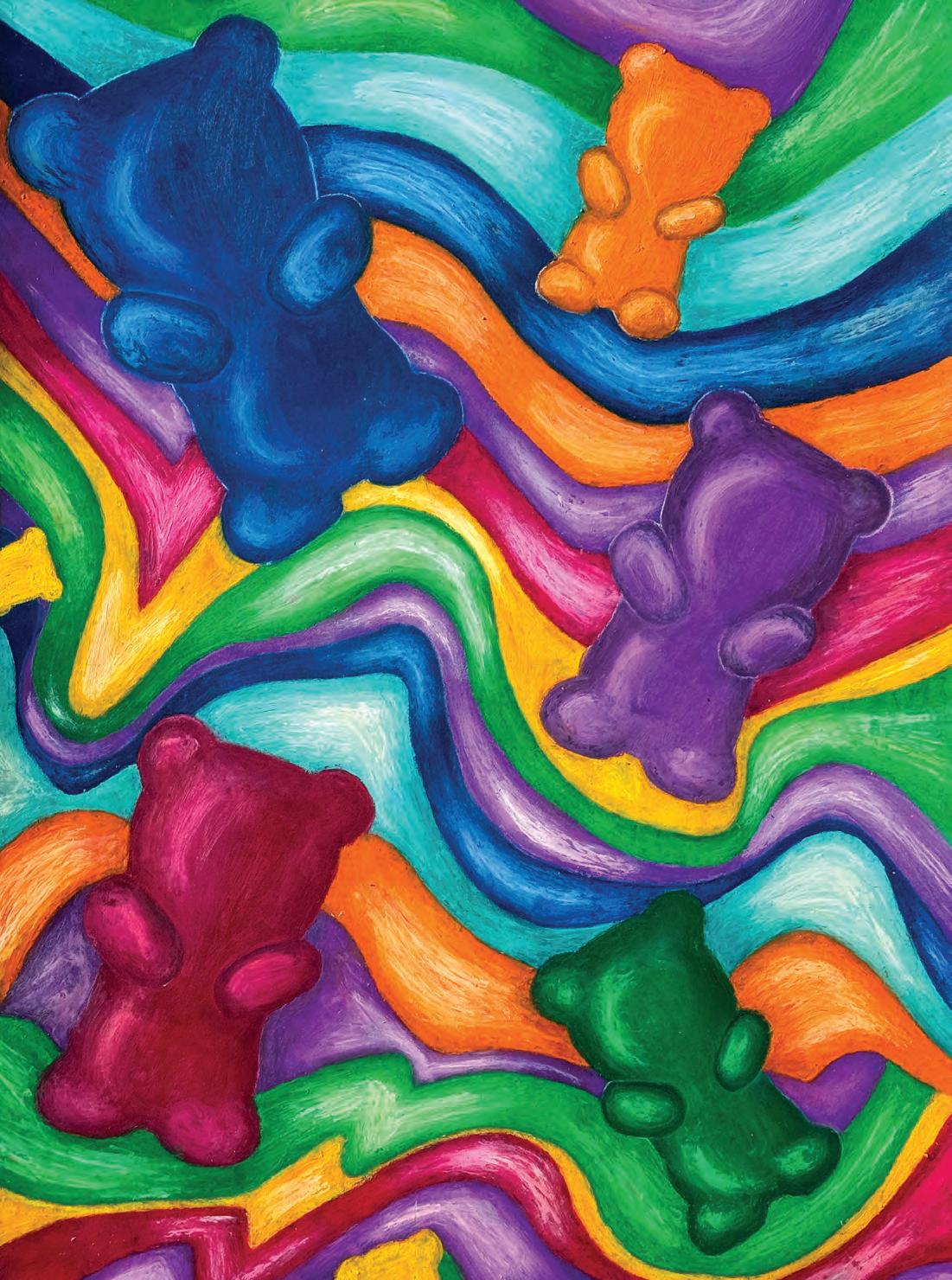



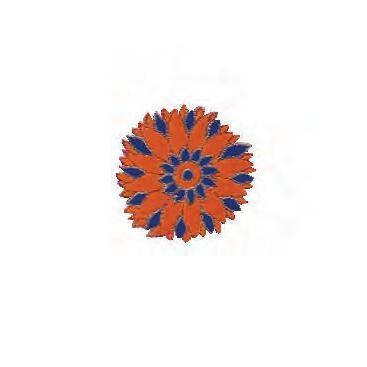
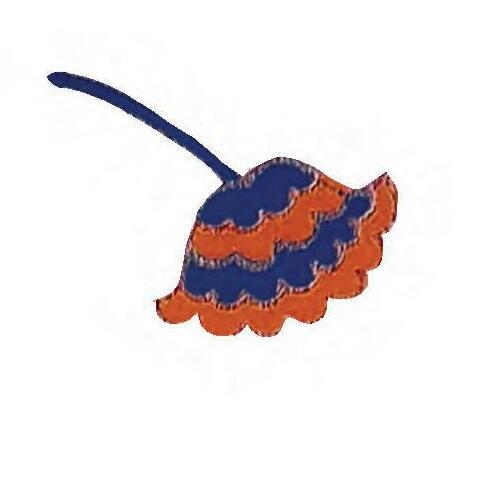
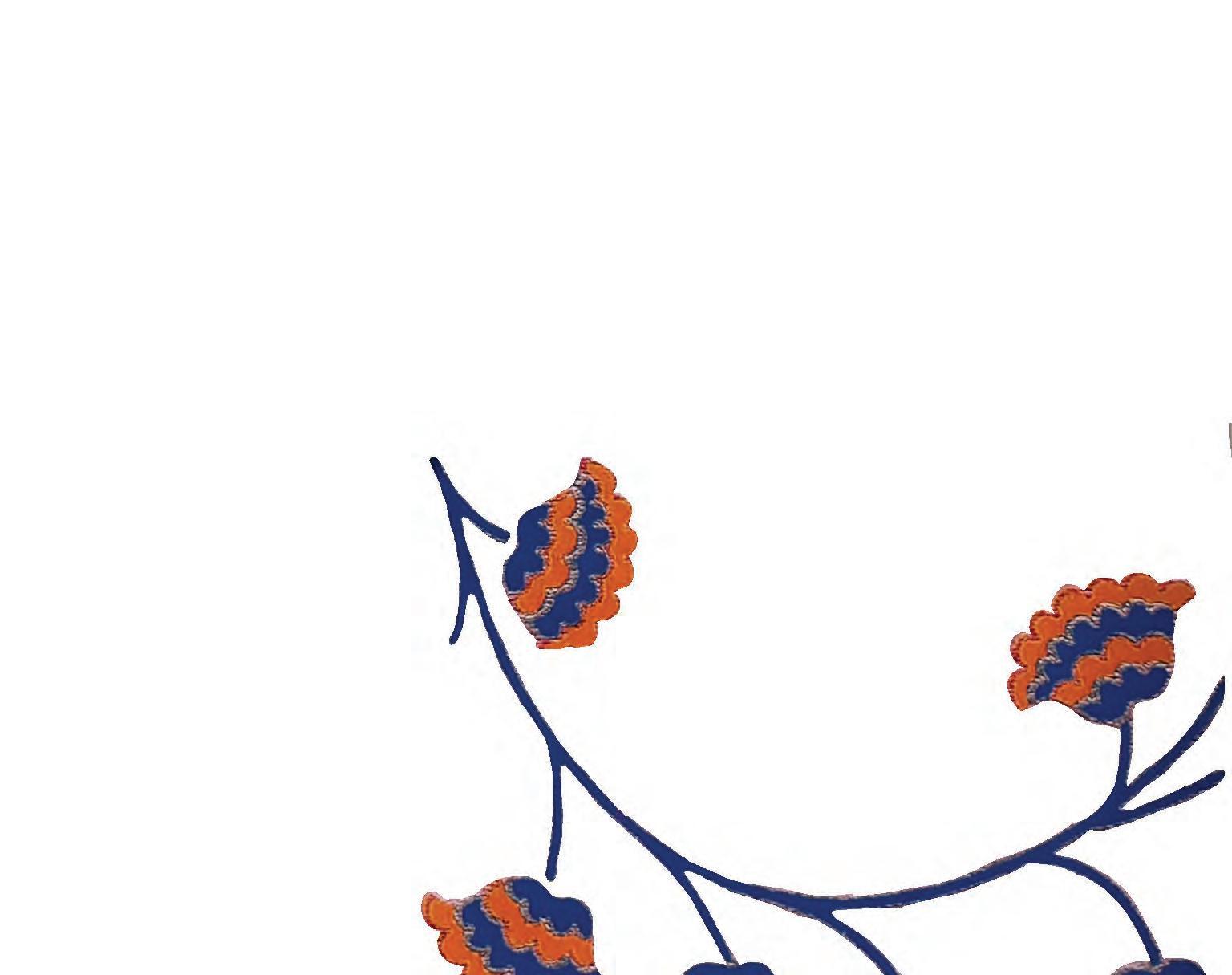
My mother and her siblings all dressed up for Easter Sunday

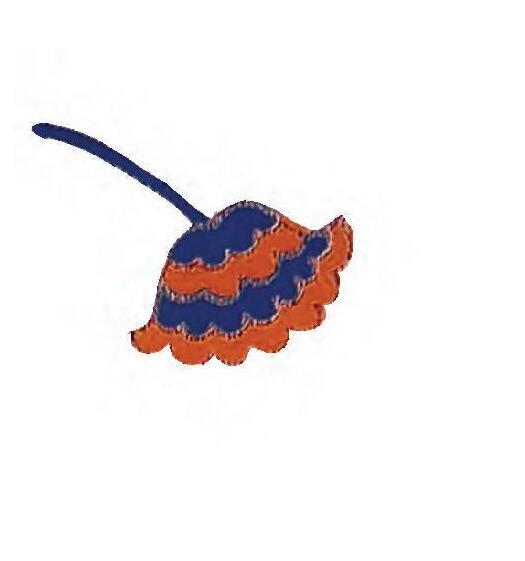
Elena Lapuente
Early morning, yet smiling as wide as the moon
Excited to pack into their Ford Galaxie anticipating the feel of the vinyl seats and chalky paint on the winding road to Easter Mass
The incense billowed thickly in between the pews into the crowded annex and the filled gravel lot
In his long corduroy pants
Mom’s little brother led the way to their usual pew
The kids swung their feet until it was time to go
Easter brunch, always at Nonni’s farmhouse
The grownups talked and laughed and talked some more
The children ran through blooming fields gathering clovers and fresh berries
Now, my mother, one of the adults observing the children reminiscing on her youth
Exhaling, she squints up at the sun
The same sun she and I look at today when we are truly at peace
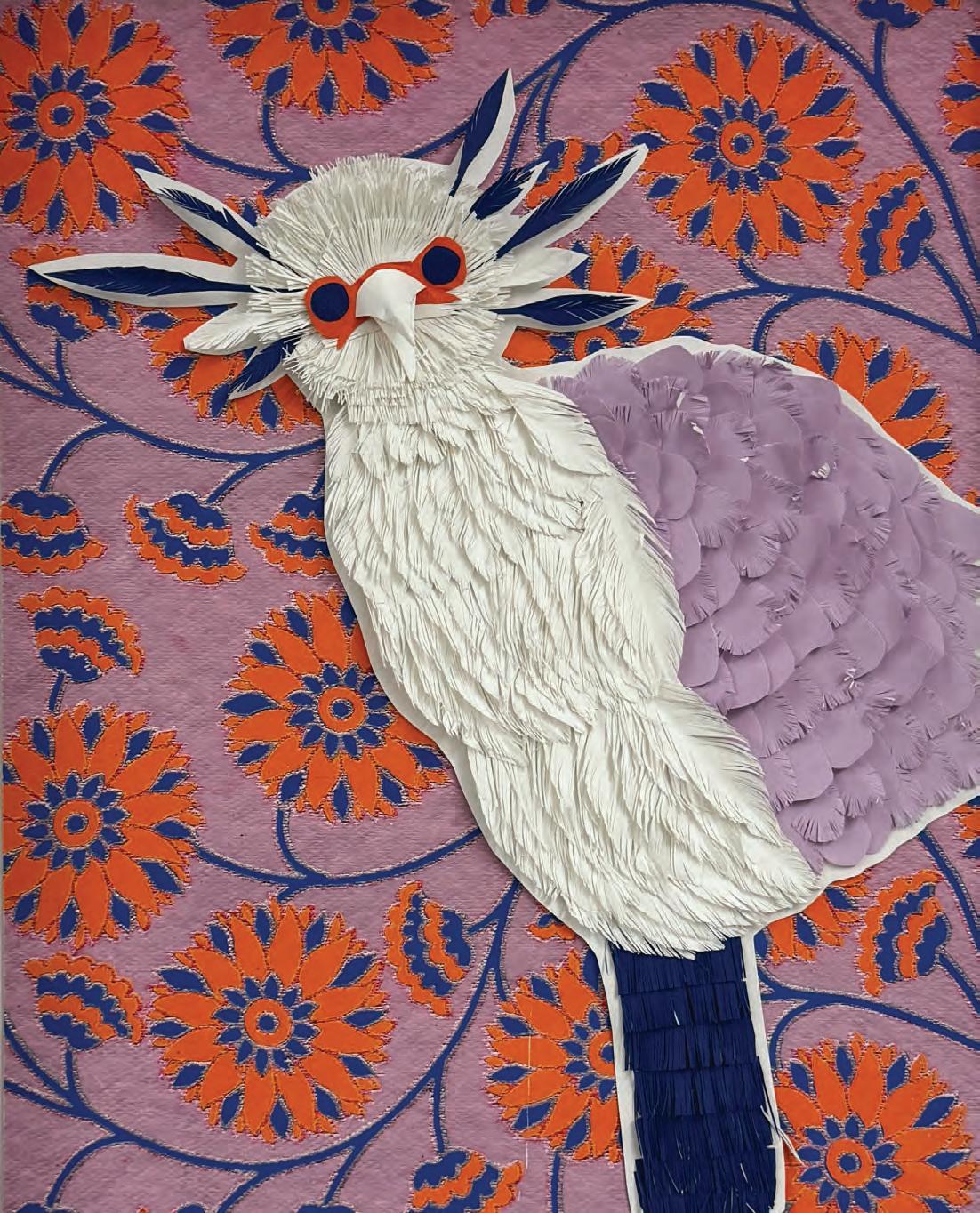
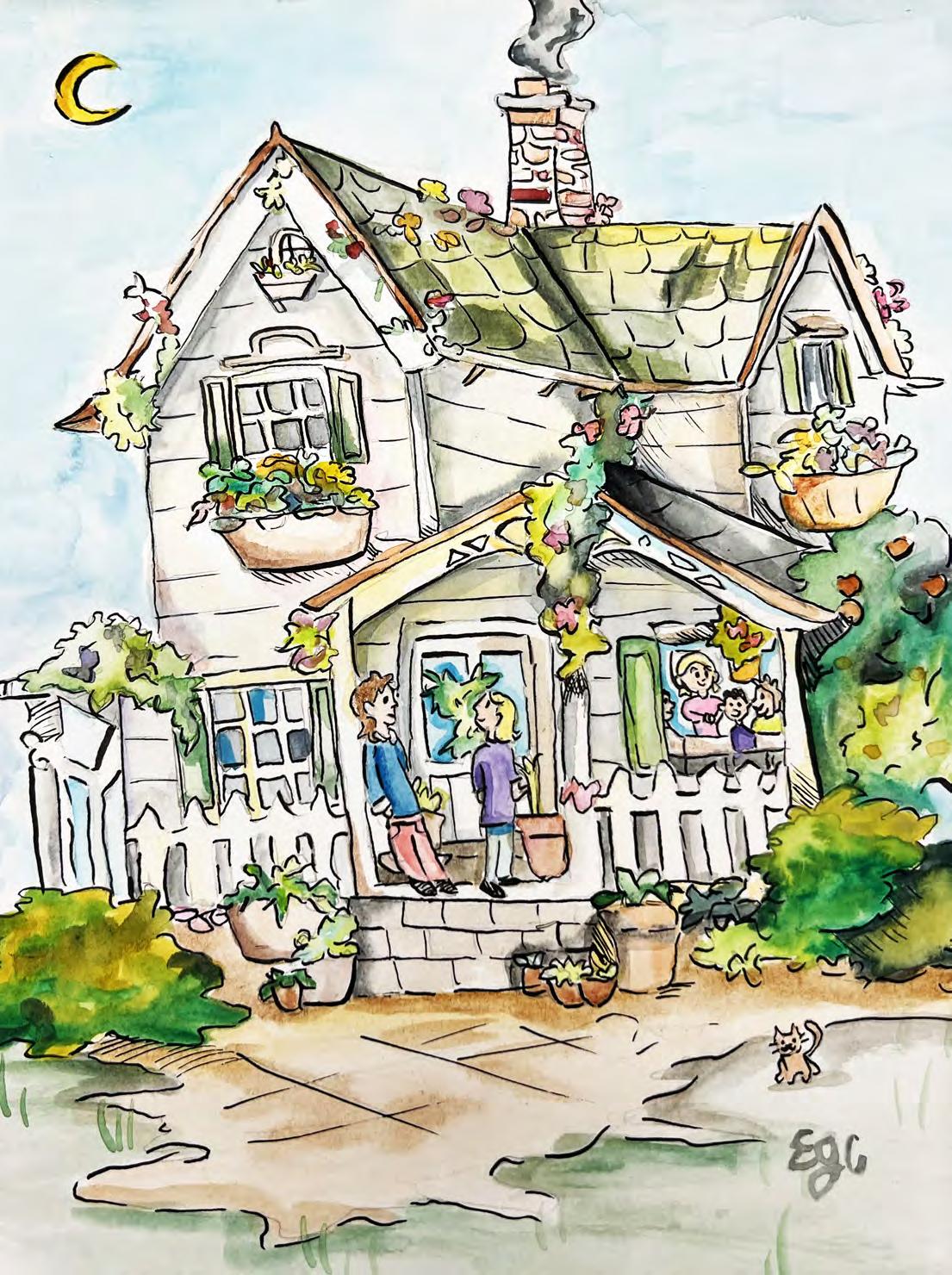
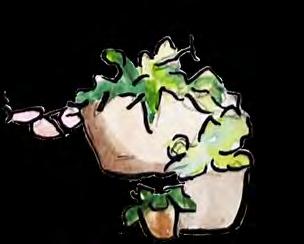
I am mint green, diving, spinning out of control through the pastel abyss, never stopping, never ceasing, never hitting the ground. To others, this color is calming, but, to me, it is my cage. I feel the cloying sickening “pretty” green color closing in around me, pushing against me from all sides. It takes the breath from my lungs and leaves me reeling, desperate to escape its disgustingly sweet aroma, which serves no other purpose than to cover up the scent of rot lingering beneath.
No one else notices the sinister undertone of the bright pastel facade. When I ask if anyone else smells something off, they tell me that I’m just overreacting. They don’t get it. They don’t see what I do. But after all, how could they? This green is my anxiety, it follows me wherever I go and bleeds its color into everything I do.
I am neon green, wild and messy, like paint thrown across a canvas. I am an out-of-focus snapshot of a single moment in time. Even at the end of time when everything else has stilled, I will continue to move.
I will not stop.
I cannot stop.
My brain tells me I must keep moving and so I must keep moving. From task to task from day to day it feels as though I jump through life, never staying in one place for too long.
I must keep moving. There is only so much time in a day and yet there is still so much left to do. There is never enough time to do the things I want to do. There is never enough time for much of anything at all.
I am dark green
This is my escape from the neons and the bright pastels of this world. A place where I am free from the claustrophobia and the never ending rush. Dark green has always meant home
for me.
Catherine Roberts
For many people dark green seems like a trap. It is the color that would appear in a forest during a horror movie, trailing its way through the crooked oaks and emanating off the gnarled roots.
I have never really understood this alternate view, because the dark green that I know means calm, safety, and a unique kind of warmth that would only ever be possible if a tree had the ability to wrap its wooden limbs around me in a comforting hug.
I am moss green, running through a forest and hiding behind the trees. I dance among them as the wind blows through my hair. I am at peace when I can do things like collect pretty looking rocks off the ground, or splash through a creek as I am exploring, the things that I know my childhood self would be jealous of. This color has always seemed childish in the best way possible.
I see it as a reflection of one of my core beliefs, that life does not stop yielding surprises or being fun just because myself and those around me are grown up (or at the very least, more grown up than we were when we were kids.)
Green as a whole is the color of nature, the color of life. When I was younger, I used to believe that nature had chosen me for some sort of special role, namely, a protector of nature.
In my naïveté, I thought that there must be no one out there in the world who loved nature quite as much as I did. Obviously, I was wrong, but apparently a situation in which I was proven to be so never came up.
Now that I’m older, I’ve realized something; that when someone has a strong connection to nature it is not a matter of nature choosing the person, but rather a matter of the person choosing nature.
Just like how I know now, that through my every green, the people who are my true friends will continue to choose me.
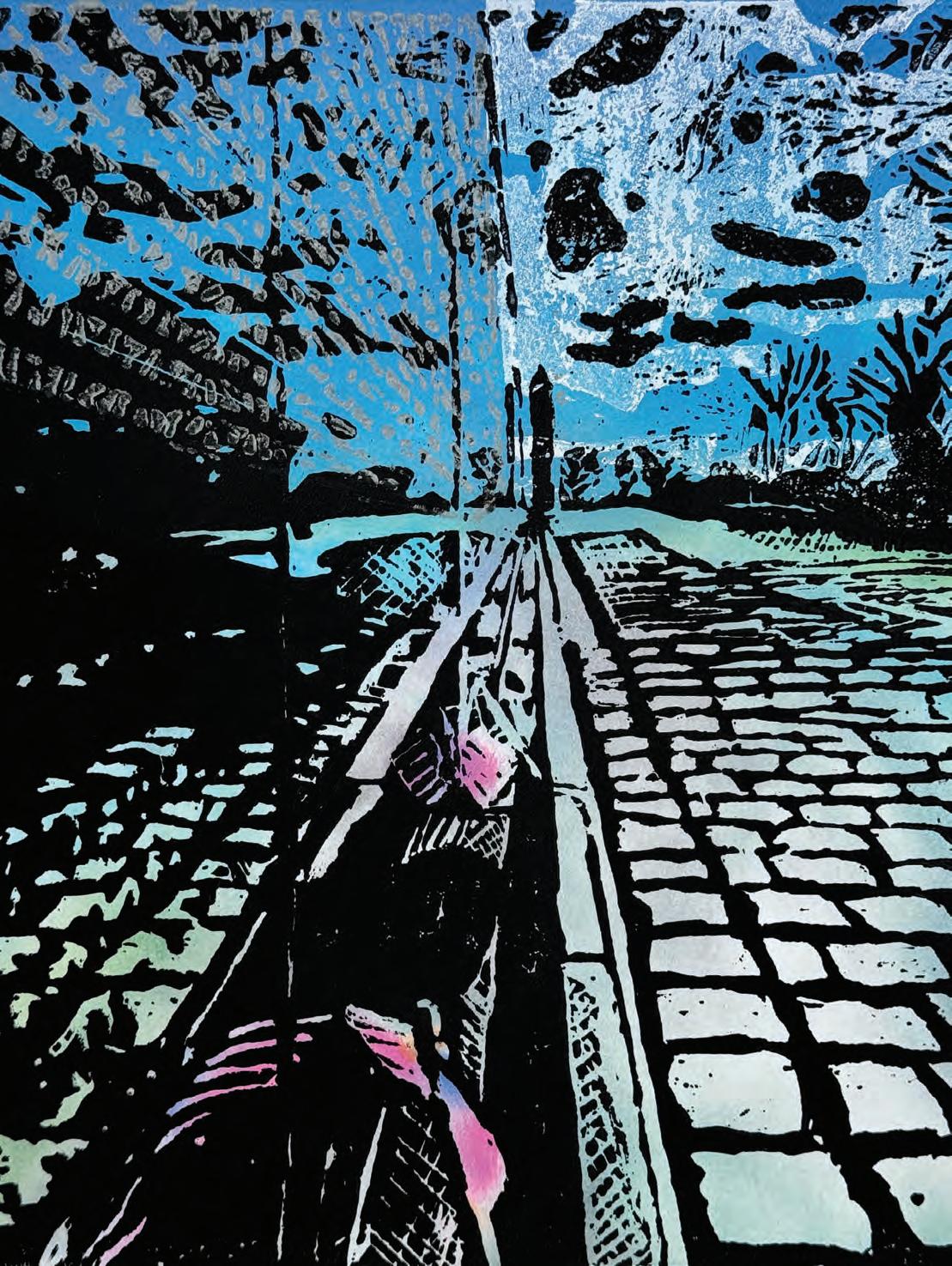

Lizisdying!
Pleasejoinusforacelebrationofdeathonthesecondof Septemberat12:00.
PSA:Don’tforgetyourbagstocollectanyofheritemsyou would like!
There is the perfectly crafted death ceremony invitation my parents came up with. It was sent to everyone who’s ever heard my name. Since I was young, I’ve been planning the ceremony. So has everyone. Every child longs for their day of death, hoping they’ll be one of the lucky few who die before adulthood. Obviously, my parents didn’t make the cut. They’ve been stuck at age forty-five for four thousand years.
It’s a weird thing. You either live for eternity or only seventeen years. Of course, if you can manage to change your character completely, you can achieve death, but no one has ever managed to do that. Apparently, that’s simply an ultimatum the government created to keep the externals “good.”
It seems I’m the only one who would prefer eternity. I’m simply not content with only seventeen years. I would bring it up with my mom, but I know she’ll just repeat, “You’ve been destined to die on September the third ever since you passed your kindness test in third grade.” I remember the day when I came home from third grade with my death certificate. My parents were so happy. I, an eight-year-old at the time, had attained the overall “goodness”—a standard determined by the government— that they had been striving to reach ever since they failed that same test too many years ago.
The guests are arriving for the ceremony. It’s becoming so real. I can feel the impending death knocking at the doors to my heart, knowing I have no choice but to let it in when the clock strikes midnight.
I greet my family, friends, and others as they enter my parents’ home. It’s not my house anymore. They’ve already
redecorated my room in preparation for their new daughter. I can smell the pungent, wet painted walls from downstairs. The ordor seeps into my mind and reminds me why all these people gather with warm smiles at my parents’ home.
As I battle restlessly against my impending thoughts of death, I glance towards the clock and notice it is already eleven. The guests are ecstatically awaiting the famous countdown. The endless chatter flooding my ears overstimulates me. I have to get away for a moment.
I slip through an upstairs window, the one I used countless times to escape onto the roof with my thoughts. My mom always scolded me, but it was my sole act of rebellion, something I would never give up. Similar to all the other times, I sit, legs crossed, on the cold shingles, staring into the dark night. As I imagine myself becoming just another of the millions of forgotten and lifeless stars in the vast dark night, I make a vow to myself not to die. I glance at the clock. 11:48. I better return to the party just in time for the ten minute countdown to begin.
Climbing down from the roof, as I always did, a thought is injected into my brain. It’s time. In an instant, I dash spontaneously away from the party and towards the nearest gas station. In my innocence, I would typically grab a famous 7/11 Slushie, but today, I will do nothing of the sort.
I step into the station, feeling zero hesitation about what is coming next.
“Where can I find all possible contraband that could help me break the law and ruin my ‘goodness’?”
The clerk with the face of a forty-five-year-old and the soul of an eternal glances at me with confusion.
“I promise. You don’t know what you’re asking for,” he warns. “You don’t want to end up like me.”
“Please,” I beg.
He points me to the back room. 11:57. Time to make those three minutes an eternity. Happy September the third.

Hannah Hurden




I’m an innocent 5 ‘3 girl, but people say I have “serial killer tendencies.” I didn’t know listening to true-crime podcasts to fall asleep was so weird—in my mind, it’s perfectly rational. First off, I can’t fall asleep in silence, and second, I like true crime podcasts—see, it makes sense.
I do a lot of things that other people find strange but I’ve never thought to question. My English teacher laughed and said it was sad that my favorite dessert is yogurt with chocolate chips (I did grow up with an “almond mom” but seriously, it’s so good) and I hate drinking regular water, because sparkling water is far superior, and yes, my favorite gift for my eleventh birthday was a SodaStream.
There are several things that I wish I was but am not. I love to sing, but anyone who tells me “you can’t be that bad” immediately takes back their statement when they hear me. I turn on the shower, open Spotify, and the concert begins. Dove Cameron’s voice blasts through my speaker and “If Only” from “Descendents” fills the room. I screech the high notes at the top of my lungs, my shampoo bottle turns into a microphone. My mom yells through the door, “Turn that off! You sound like a dying cat!” I also love to paint, so for my birthday, my boyfriend took me out to an art studio where we both painted a canvas of two people picnicking at sunset.
Unfortunately, I wasn’t blessed with the art gene, so the people looked like Michelin men, and my parents were horrified when they saw our masterpiece. After that, we decided we should stick to paint by numbers.
I’m not trying to seem like I’m “not like other girls.” My favorite show is “Grey’s Anatomy,” I grew up doing dance, gymnastics, and now I’m captain of my school’s cheerleading team; trust me, it’s not like it is in the movies, because in the movies, no one tears their labrum on a stupid front flip they mastered when they were ten. That injury brought me back to reality and reminded me of all the things in life I’m unable
to control. Despite thinking I could always perfectly execute certain things, my mentality shifted and I began to accept my faults.
I love so many things. Some are simple, like summer, fruit, and long walks. I could talk about walking forever, and anyone who disagrees hasn’t been on the right kind of walk, which requires a cute outfit, ice water with Mio lemonade flavored water enhancer, and the “Call Her Daddy” podcast.
But also I love things that others don’t understand. People think it’s odd that I voluntarily spend five hours on Tuesday nights being a juror for Teen Court, but those nights are some of my favorite moments of the week. I’ve gained a more nuanced understanding of the legal system and come face-to-face with the negative realities of kids within my community. I love meeting people and understanding their backgrounds and visualizing situations I have never encountered. But most of all, I love the opportunity to connect with the offenders and help them improve their lives and guide them to success instead of discouraging and dehumanizing them.


There are several things that I wish I was but am not.


My life is filled with contradictions. I love traveling but hate being away from home. I’m not afraid to ask personal questions, but I’m reluctant to open up to others.
I’m the first to judge myself, but I never make the mistake of judging others. People say I’m introverted, but I won’t hesitate to make conversation with a stranger in an effort to brighten their day. I’ve never been food-insecure, but I’ve spent countless hours preparing and delivering food to local communities, bonding with families I never would have met otherwise.
I don’t know what I ate for breakfast this morning, but I do know I’m going to change the world.
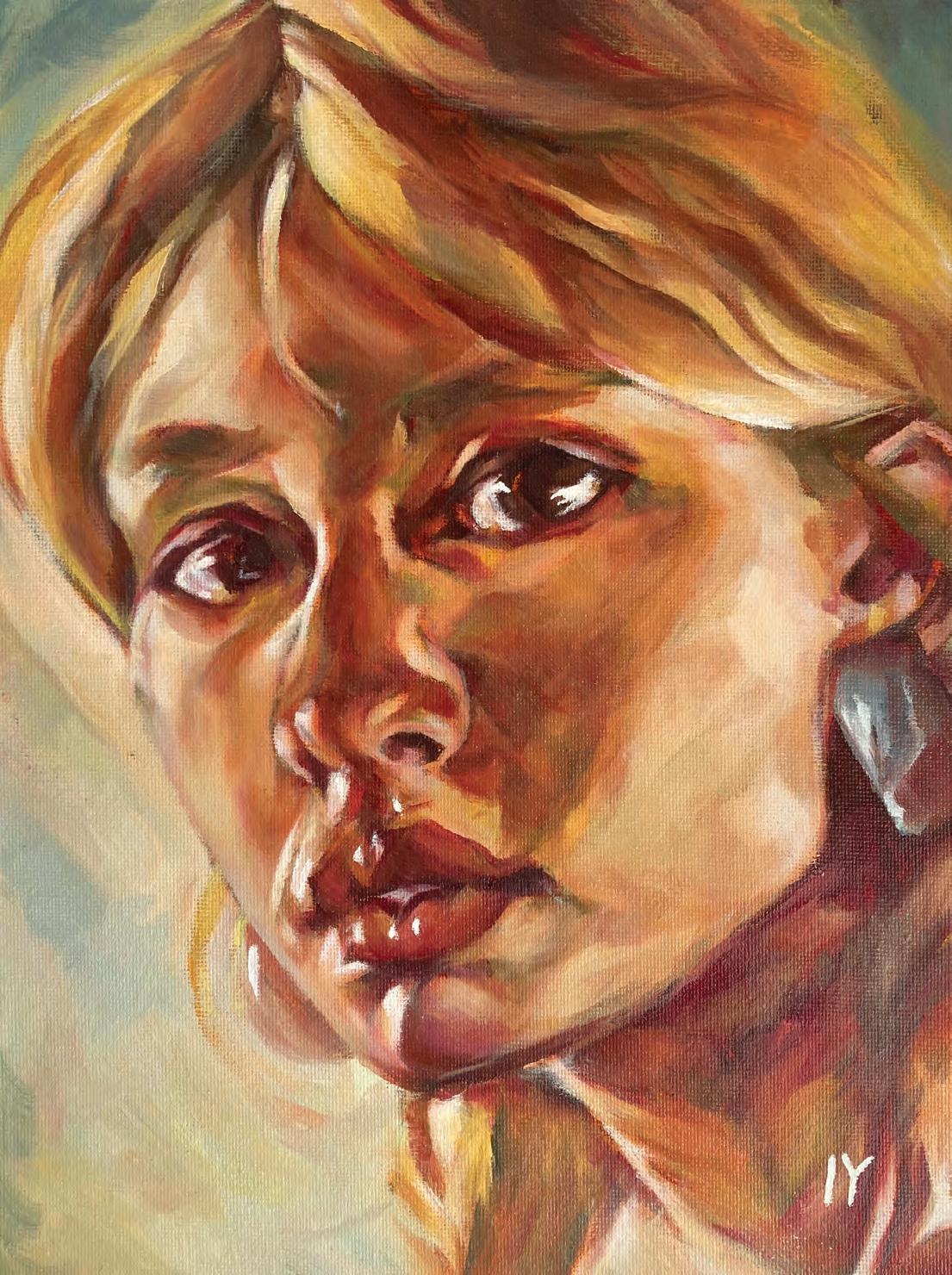

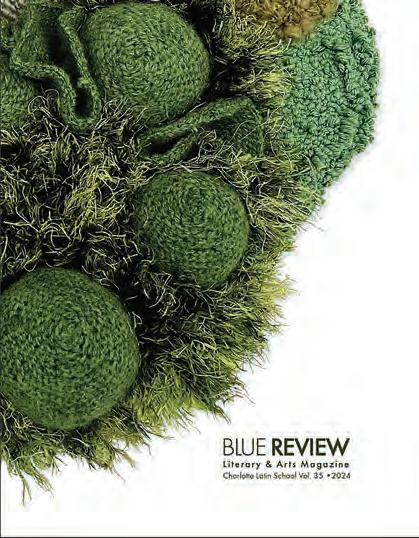
OVERALL AWARDS
Columbia Scholastic Press
Association (CSPA)
Gold Crown Award
NCTE REALM
First Class
North Carolina Scholastic
Media Association (NCSMA)
Tar Heel
All North Carolina
INDIVIDUAL AWARDS
North Carolina Scholastic Media Association (NCSMA)
SECTION AWARDS
1st Place
Cover Design
1st Place
Theme Development
1st Place
Art
2nd Place
Fiction
2nd Place
Nonfiction
2nd Place Layout
3rd Place
Poetry
3rd Place Photography
INDIVIDUAL AWARDS
Feature
1st Place | Athena Woodward
Nonfiction Layout
1st Place | Samora Elam
Fiction Layout
1st Place | Jolin Cheng
HM | Jackie Rao
Individual Fiction
3rd Place | Isabel Yang
Coumbia Scholastic Press Association (CSPA)
GOLD CIRCLE AWARDS
Table of Contents Page
1st Place | Blue Review Staff
Portfolio Illustration
3rd Place | Moné Cary
Design of a Single Spread
HM | Bonner Kelly
Individual Photograph
1st Place | Jackie Rao
2nd Place | Evan Li
Poetry
1st Place | Athena Woodward
HM | Gabriel Carpenter
Individual Art
2nd Place | Isabel Yang
3rd Place | Kathryn Wu
HM | Madison Nabors
3rd Place | Hannah Hurden
Design Portfolio
2nd Place | Samora Elam
Design Portfolio
3rd Place | Hannah Hurden

2024
SCHOLASTIC
Scholastic Gold Keys
Connor Cruz | Personal Essay & Memoir | “Death: The Driver of Deliberate Life”
Aaron Dunnigan | Critical Essay | “Viewing Racism in Television Over the Years”
Elena Lapuente | Poetry | “Love Letter to Streetlights”
Tyler McAndrews | Critical Essay | “The Awakening: Women Are Birds”
*Athena Woodward | Poetry | “micah 1:8”
Lynn Zhao | Critical Essay | “The Art of Dying: Plath and Woolf’s Lives and Writing”
Scholastic Silver Keys
Lewawit Alemu | Critical Essay | “Breaking Out of Chains: Weir’s Transcendentalism through Neil and Todd’s Carpe Diem”
Abbie Burns | Critical Essay | “Tree Formation and the Glowing Bay: Poe’s and Cole’s Romantic Visions”
Ramona Cigler | Poetry | “An Ode to Guava”
Max Colaco | Poetry | “When I Saw the Stars with Whitman”
Connor Cruz | Critical Essay | “The Quest for Statehood: Allowing Puerto Rico to Stand Shoulder-to-Shoulder with the 50 United States”
Benjamin Goldman | Personal Essay & Memoir | “Finding Simplification in the Modern Age”
Syan Gulati | Critical Essay | “A Decayed Abbey of the Environmental Movement: Coleridge and Dante’s Symbol of the Temple of Nature and its Relevance”
Sia Gullapalli | Poetry | “No tears line my face”
Sia Gullapalli | Poetry | “Poetry”
Shivani Kaw | Personal Essay & Memoir | “Gifted”
Kenny Ogbata | Poetry | “Welcome to Lagos, Nigeria”
*Margaret Piasecki | Flash Fiction | “September the Third”
*Jackie Rao. Poetry | “all i have are the echoes in my sleep”
Athena Woodward | Poetry. “November”
Athena Woodward | Flash Fiction | “The Garden Club”
Kathryn Wu | Critical Essay | “The Tragic Mother: Cathartic Symbols in The American Embassy”
Angelina Yang | Critical Essay | “Awakening Our Genius: A Societal Critique on Social Media”
*Isabel Yang | Poetry | “Where Sky Meets Stone”
Claire Zhang | Poetry | “Sibling Love”
Lynn Zhao | Poetry | “19”
Lynn Zhao | Poetry | “Where I’m From: My Version”
SPECIAL AWARDS
American Visions Award
*Lewawit Alemu | Mixed Media | Breaking News!
Adams Outdoor Advertising Billboard Awards
*Lewawit Alemu | Mixed Media | Breaking News!
*Sophia Oh | Drawing & Illustration | Dianthus
*Peyton Samii | Mixed Media | Chromatic Soul: The Many Threads of My Father’s Spirit
National Gold Medals
*Lewawit Alemu | Mixed Media | Breaking News!
Theo Fletcher | Rainy Days | Mixed Media
Best in Grade
Theo Fletcher | Rainy Days | Mixed Media
Scholastic Gold Keys
*Lewawit Alemu | Mixed Media | Breaking News!
Alexandra Bean | Sculpture | Arachne
Theo Fletcher | Mixed Media | Rainy Days
Sadie Griffin | Painting | Spanish Mosaic
Amelia Haggstrom | Comic Art | All of the Lonely People
*Evelyn Haggstrom | Photography | Signal
Sophia Oh | Design | Chocoloate Suite
*Sophia Oh | Drawing & Illustration | Dianthus
*Sophia Oh | Drawing & Illustration | Leif
*Leslie Osorio | Photography | Las Oraciones
*Jackie Rao | Drawing & Illustration | Gooses
*Kathryn Wu | Drawing & Illustration | Spoleto
*Peyton Samii | Mixed Media | Chromatic Soul: The Many Threads of My Father’s Spirit
Isabel Yang | Drawing & Illustration | Daughter of Eve
Isabel Yang | Drawing & Illustration | Slurp
Scholastic Silver Keys
*Jack Benonis | Printmaking | Reflected Memories
Angel Fang | Photography | Powerful Chinese Workers
Natlalia Gomez | Photography | Streets of Cartegena
Amelia Haggstrom | Comic Art | I Am the Animator
Evelyn Haggstrom | Photography | Filigree
*Jack Hall | Mixed Media | Turtle Tales
Ella Hennessy | Photography | Rain
*Cordelia Kim | Mixed Media | Secretary Bird
Madison Nabors | Senior Portfolio | All of Us
Sophia Oh | Drawing & Illustration | Nabi
Leslie Osorio | Photography | Las Ovejas
Jackie Rao | Drawing & Illustration | Ice Scream
Isabel Yang | Painting | Toothy
*Featured in this edition

The body text is Minion Pro. Headline fonts include Cherry Blossom and Function Pro. We explain the theme in the editors’ letter. 350 copies are printed and distributed free of charge to the school community. The “Blue Review” staff has access to 12 iMac Mini desktop computers and four MacBook pro laptops. We subscribe to Adobe’s Creative Cloud 2024 and used InDesign and Adobe Photoshop to create the book.
We are grateful for the school’s support in covering printing and other expenses associated with “Blue Review.” Walsworth Publishing in Marceline, MO printed our book. The account was serviced by sales representative Carolyn Henderson and service adviser Cheryl Ball. We used 100# cover stock for the cover and 80# text stock for the inside pages. Charlotte Latin School is a member of the following professional organizations: North Carolina Scholastic Media Association (NCSMA), National Council of Teachers of English (NCTE) and the Columbia Scholastic Press Association (CSPA).
in and dedication to the “Blue Review”; staffers must attend regularly scheduled meetings and a required editing session, and they assist in hosting the launch party when the magazine is presented to the school community.
All student editors are appointed by the faculty adviser. The lead layout, copy, and art editors are students who are current staff members. Lead layout editors are responsible for every aspect of the publication, including conducting staff meetings and editing session, selecting the theme, delegating the tasks to the associate editors, etc. “Blue Review” is an extracurricular activity; every part of its construction is completed after school hours.
The lead and associate layout editors work together to design every element for each spread; therefore, we do not include credits for layout in our pages since the work is completely collaborative.
Our mission is to promote the creative arts within the Charlotte Latin community and to encourage Upper School students to express their individuality through art and writing. We strive to inspire emerging voices, foster authentic personal expression, and provide a showcase for our students’ work.
All 583 students in grades 9-12 are eligible to apply for the “Blue Review” staff. The lead editors select general staff based on their interest
The art editors are responsible for cataloguing and photographing the artwork. They also assist the Upper School art teachers with organizing and setting up the art gallery for the launch party. The copy editors oversee the editing process and organize all print submissions. Associate copy and art editors often begin in grades 10 or 11; they assist the lead editors.
Students are encouraged to submit works of fiction, nonfiction, poetry, and art in all forms, and English and art teachers can recommend pieces they feel merit recognition. Submissions are blind; the students’ genders, races, names, and grade levels are not disclosed during the selection process.
Pieces may be edited for grammar and/or space, but content is not censored by editors or adviser. The staff adjudicates the works based on voice, style, creativity, and literary merit. From the selected pieces, preference is given to senior work. It is the policy of the editorial board that “Blue Review” focuses solely on creative works rather than critical essays, reviews, etc.

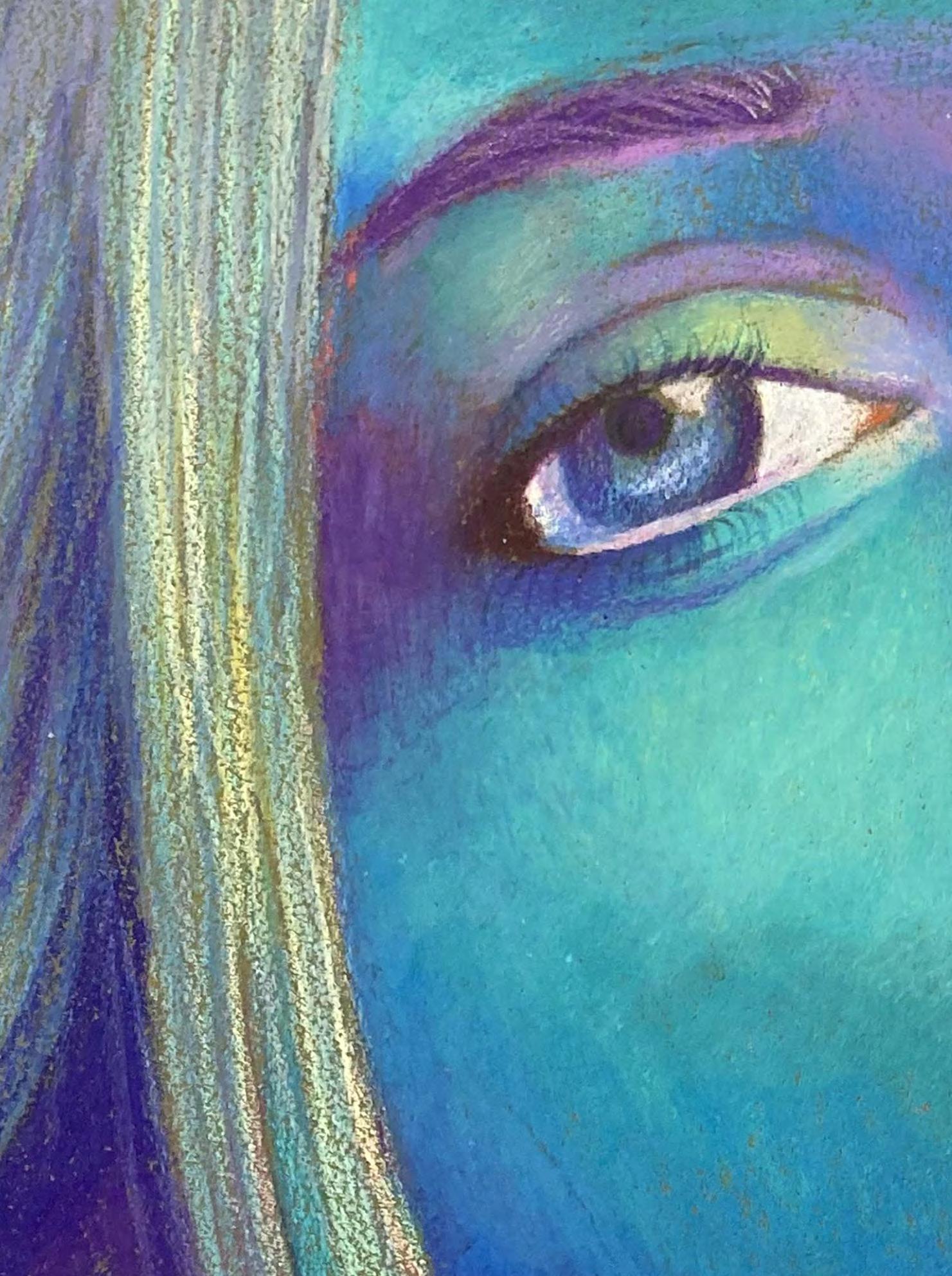
cotton candy torches, cotton candy torches, shared on benches beneath shadows “We gobbled shadows.” summer summer sweet as furtive kisses,
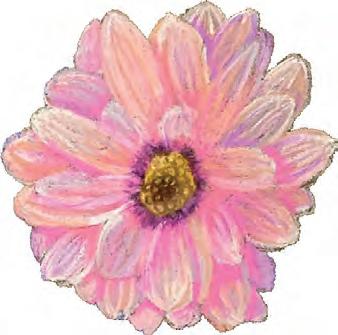
“...tossing a glance through the chain link at an world.” improbable improbable